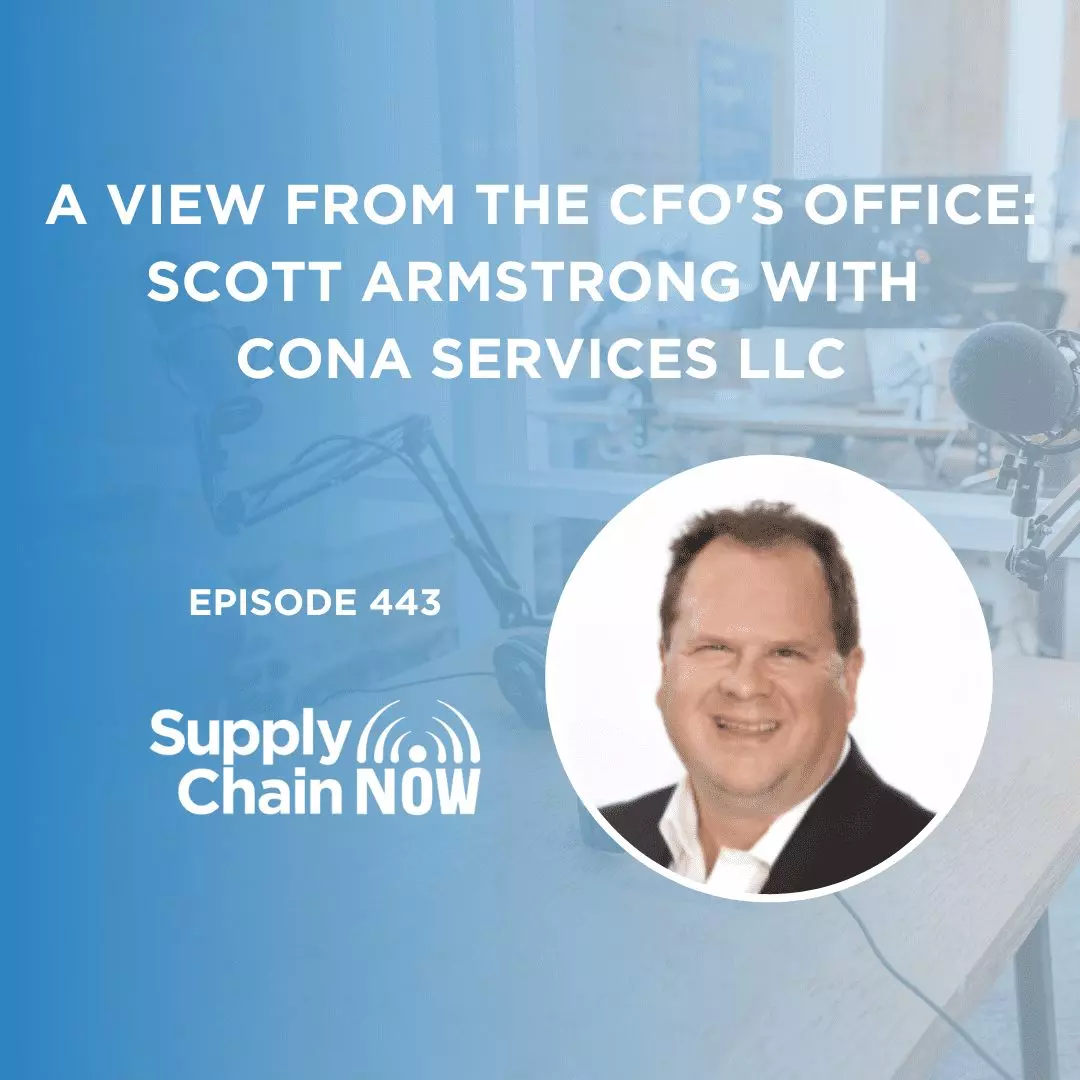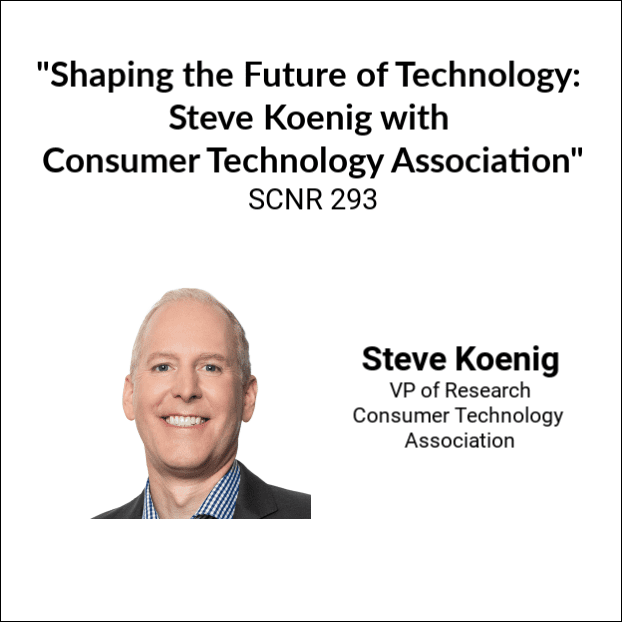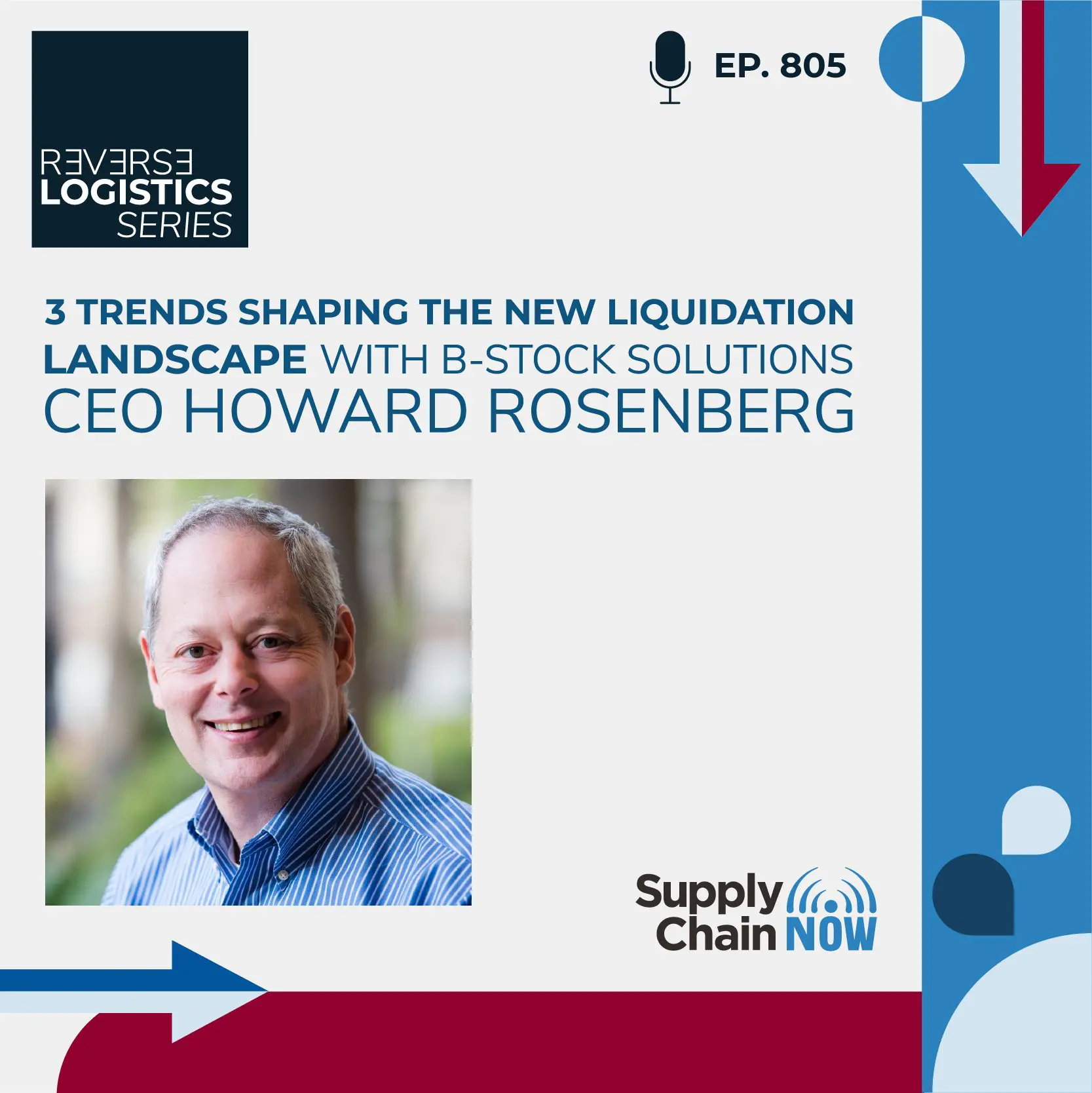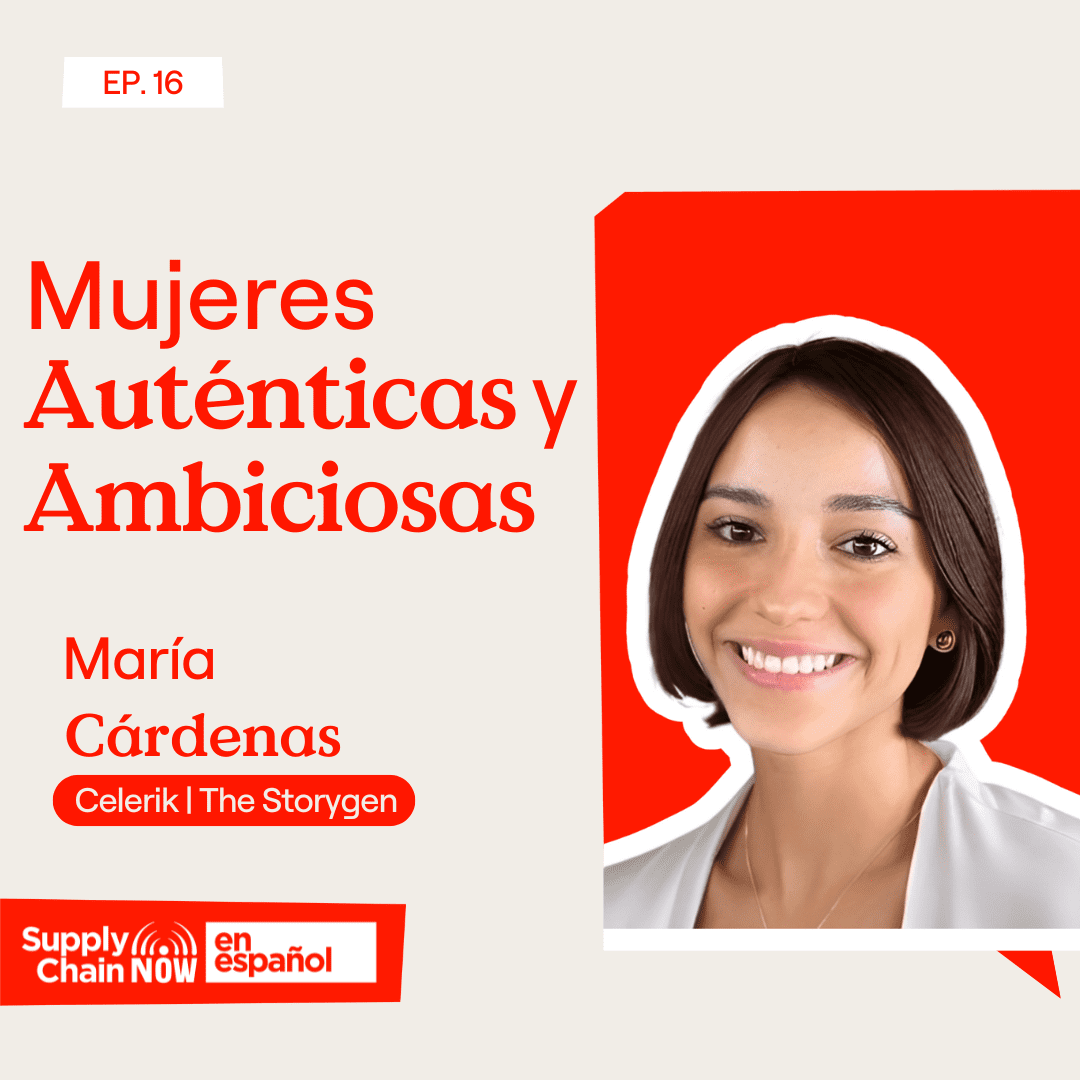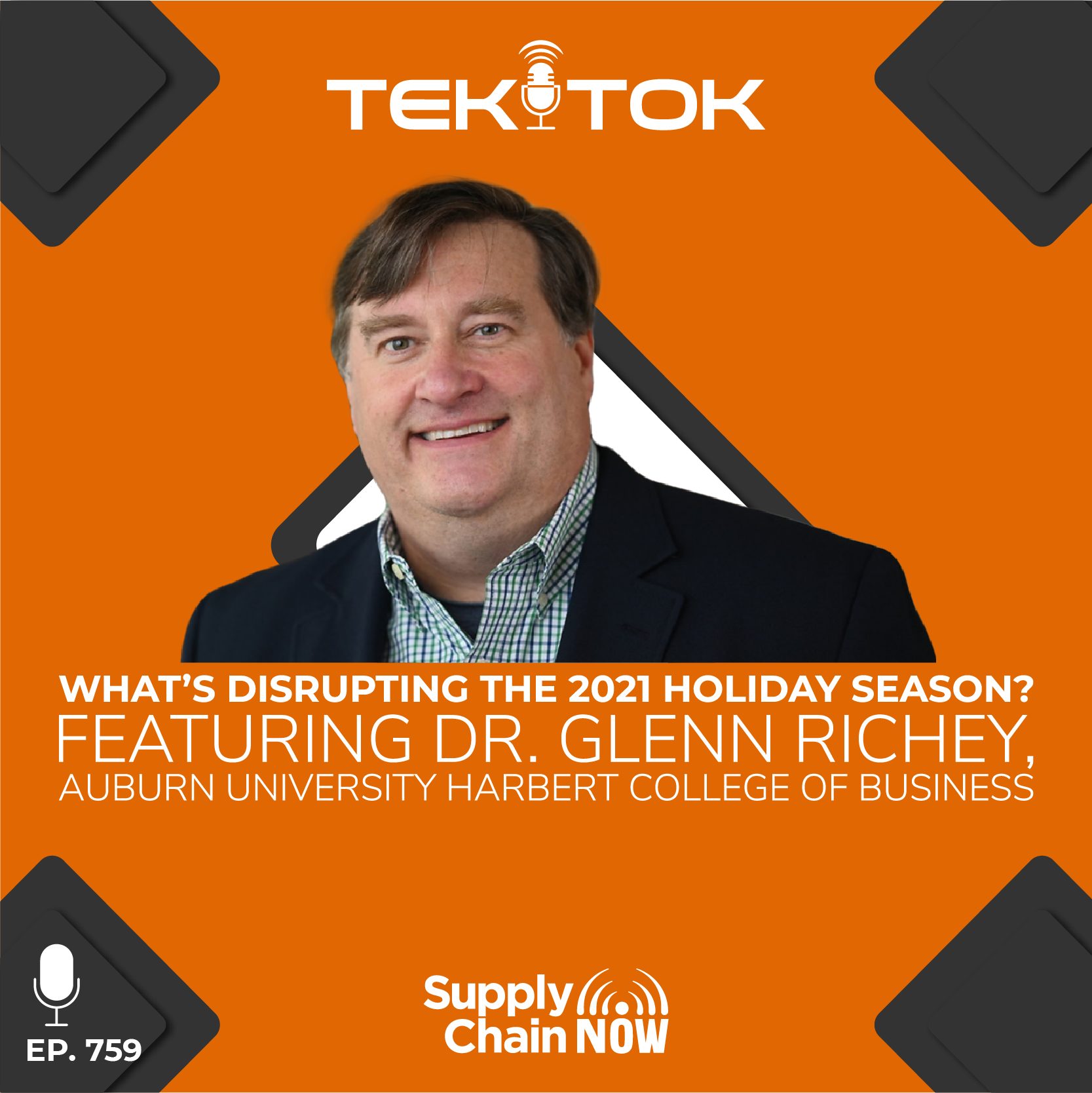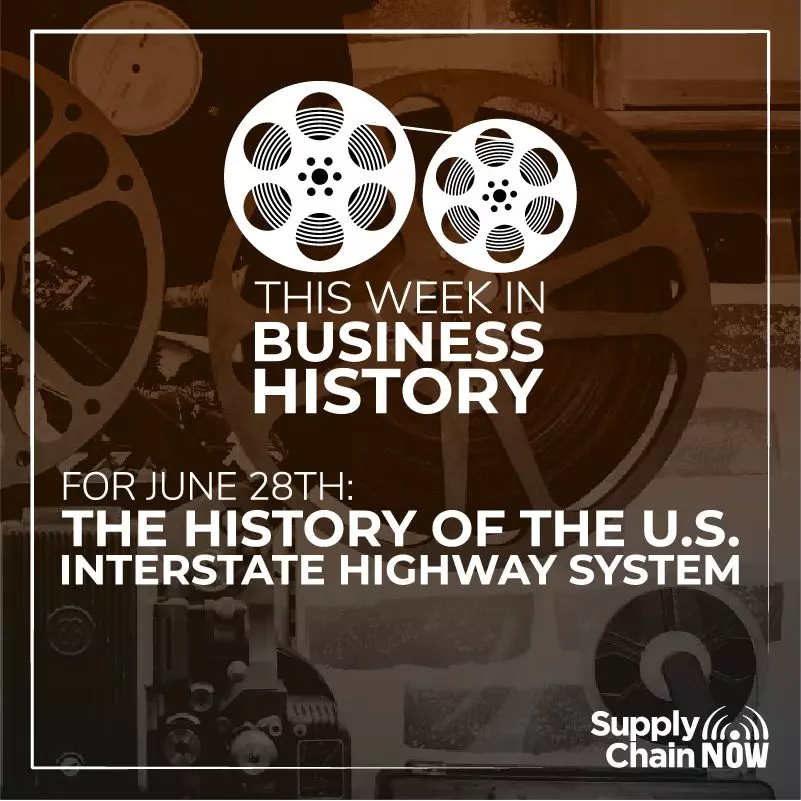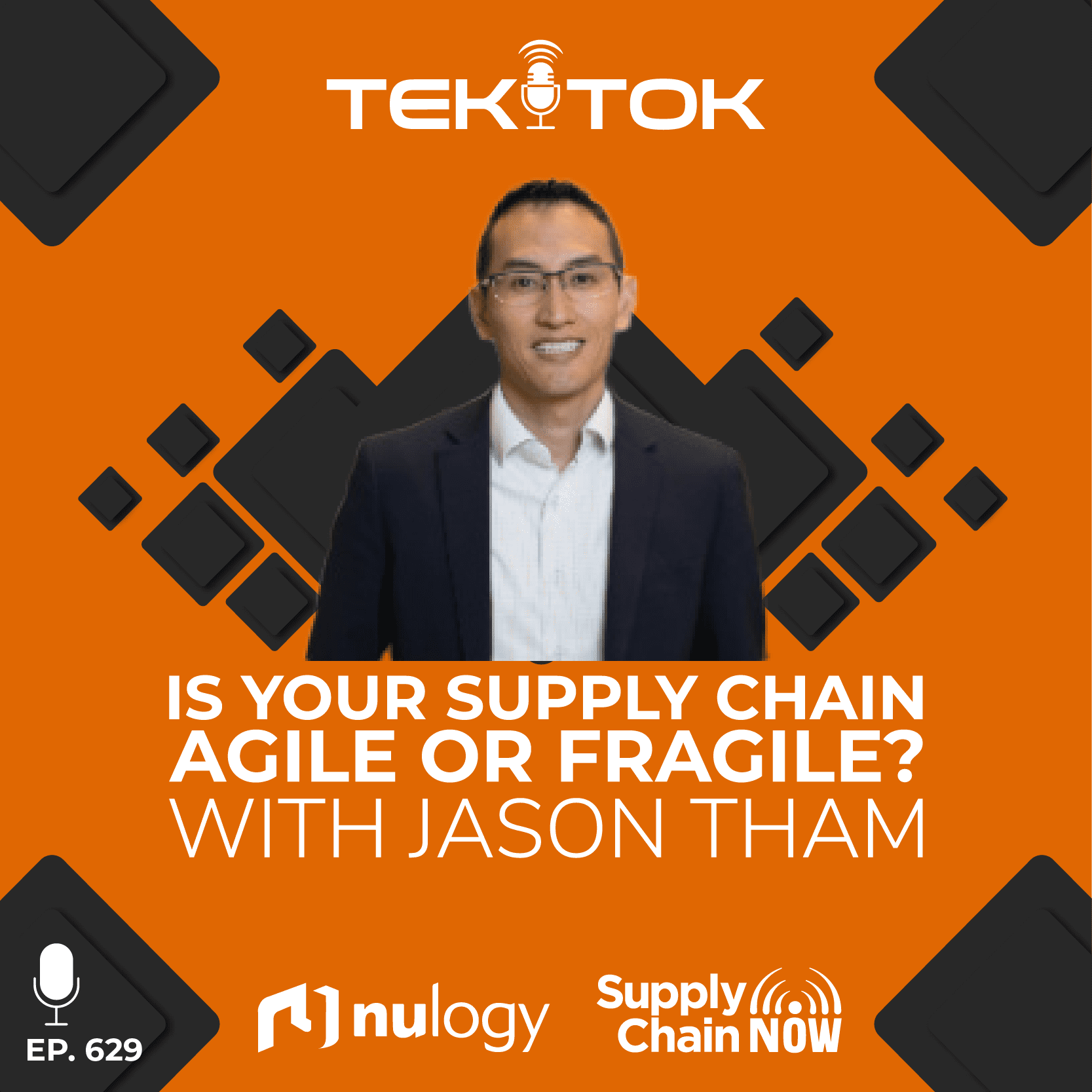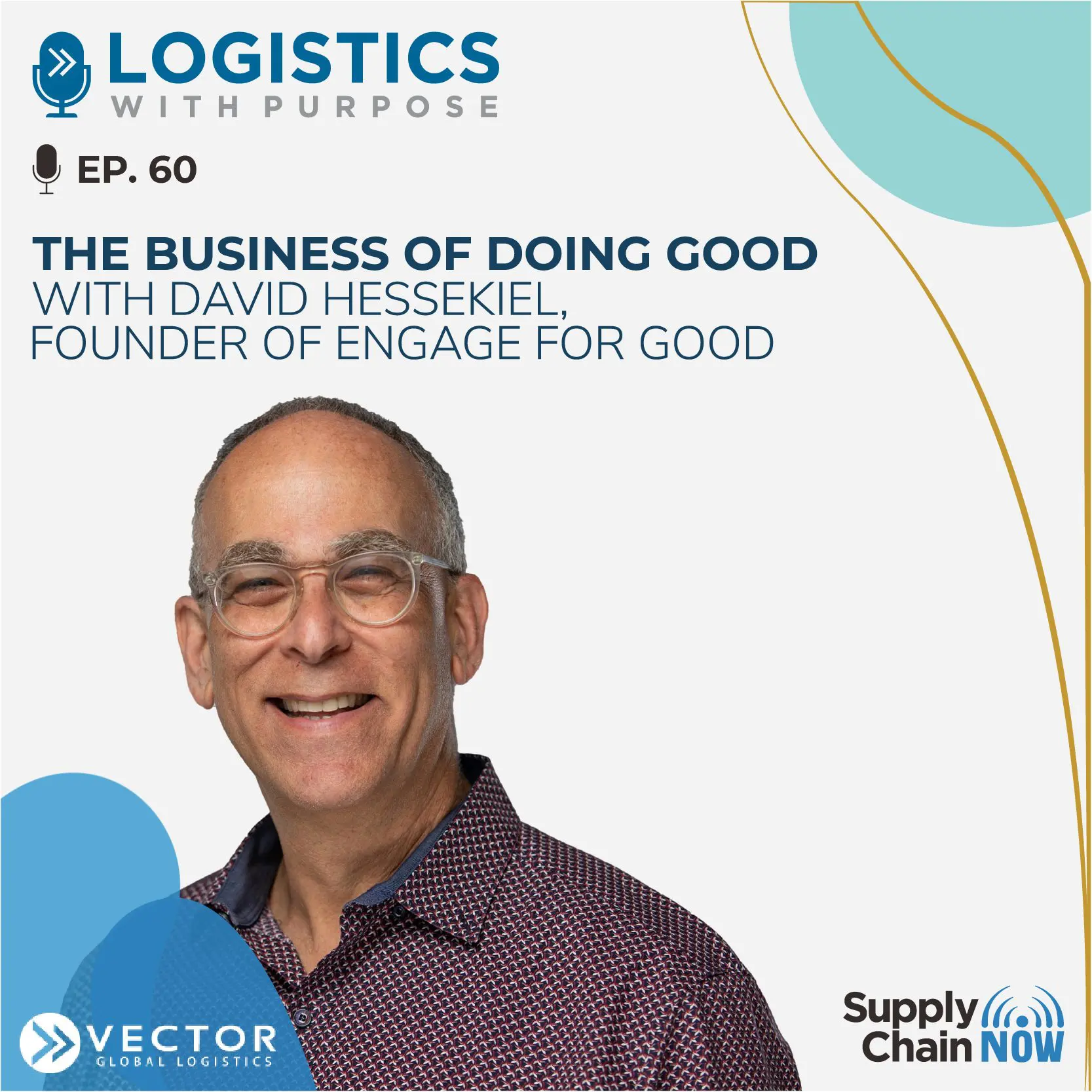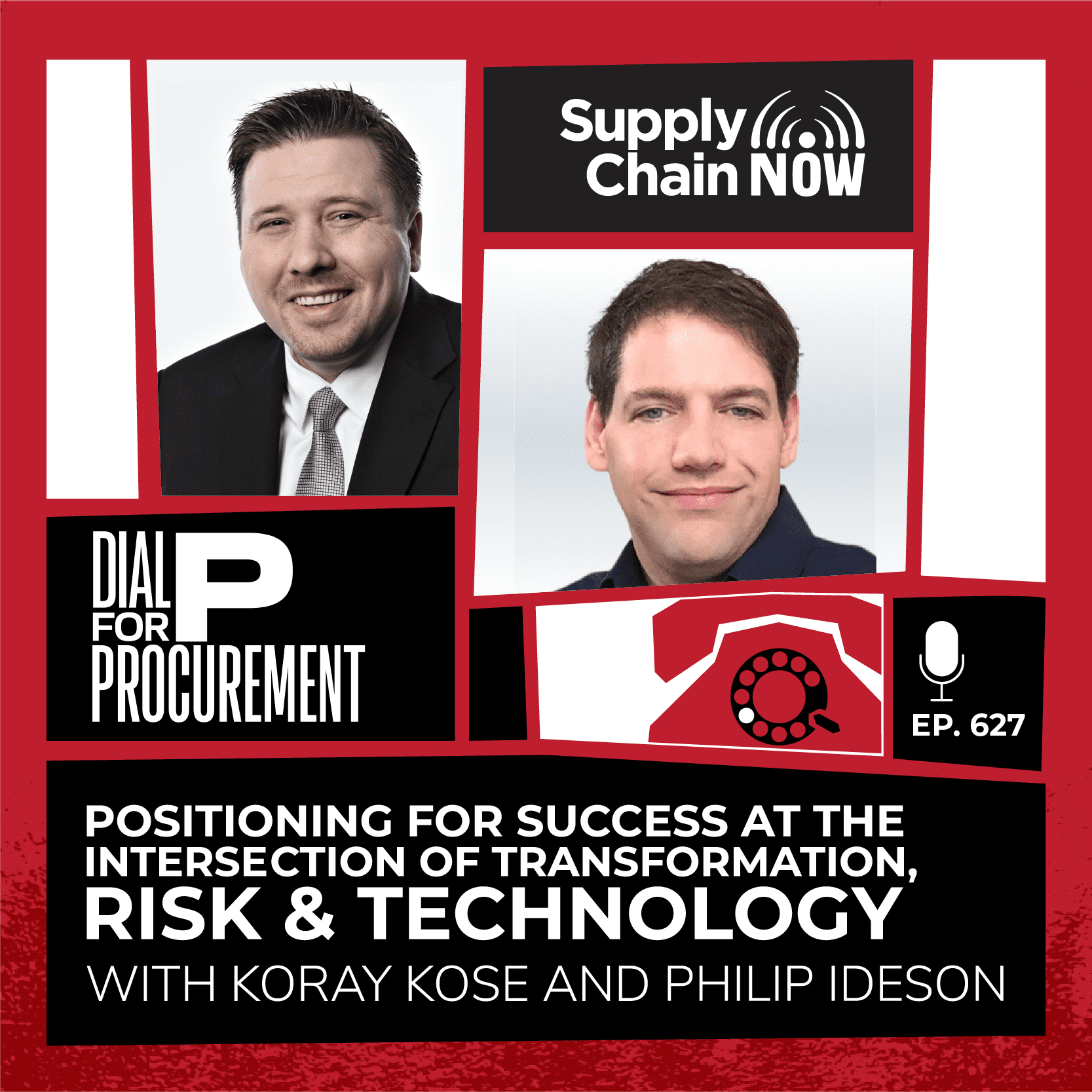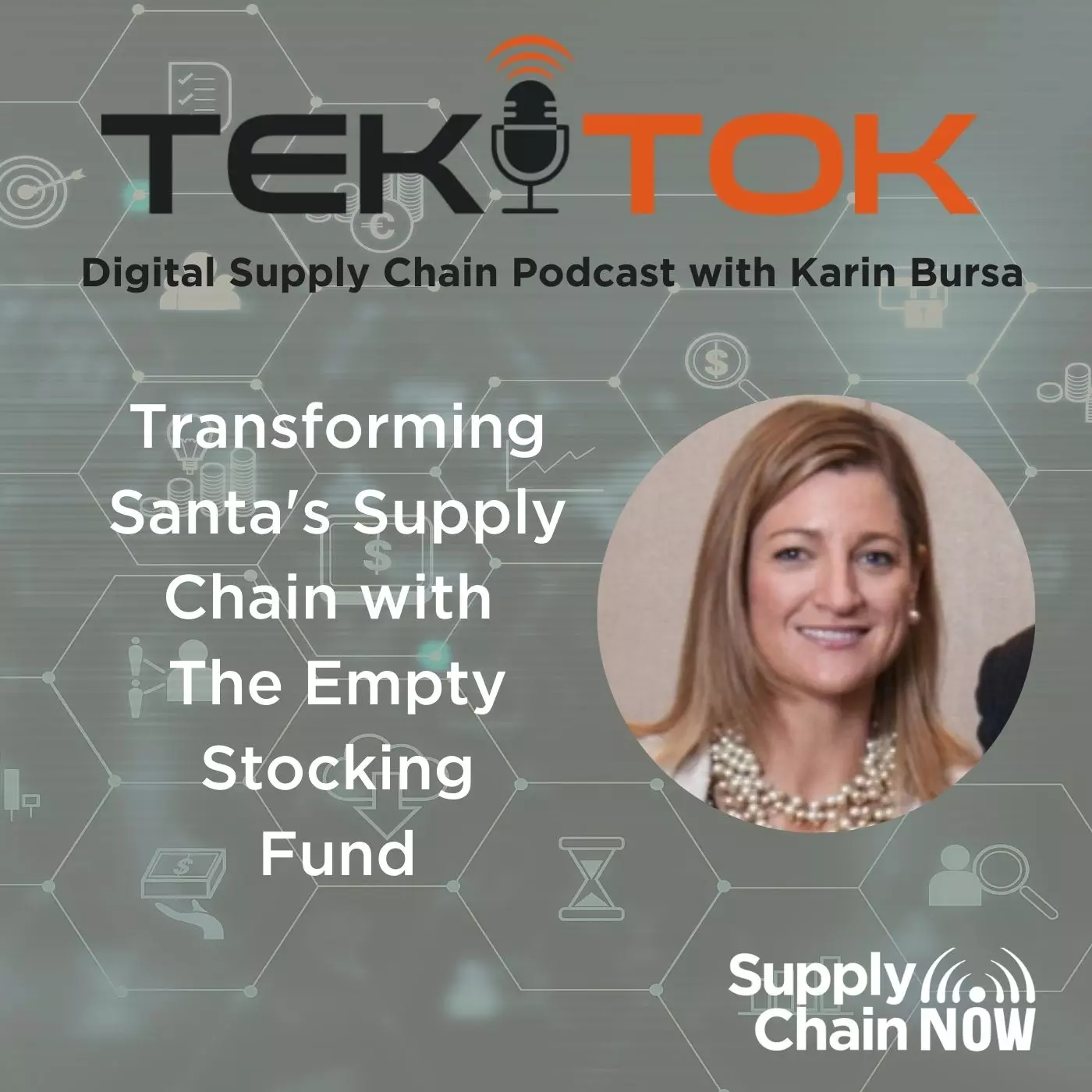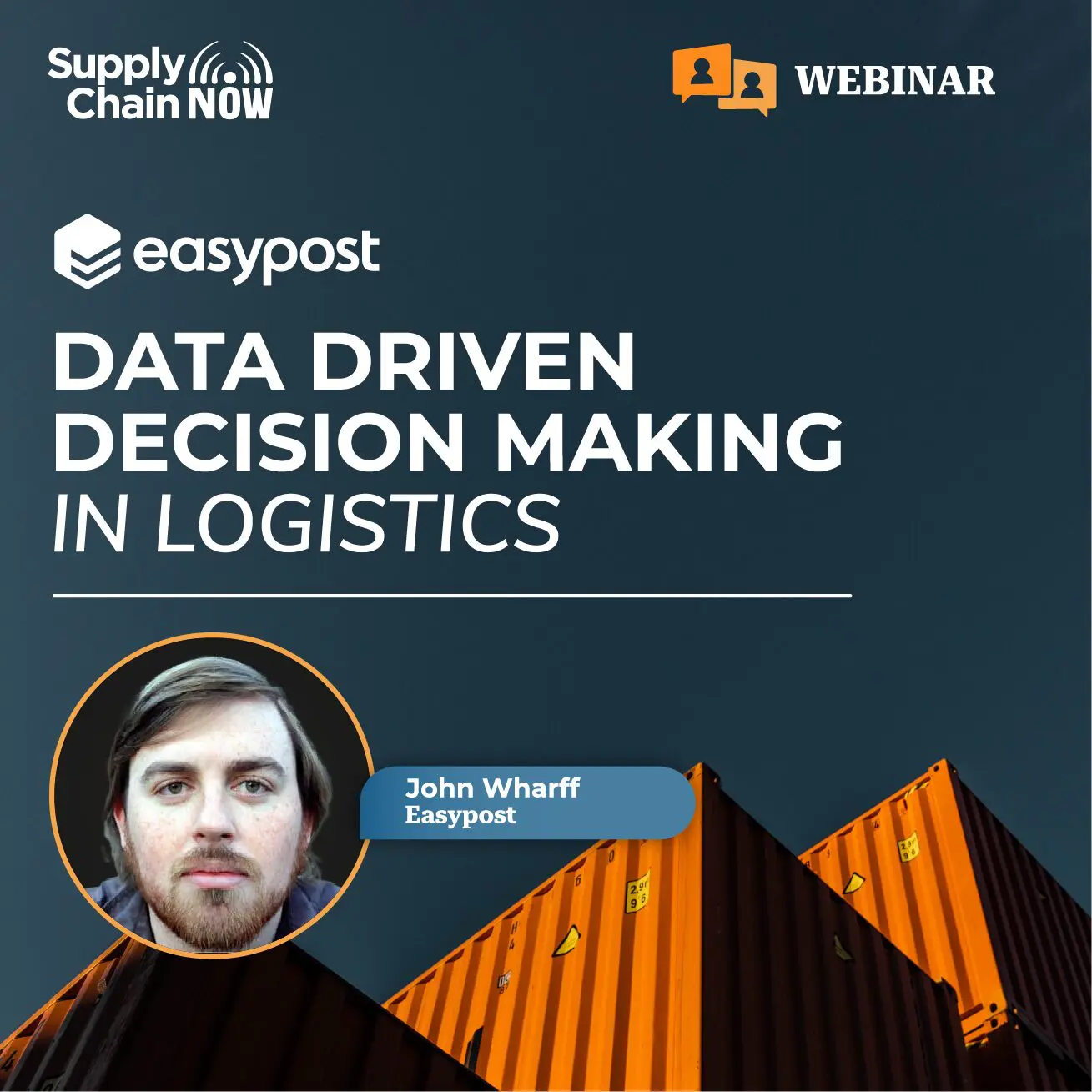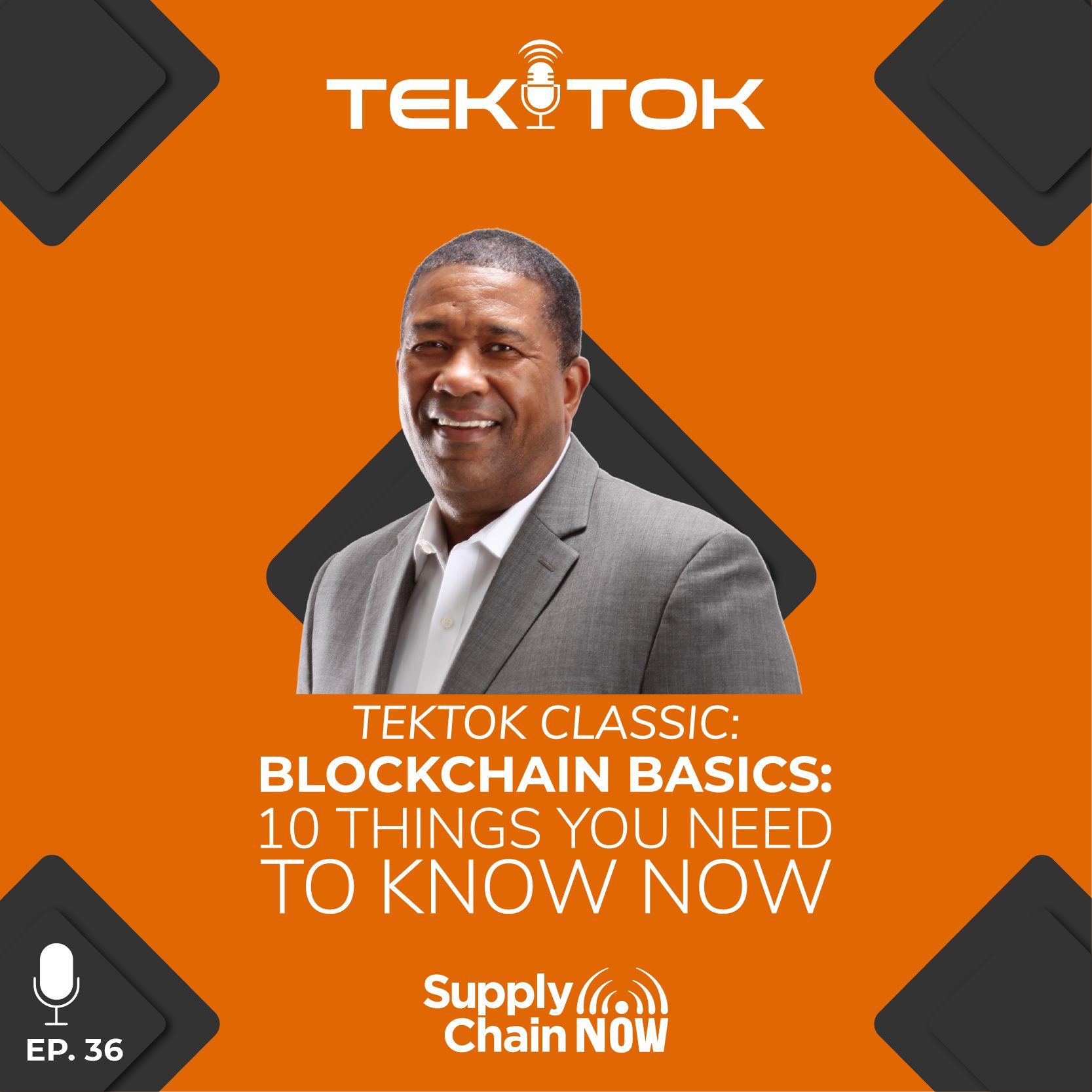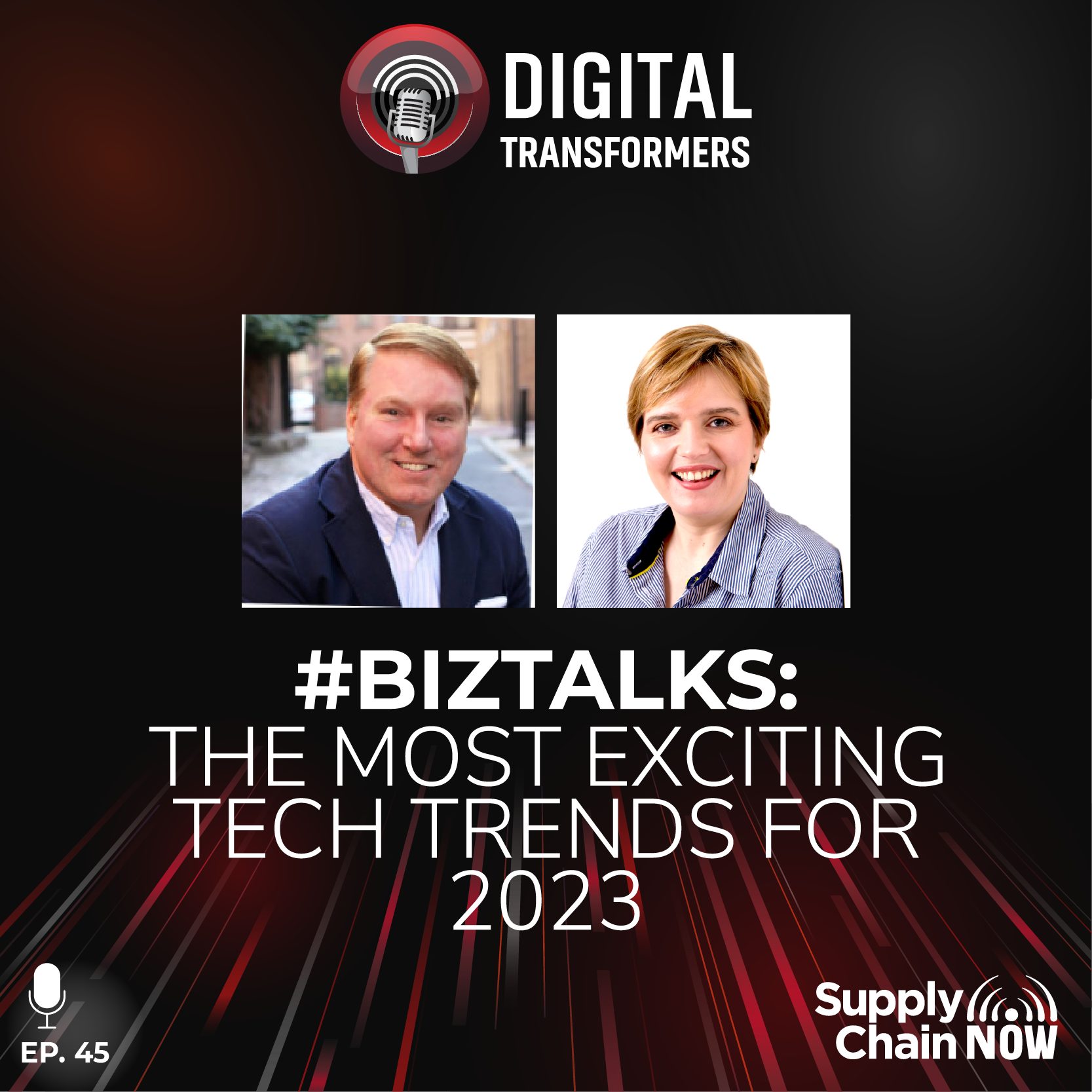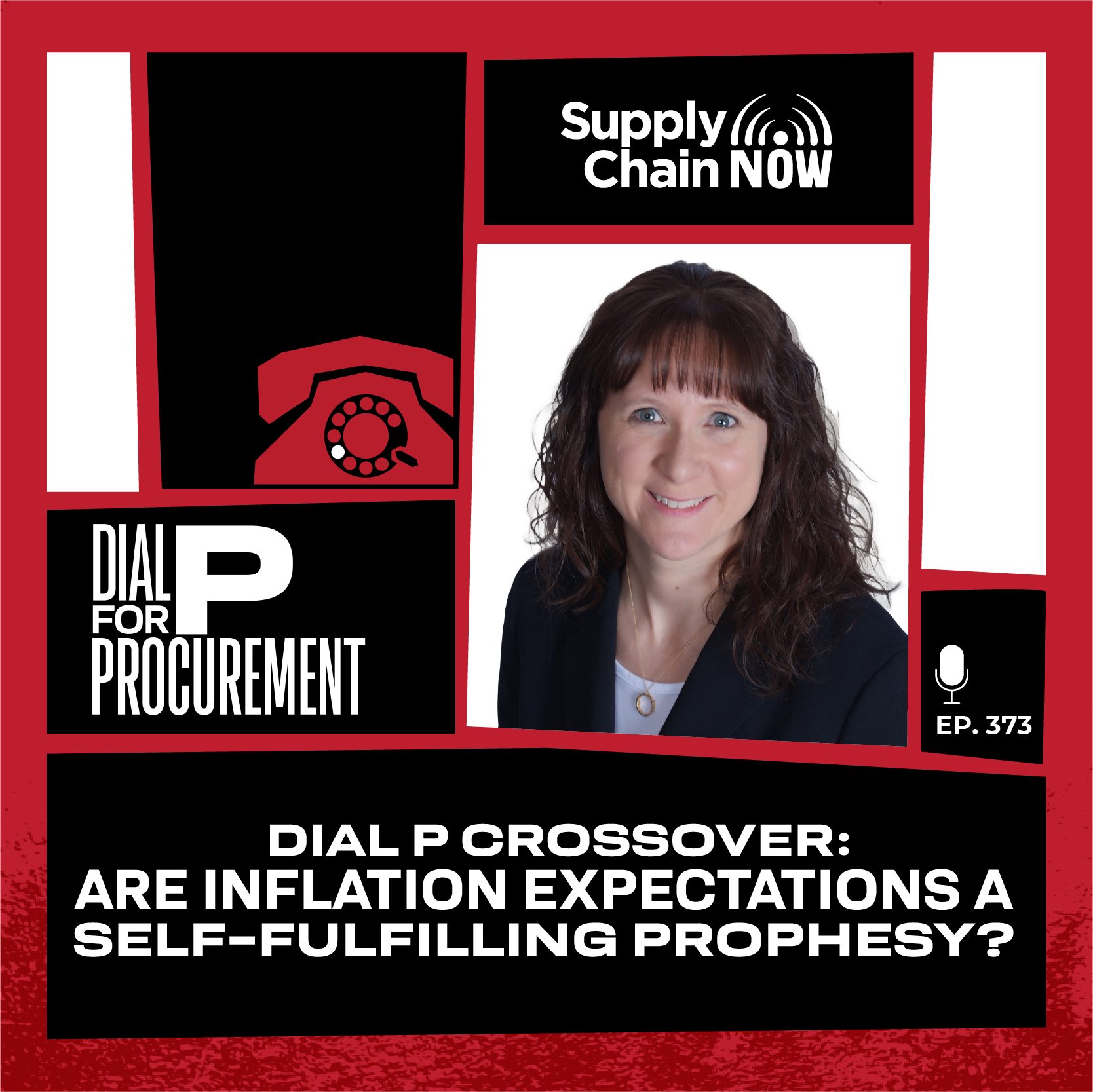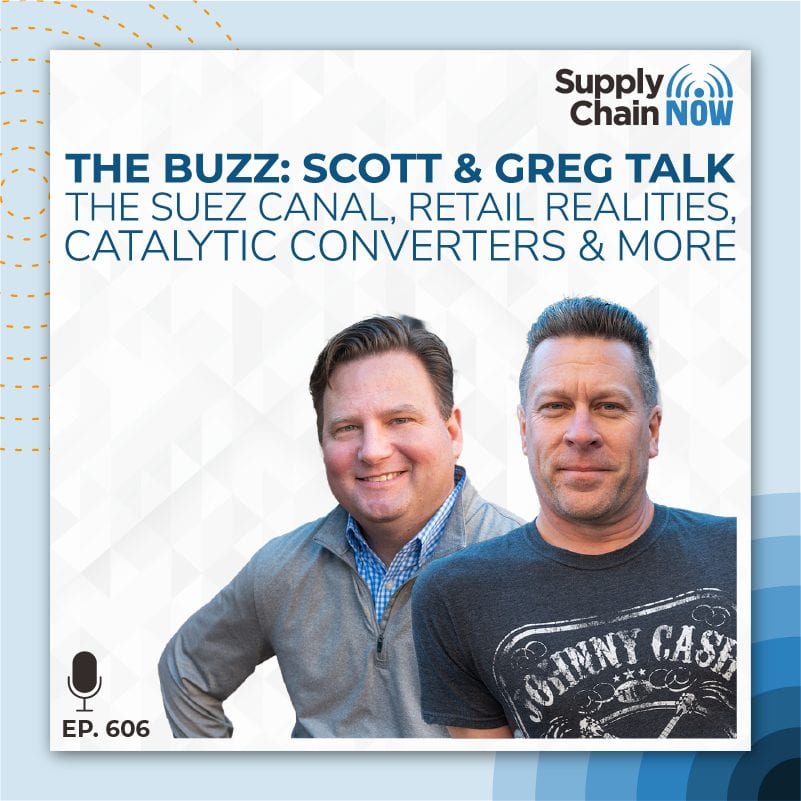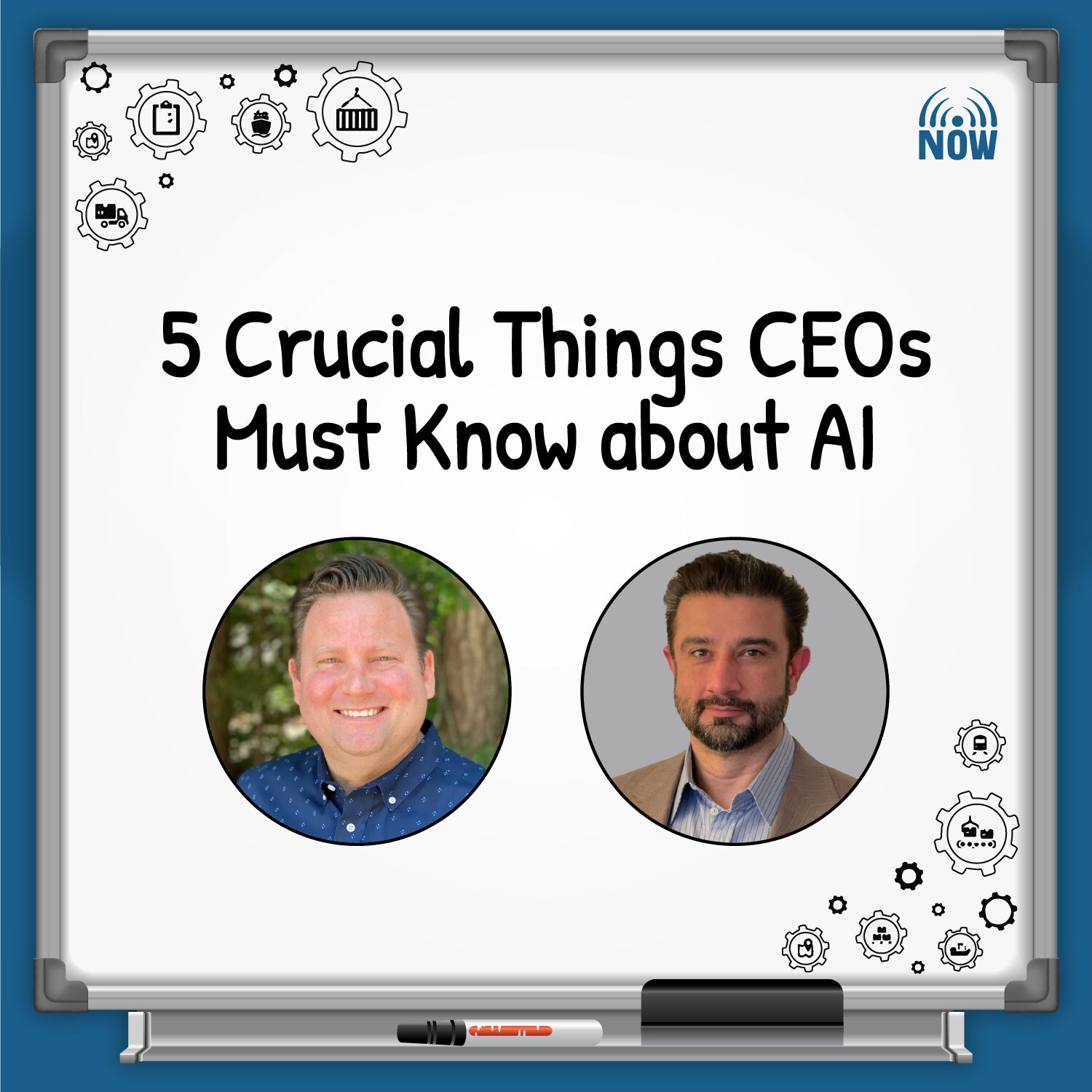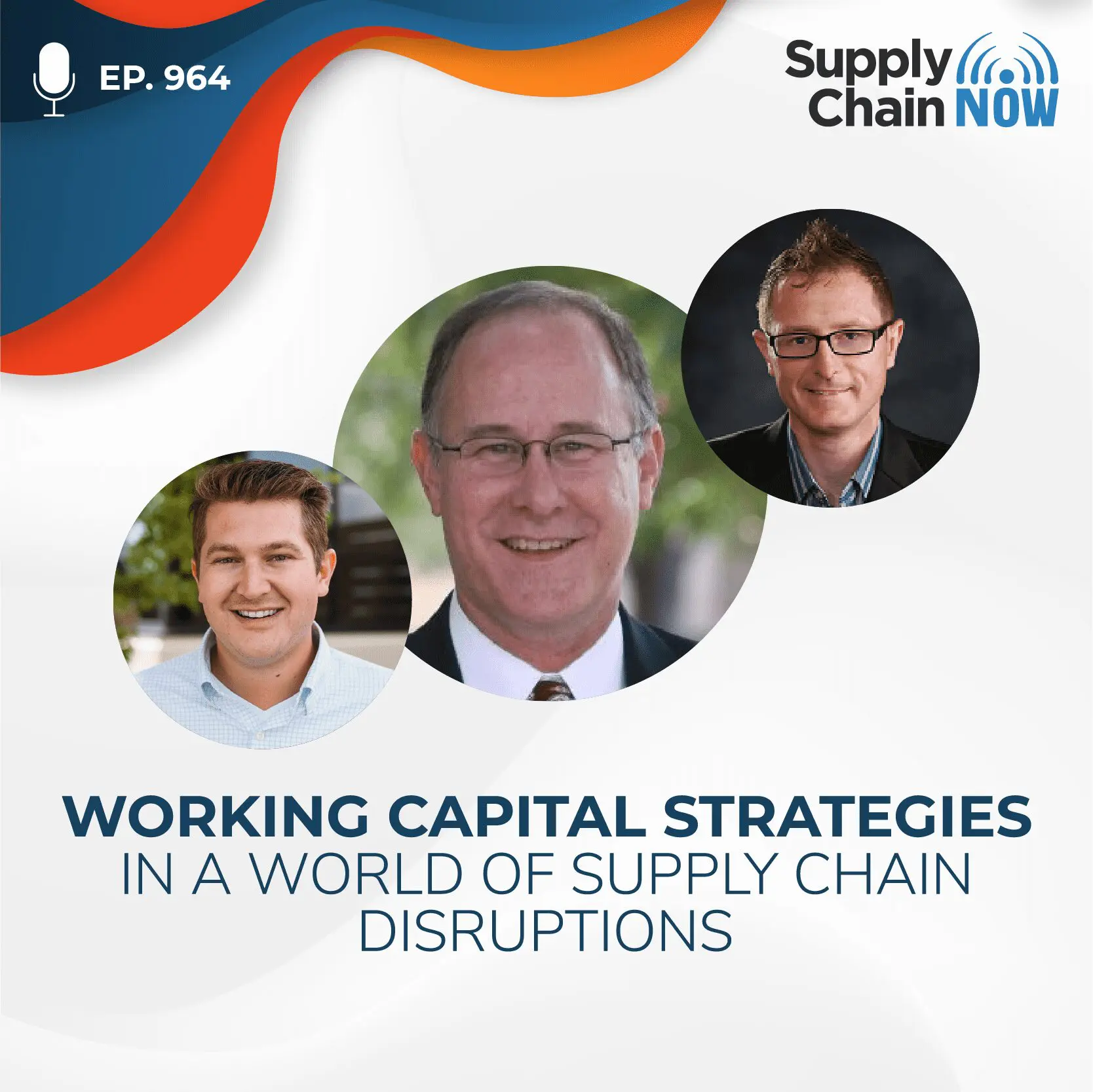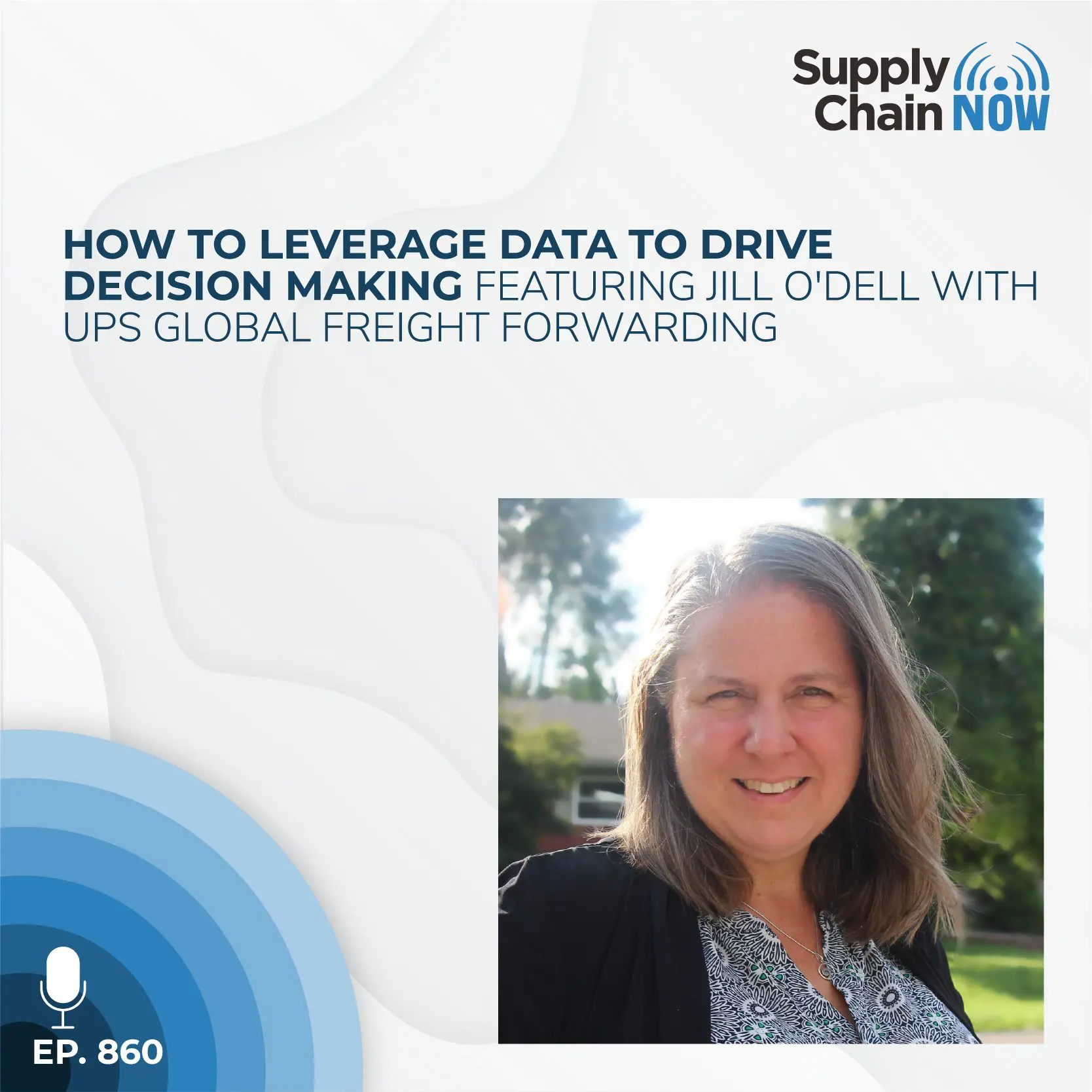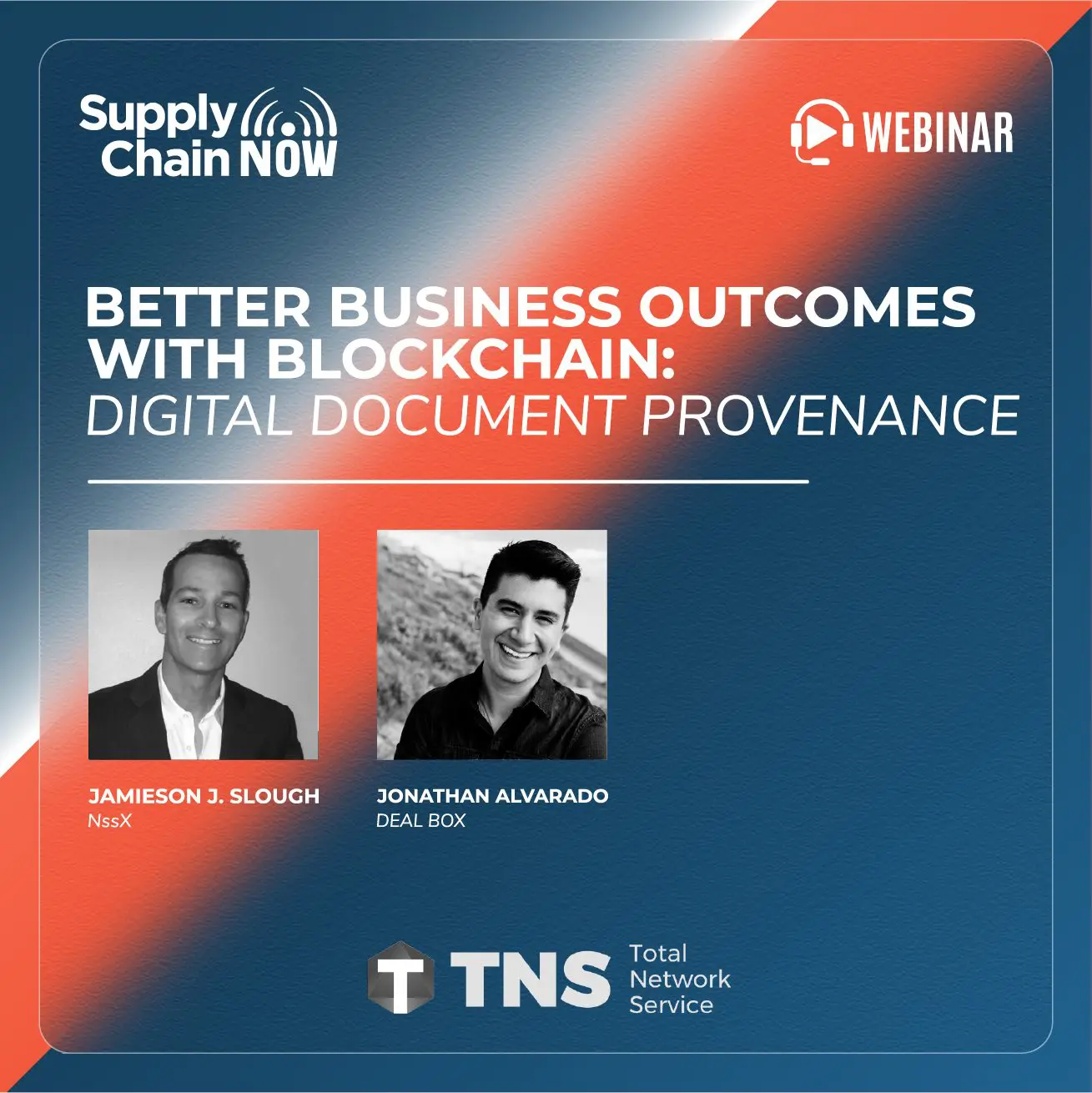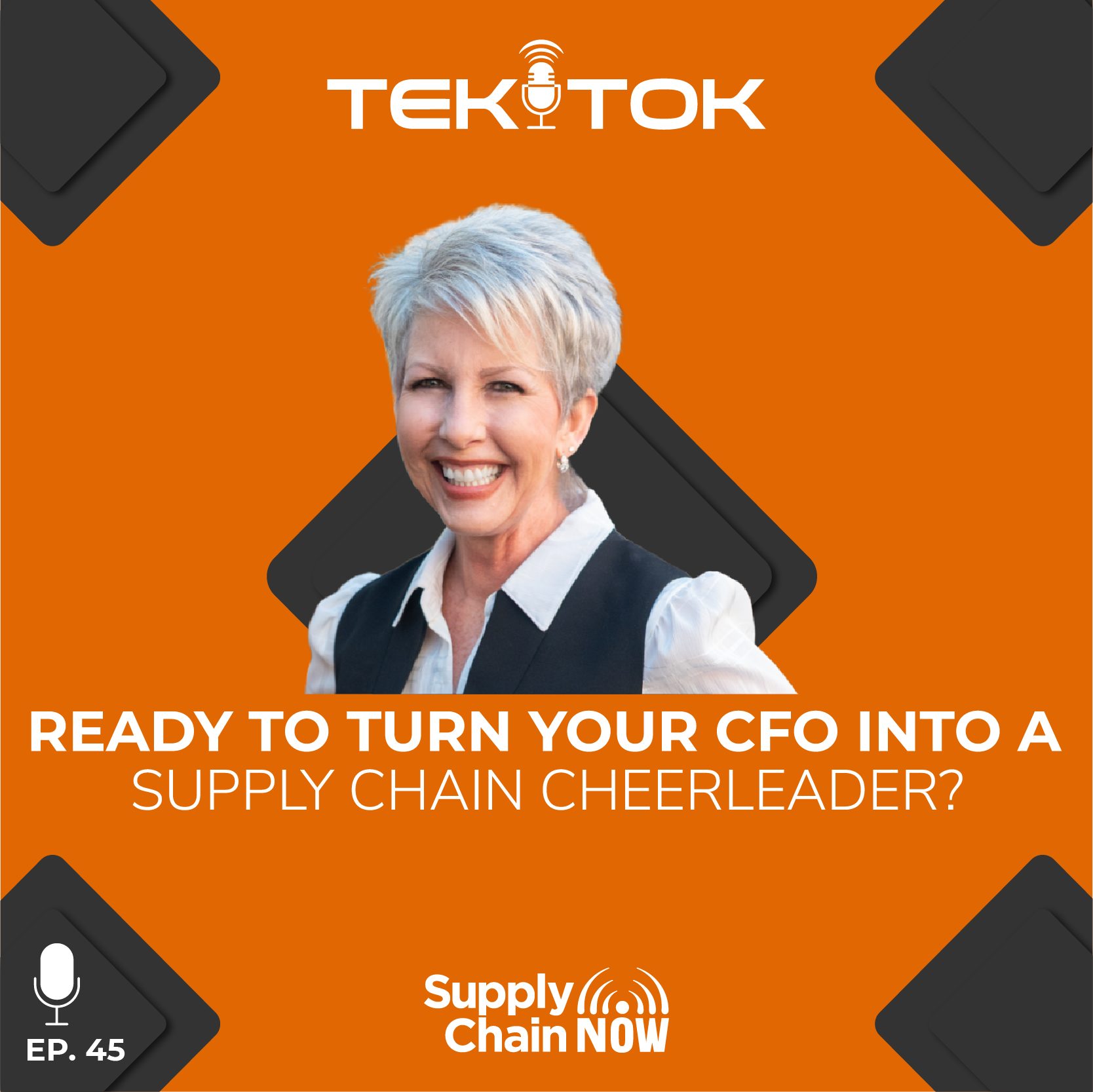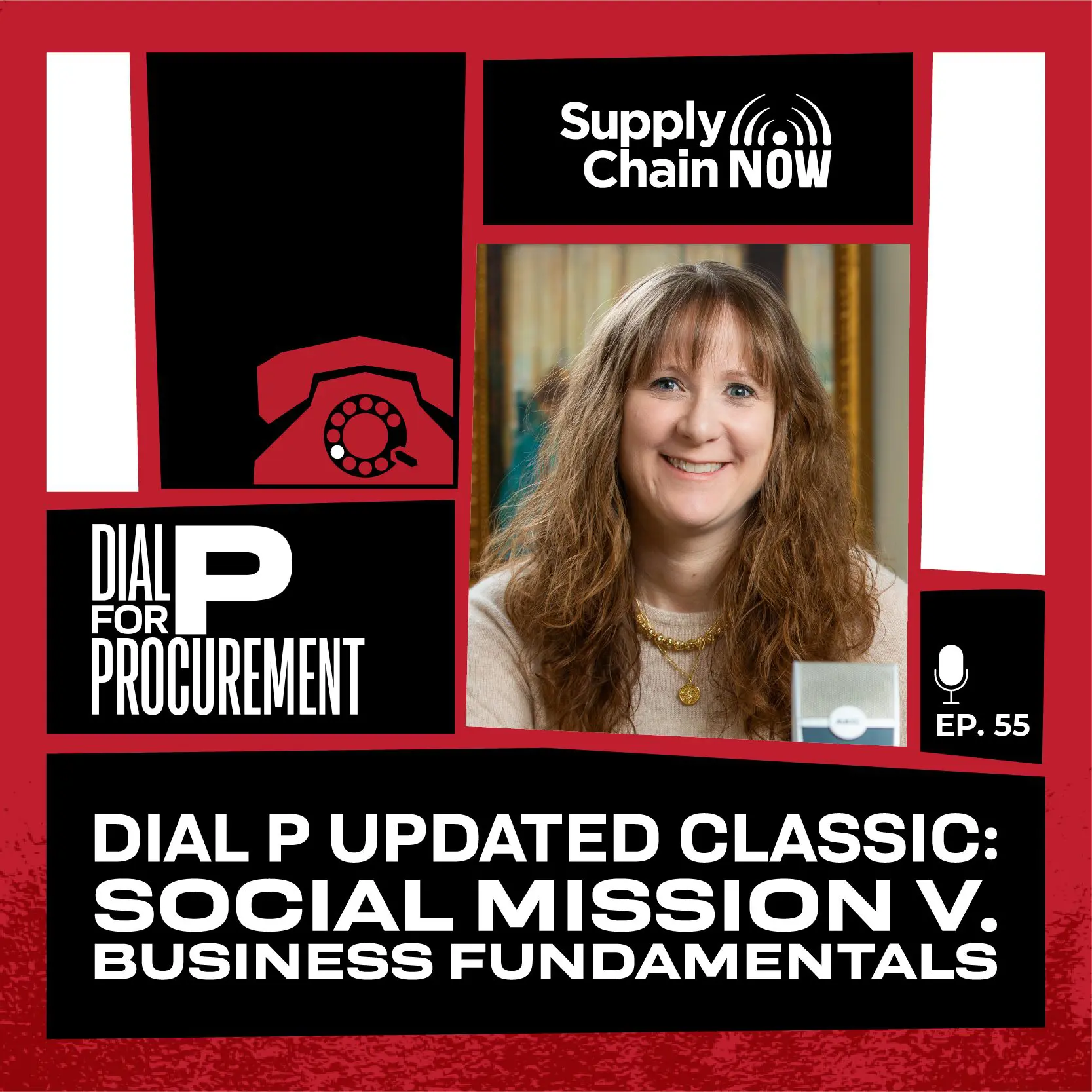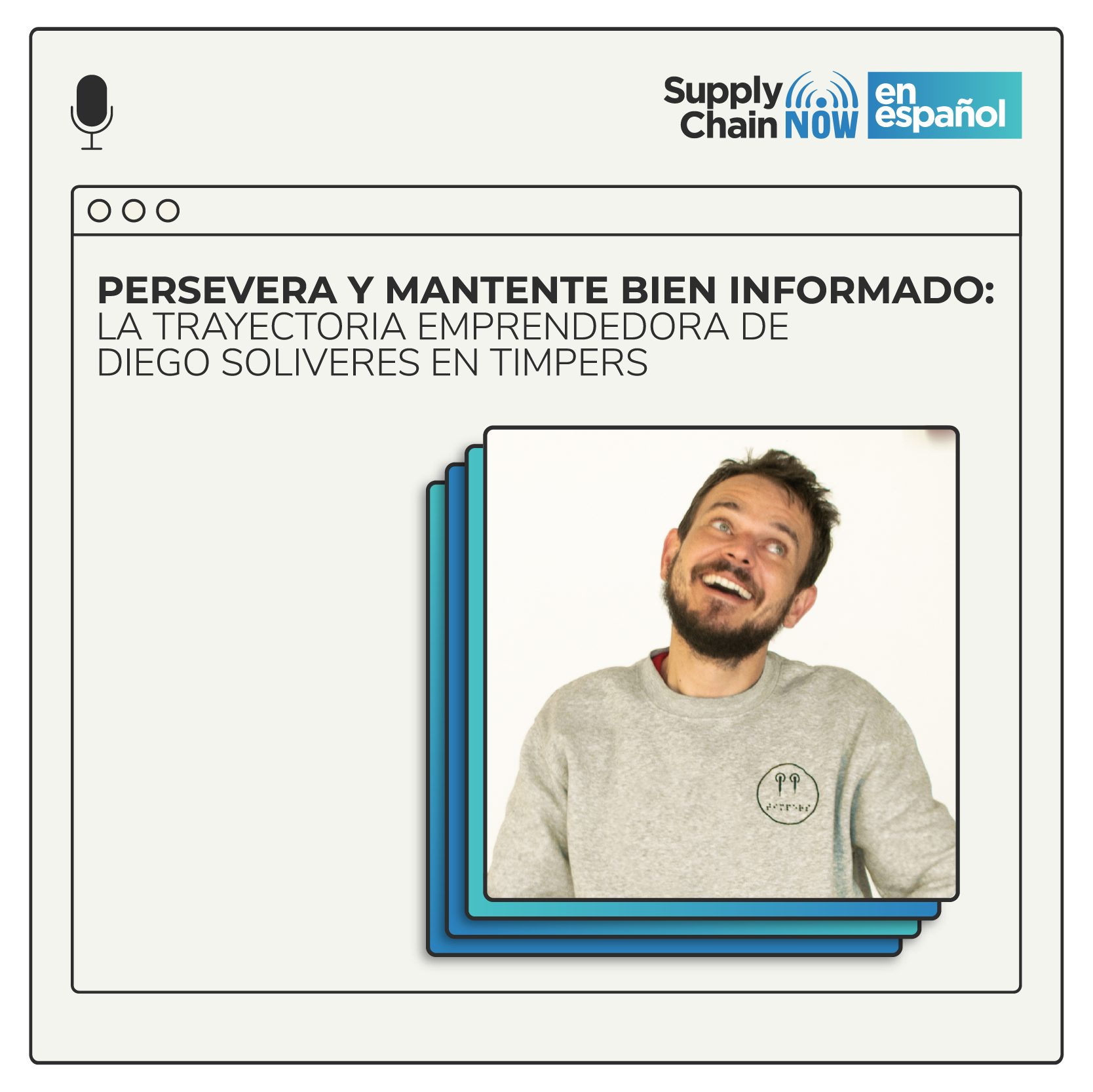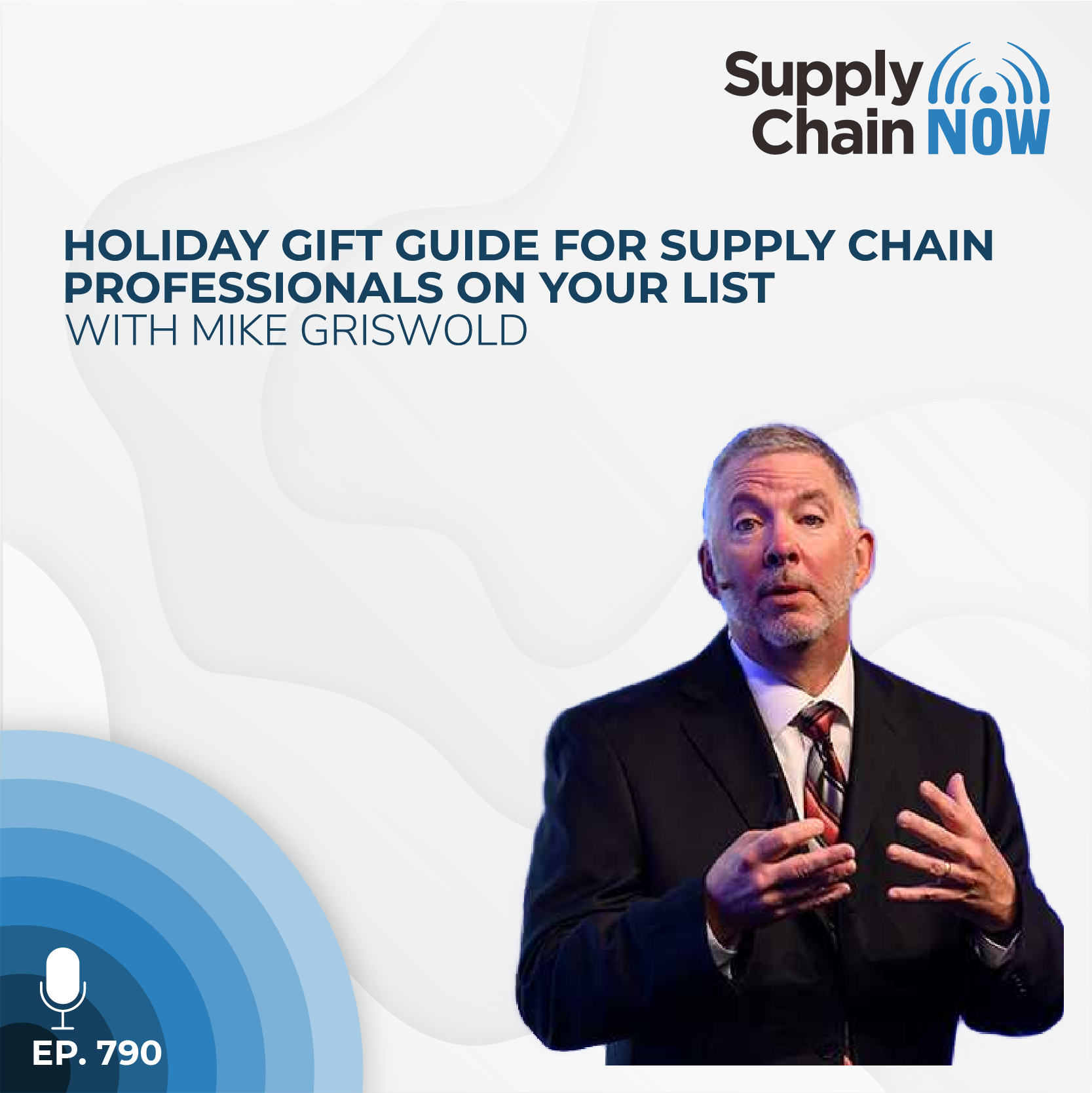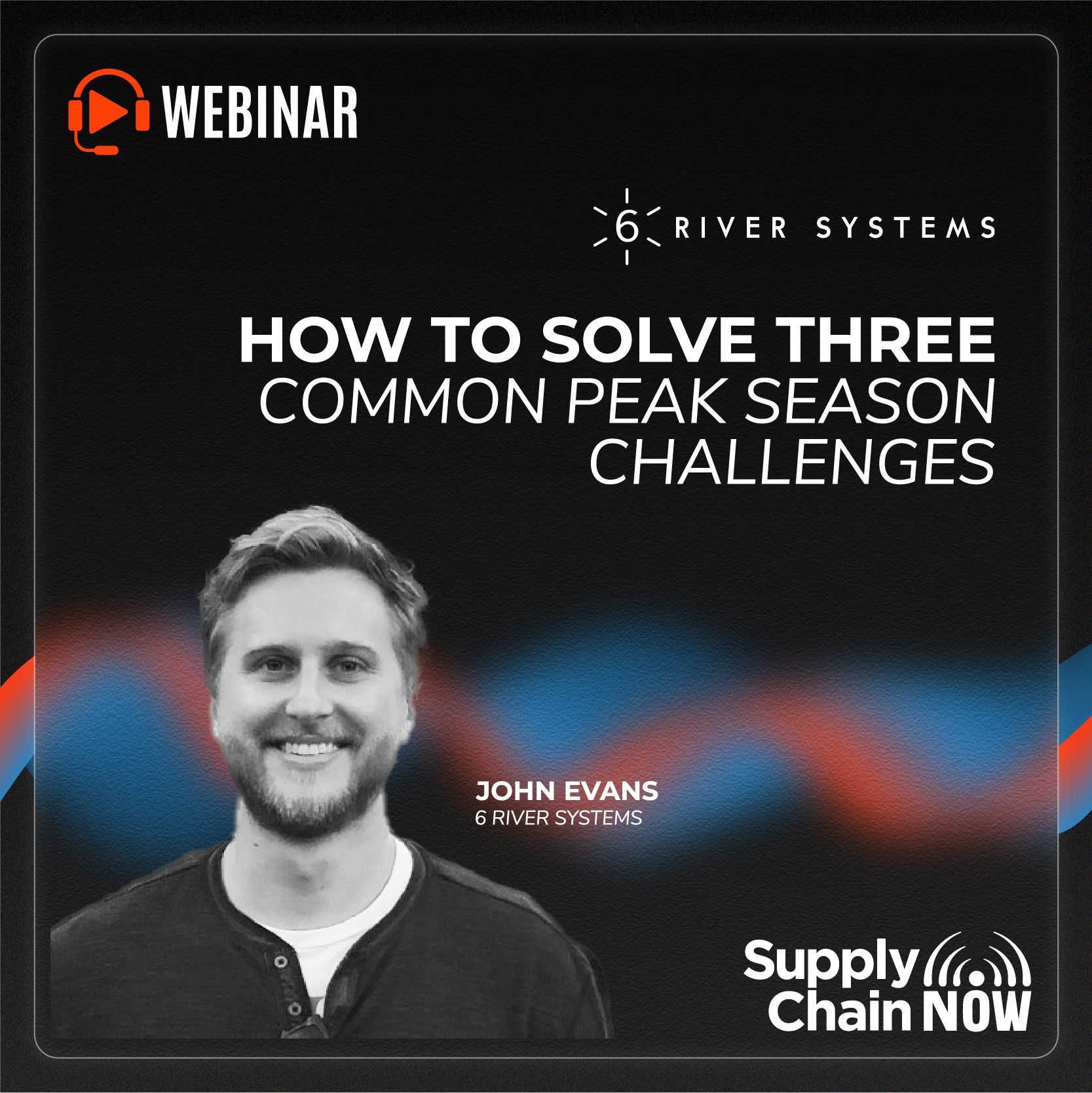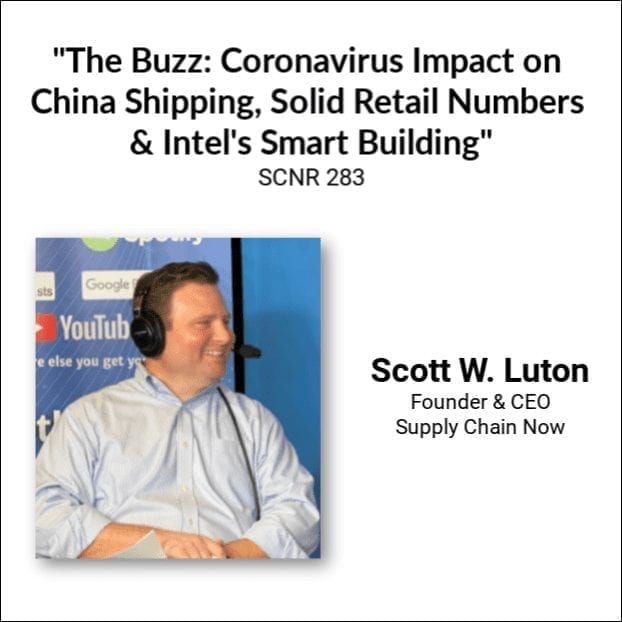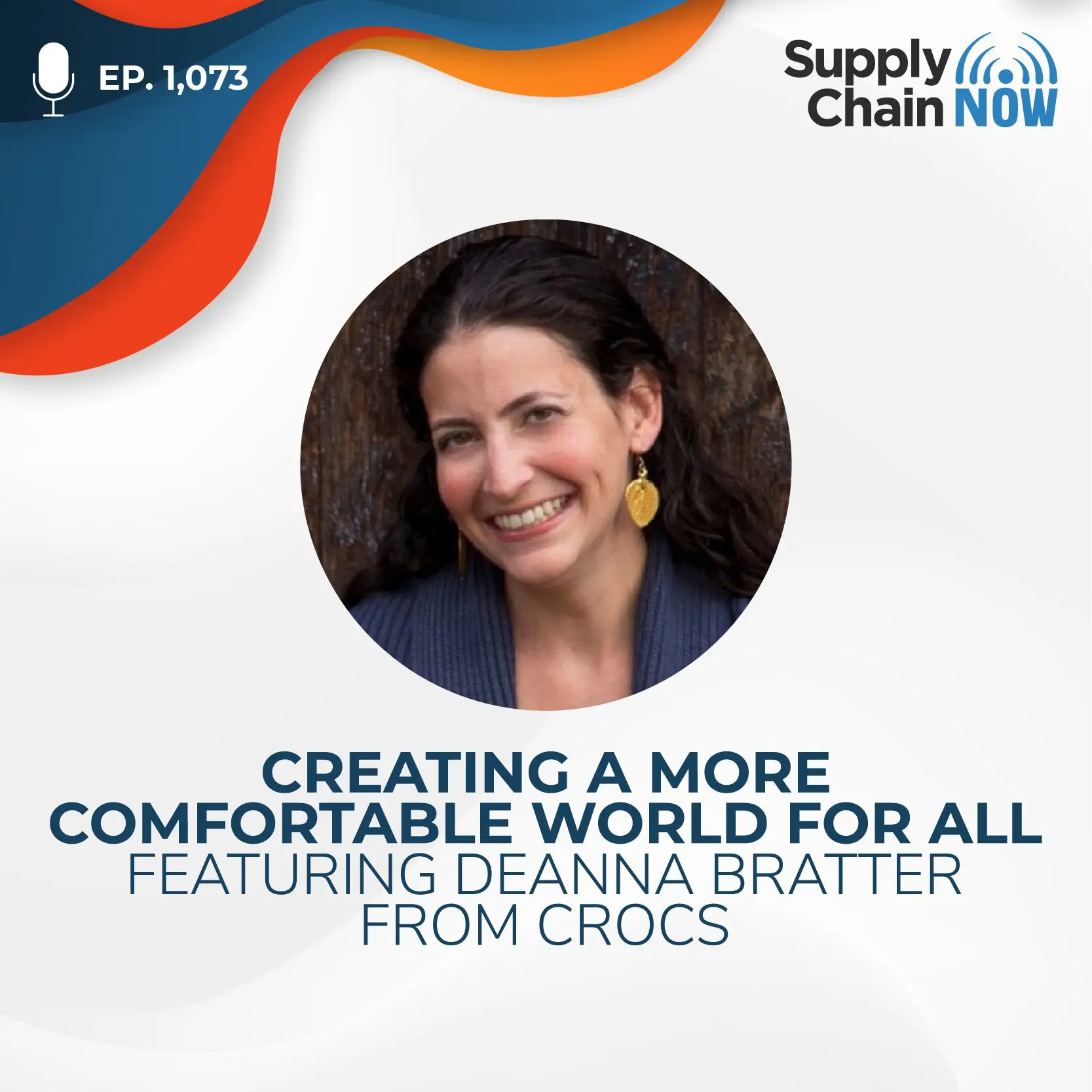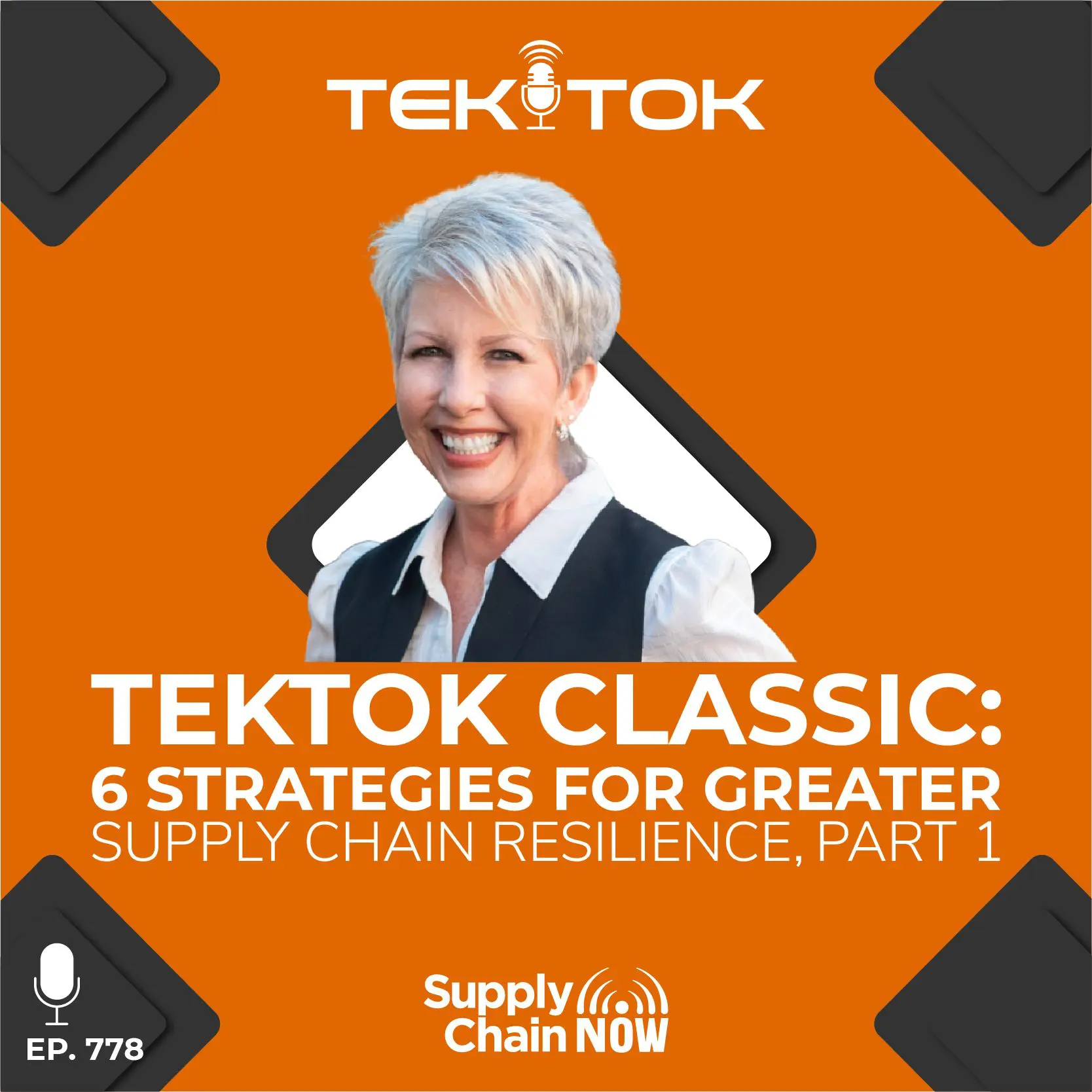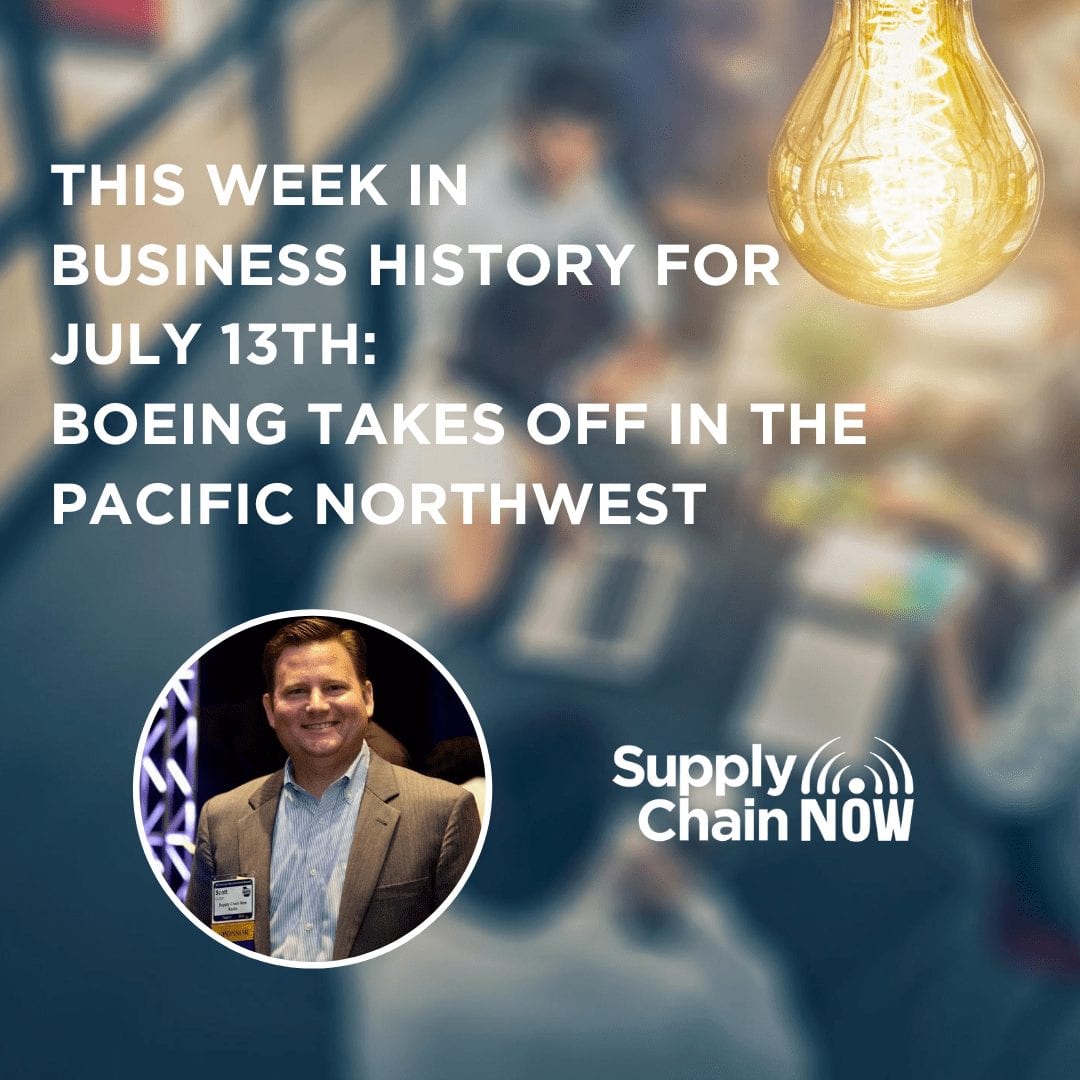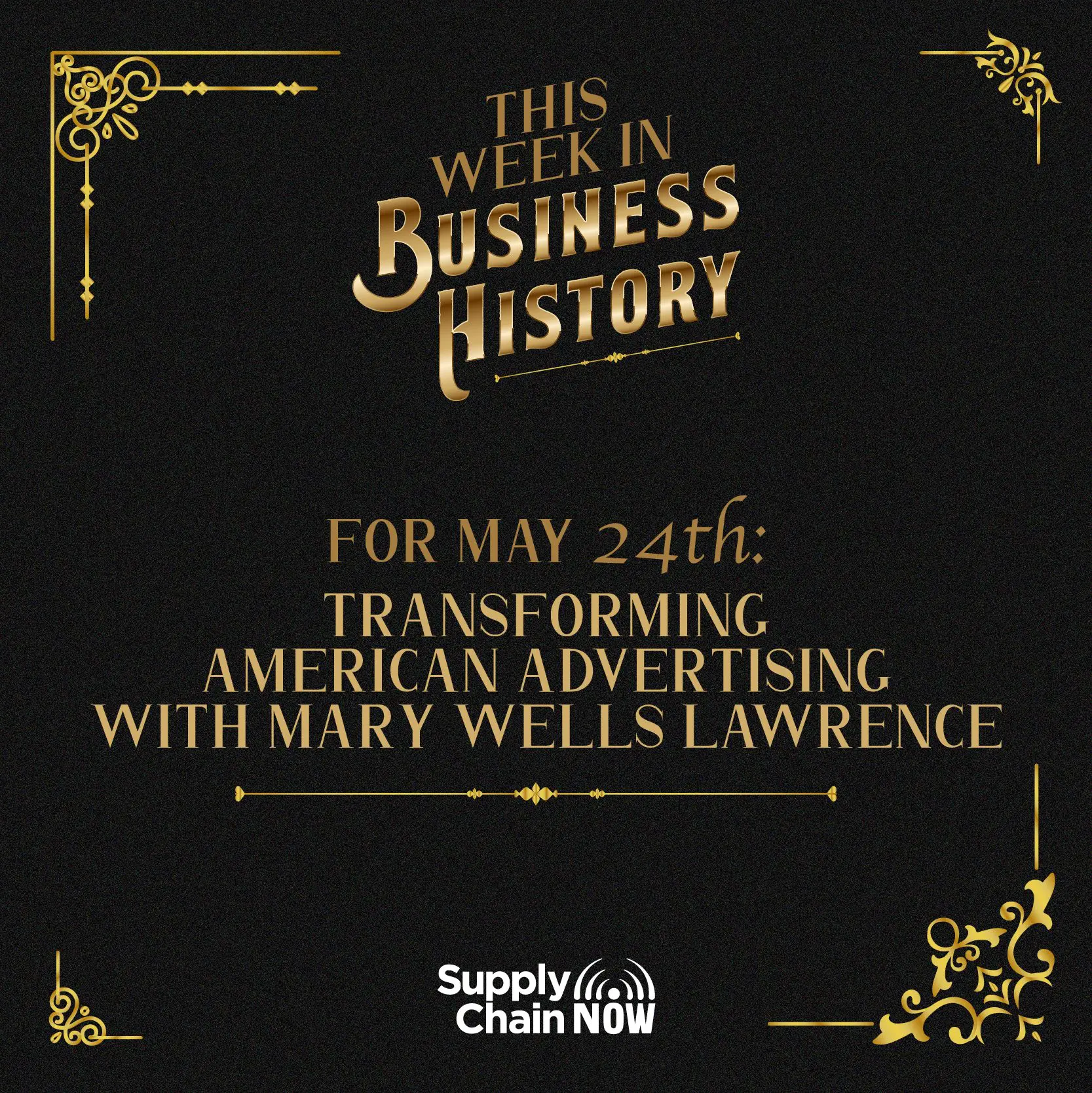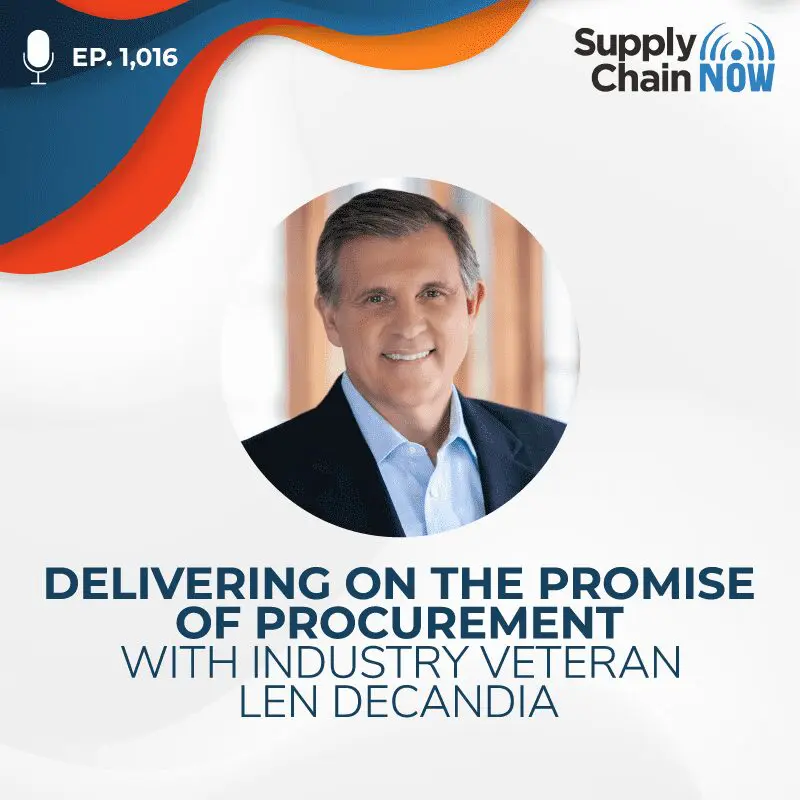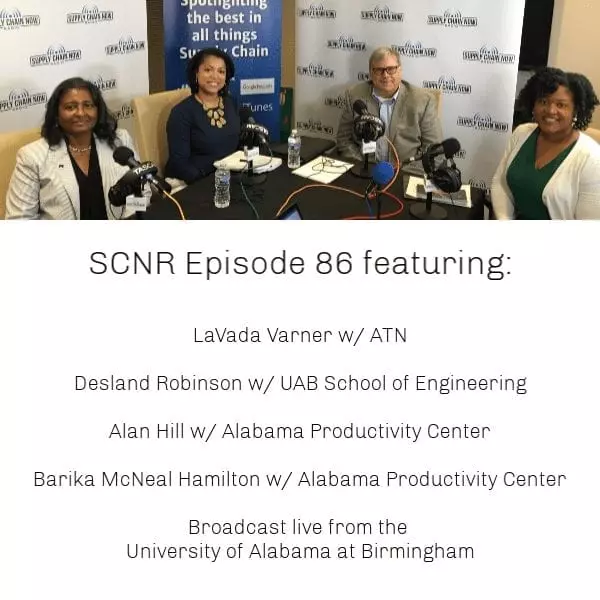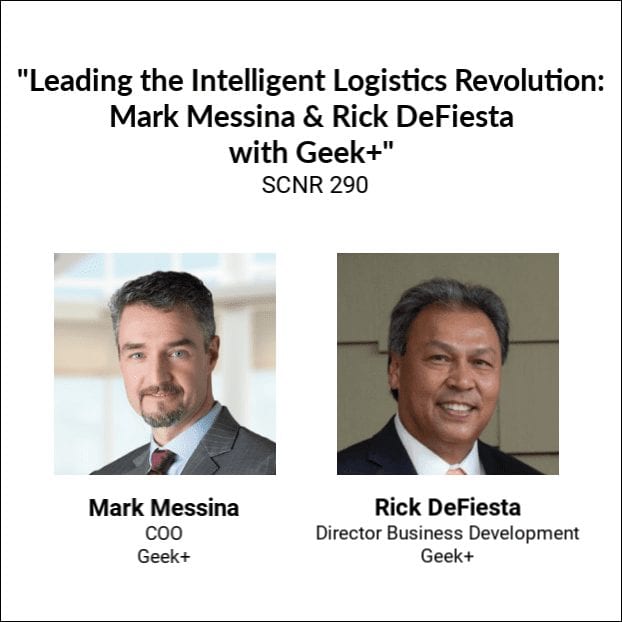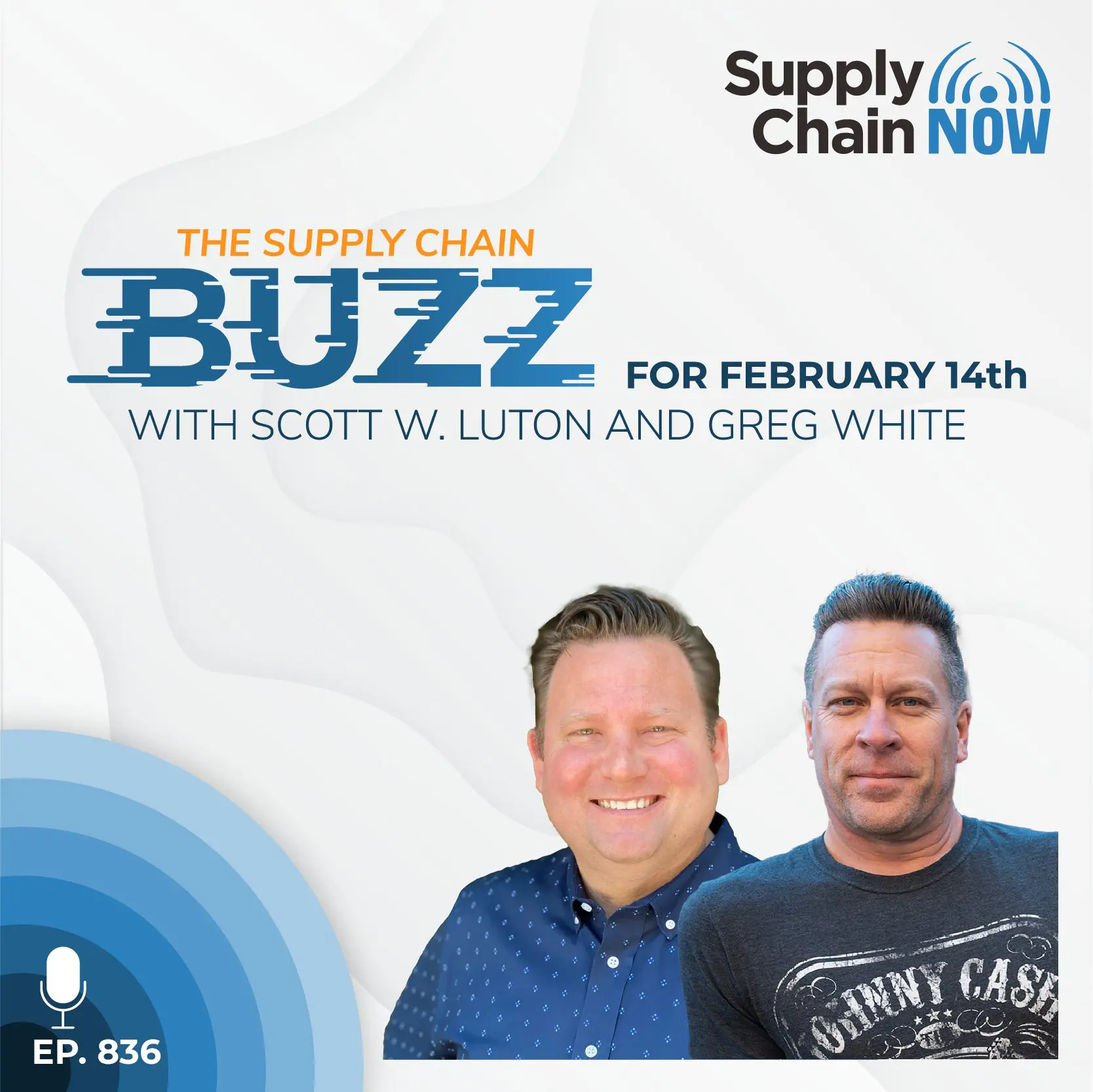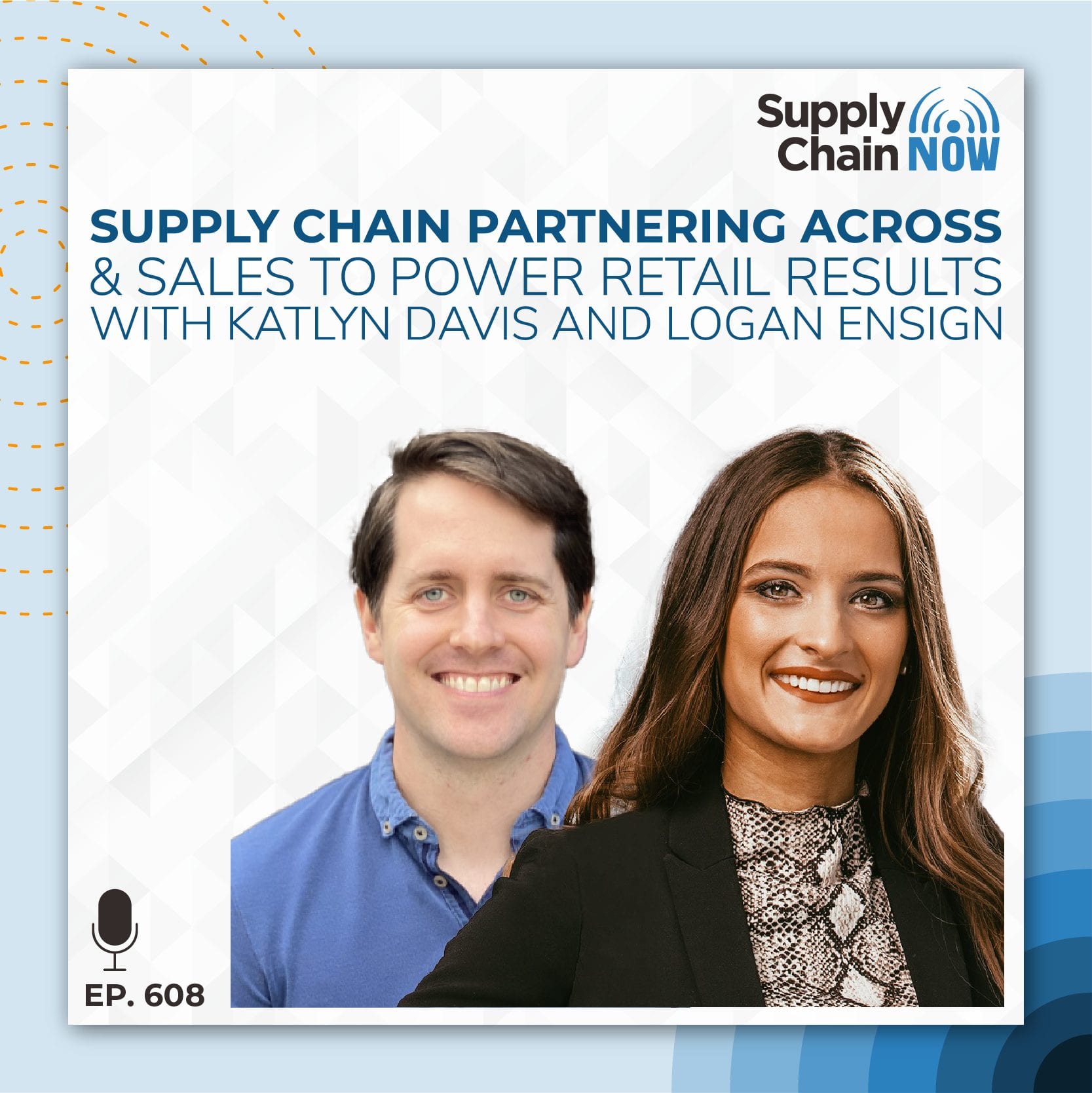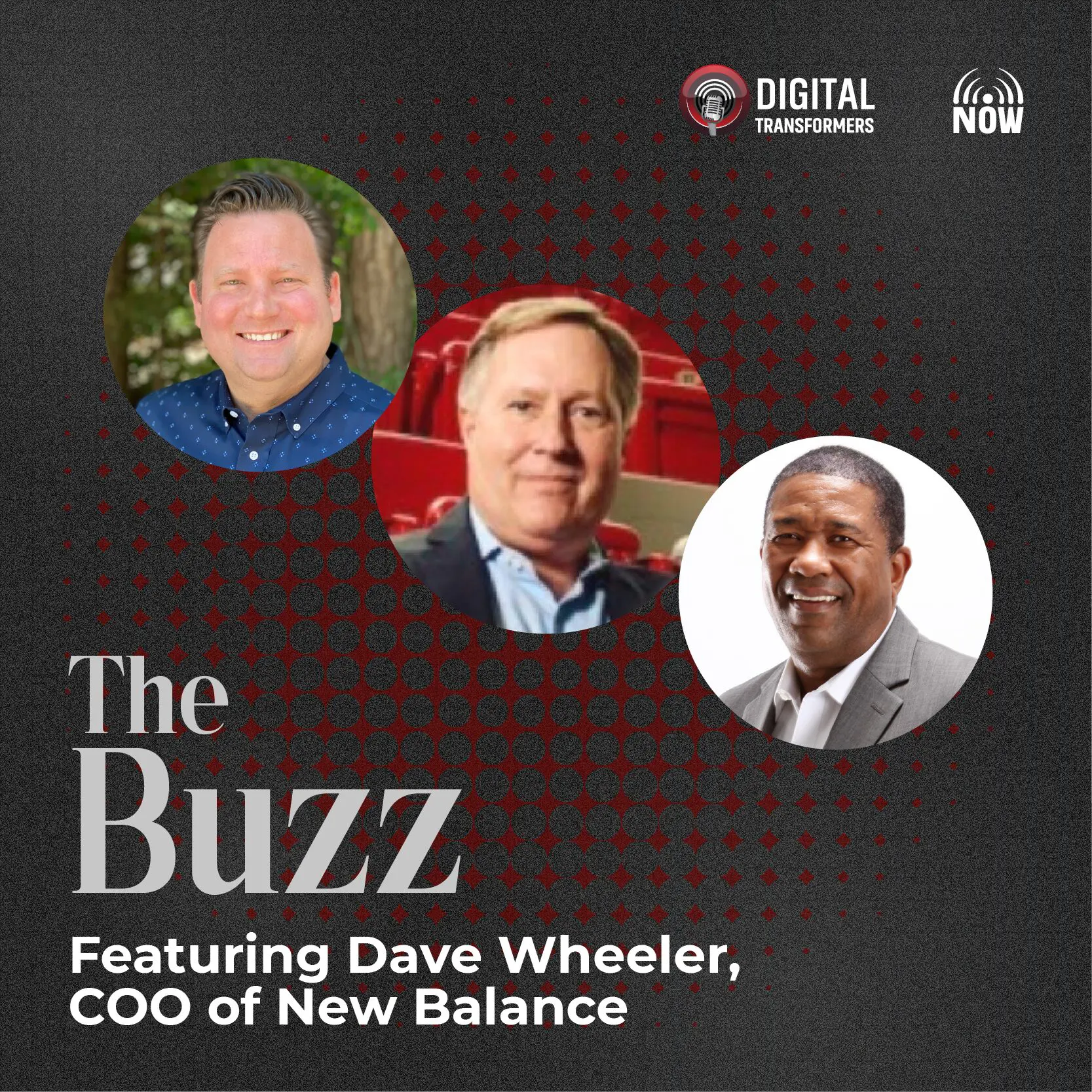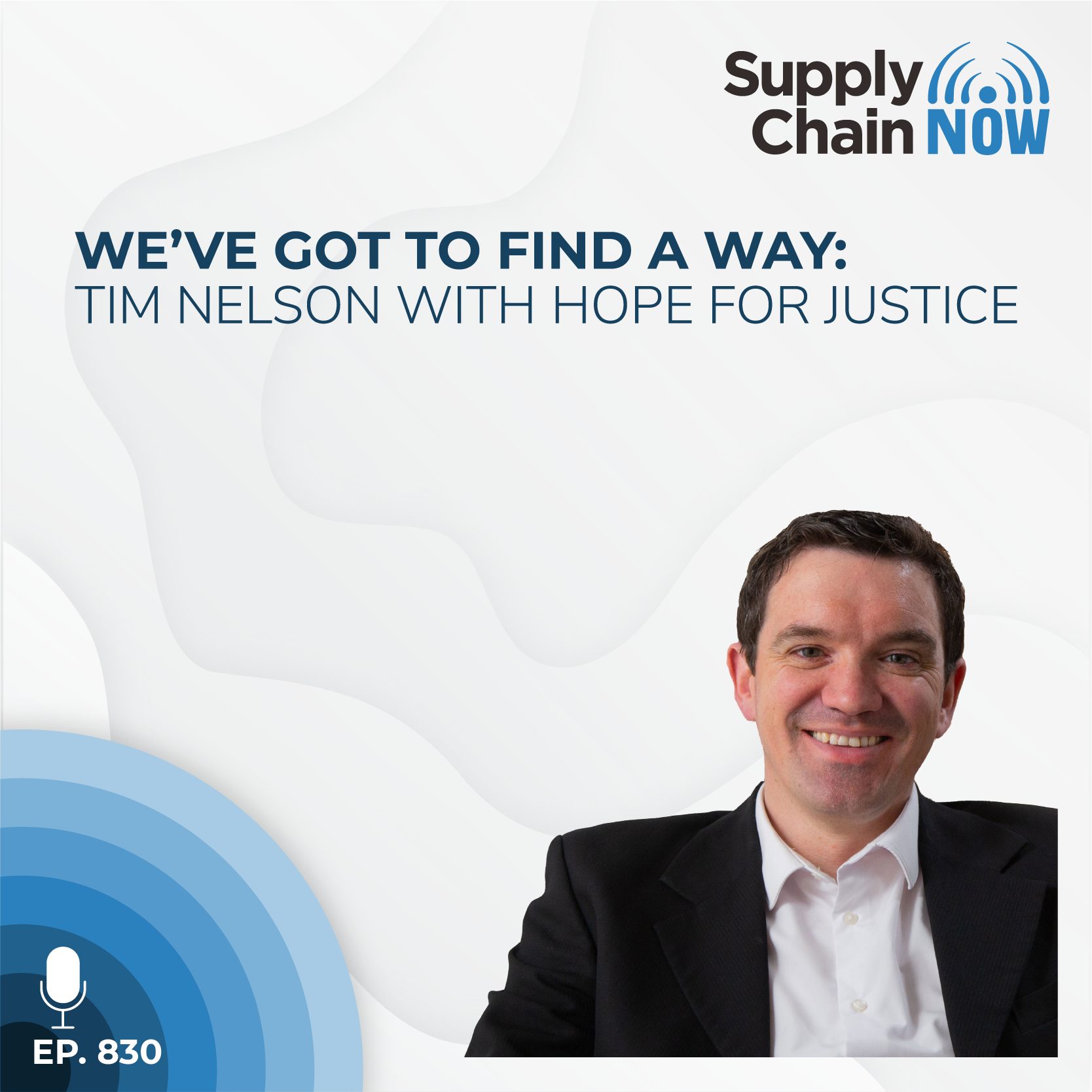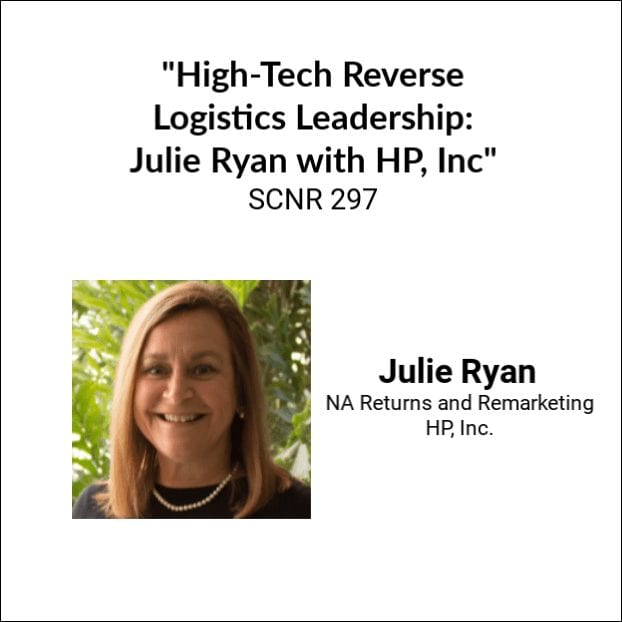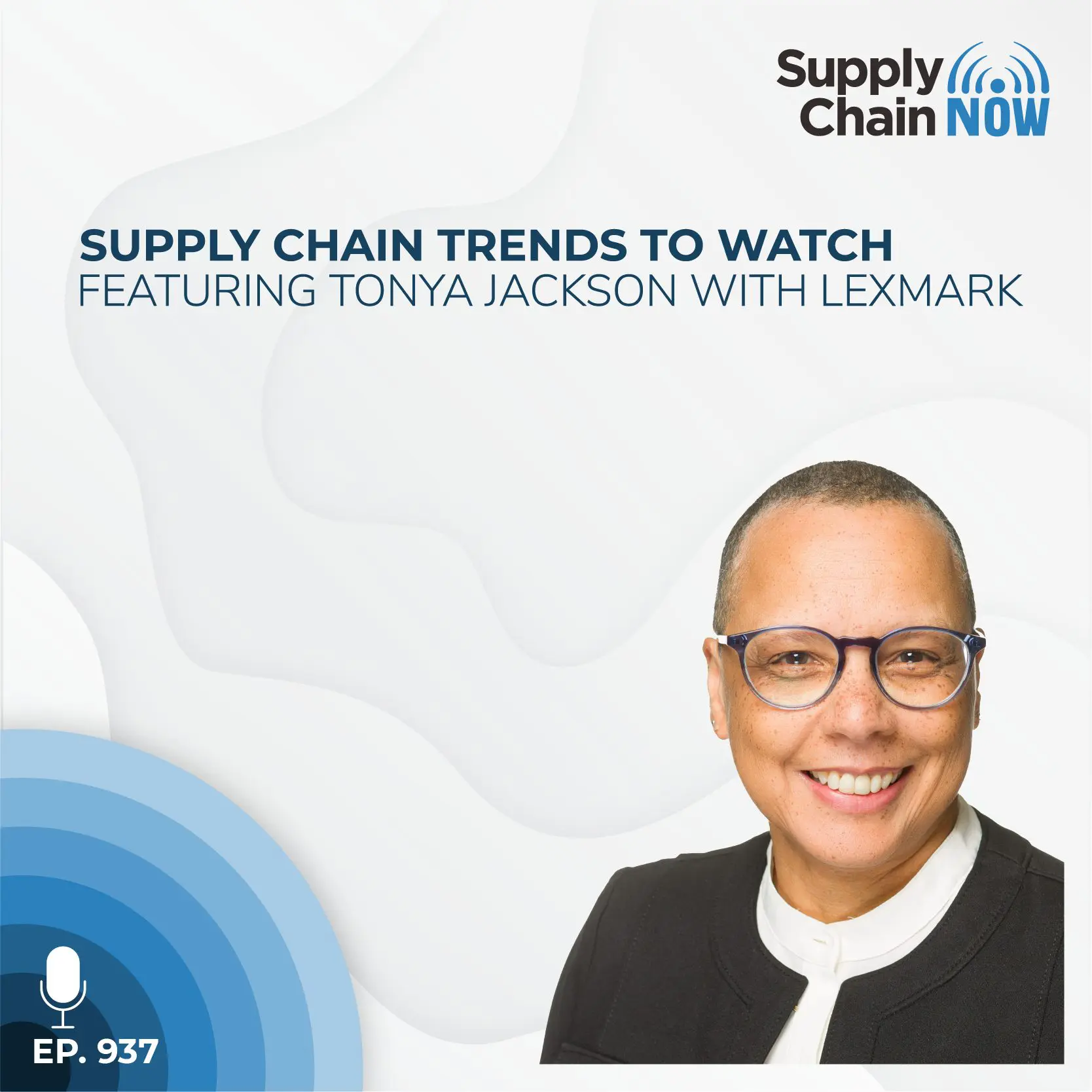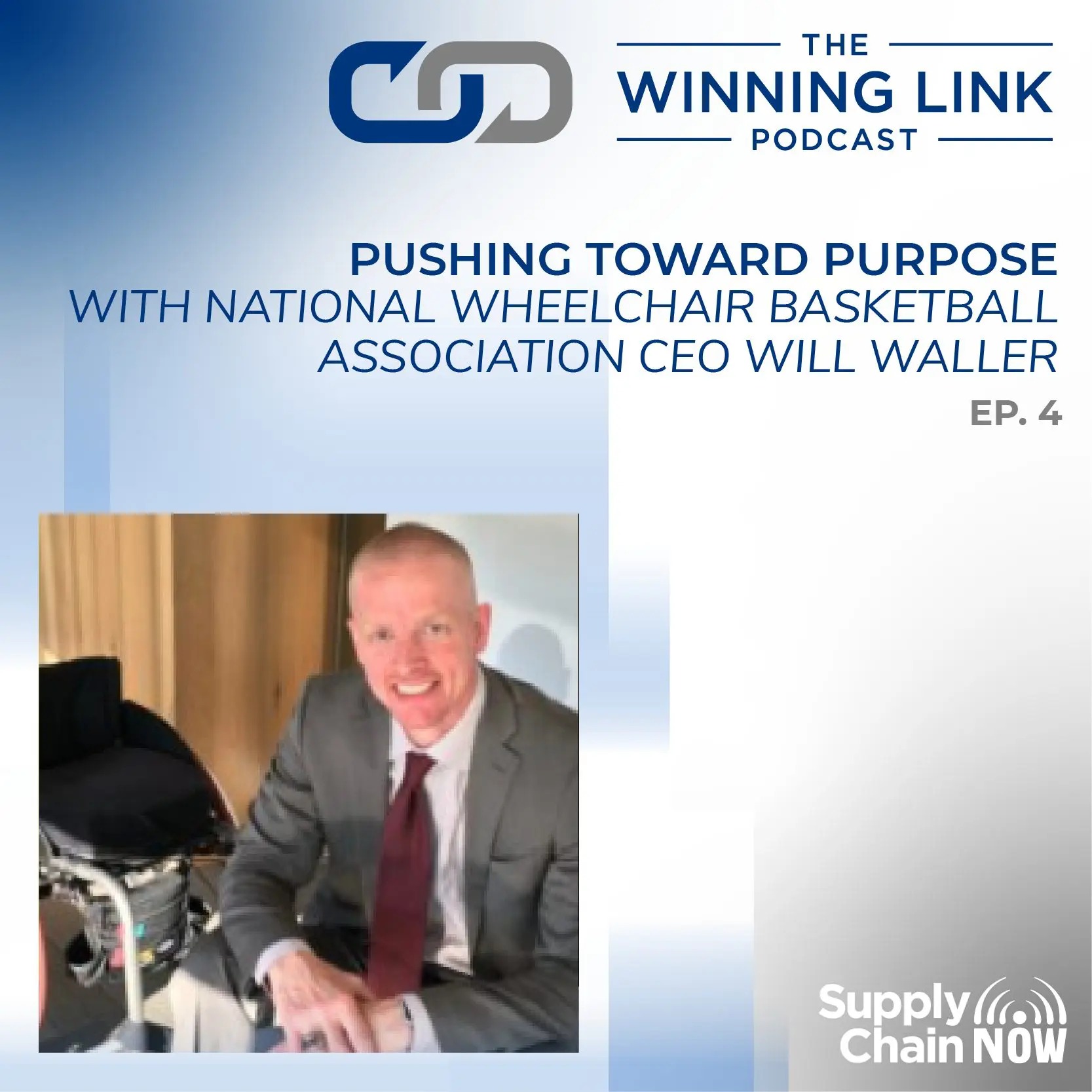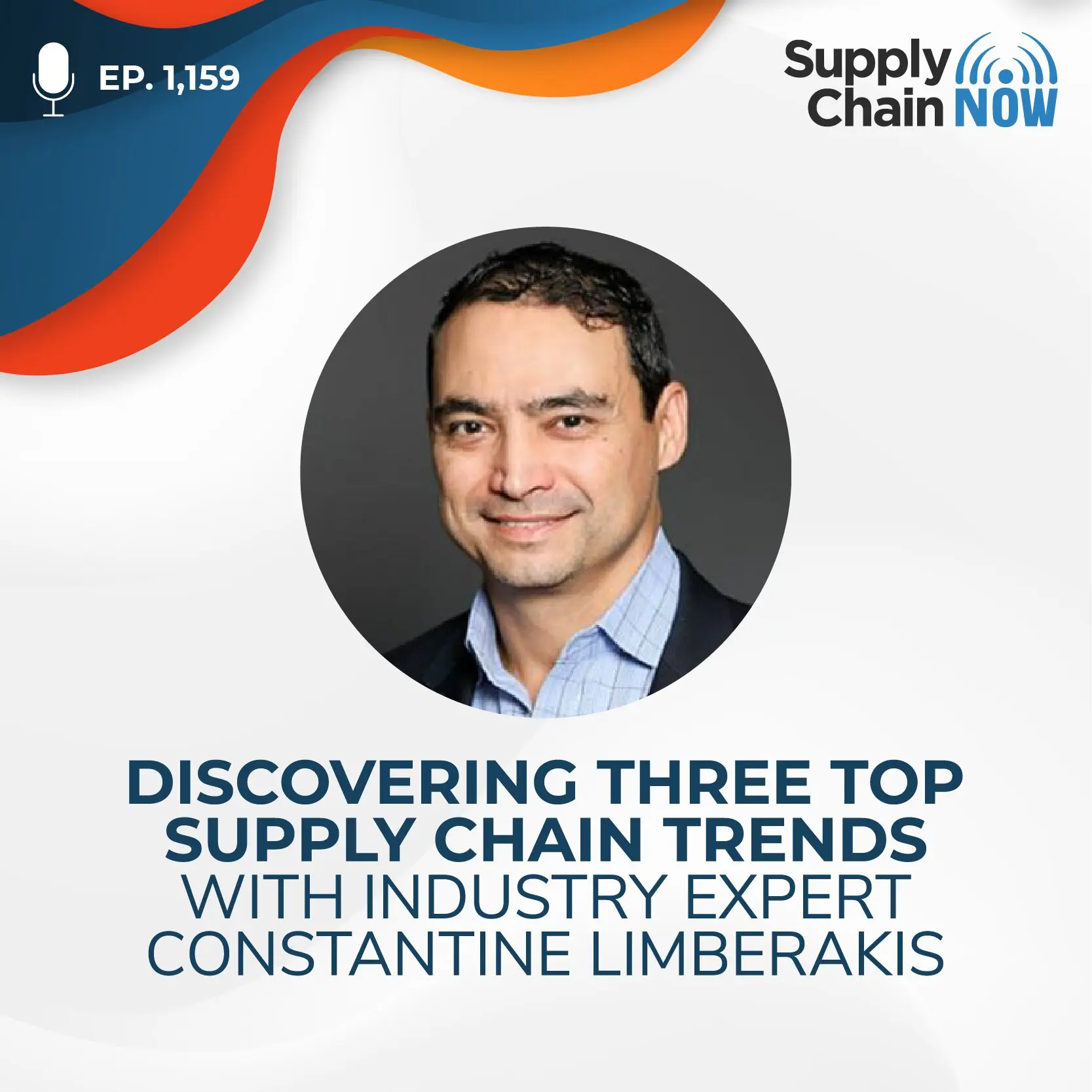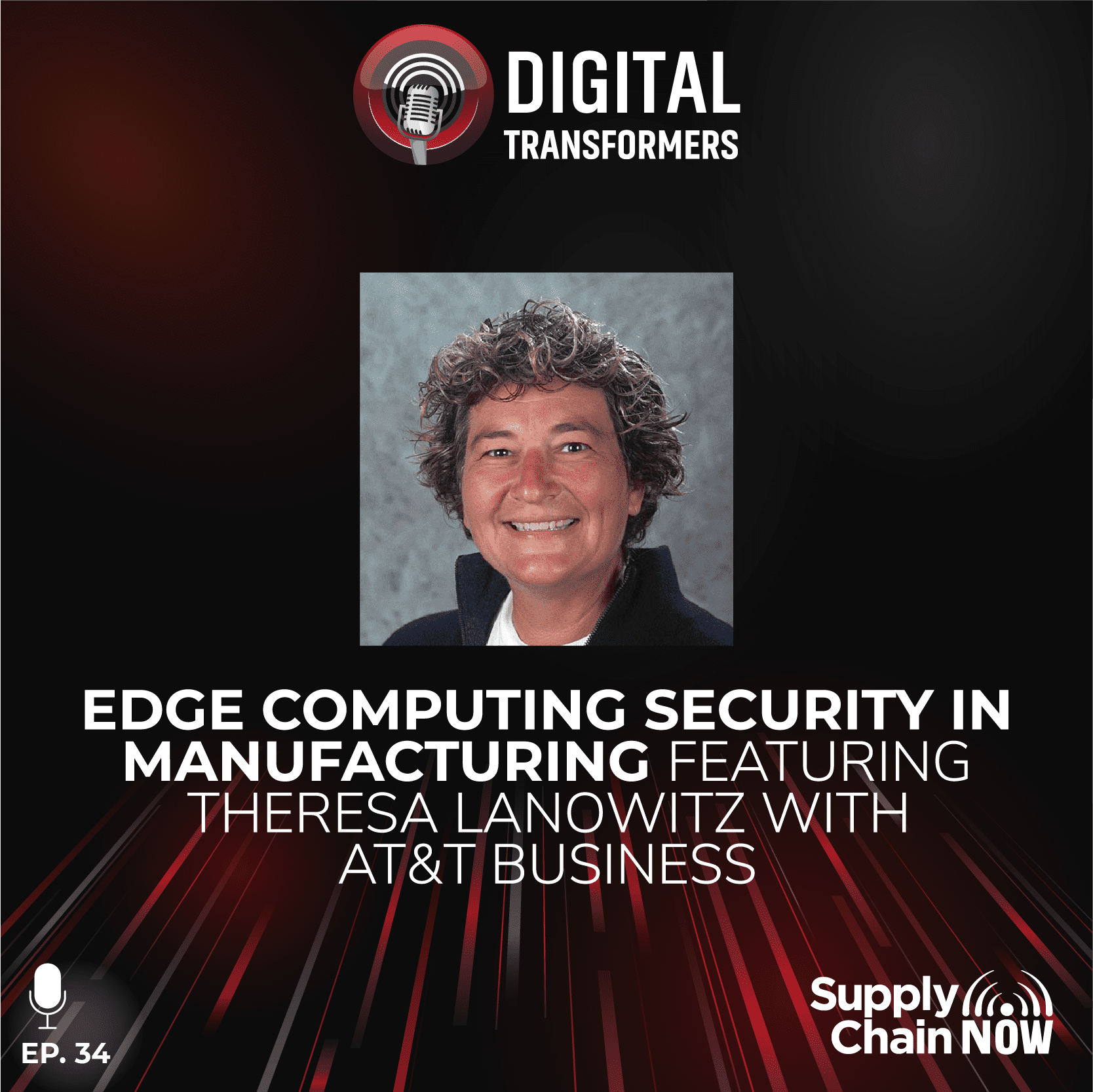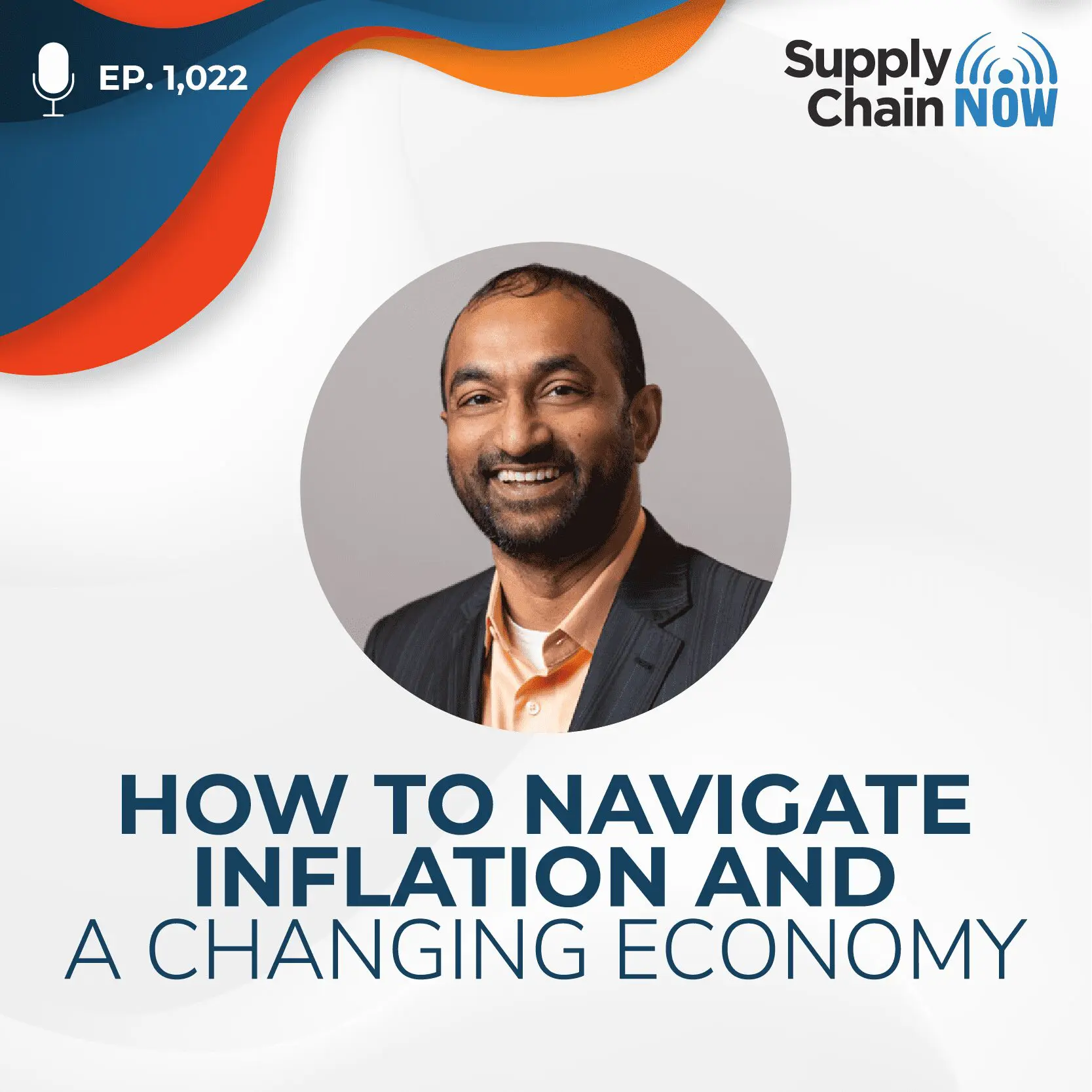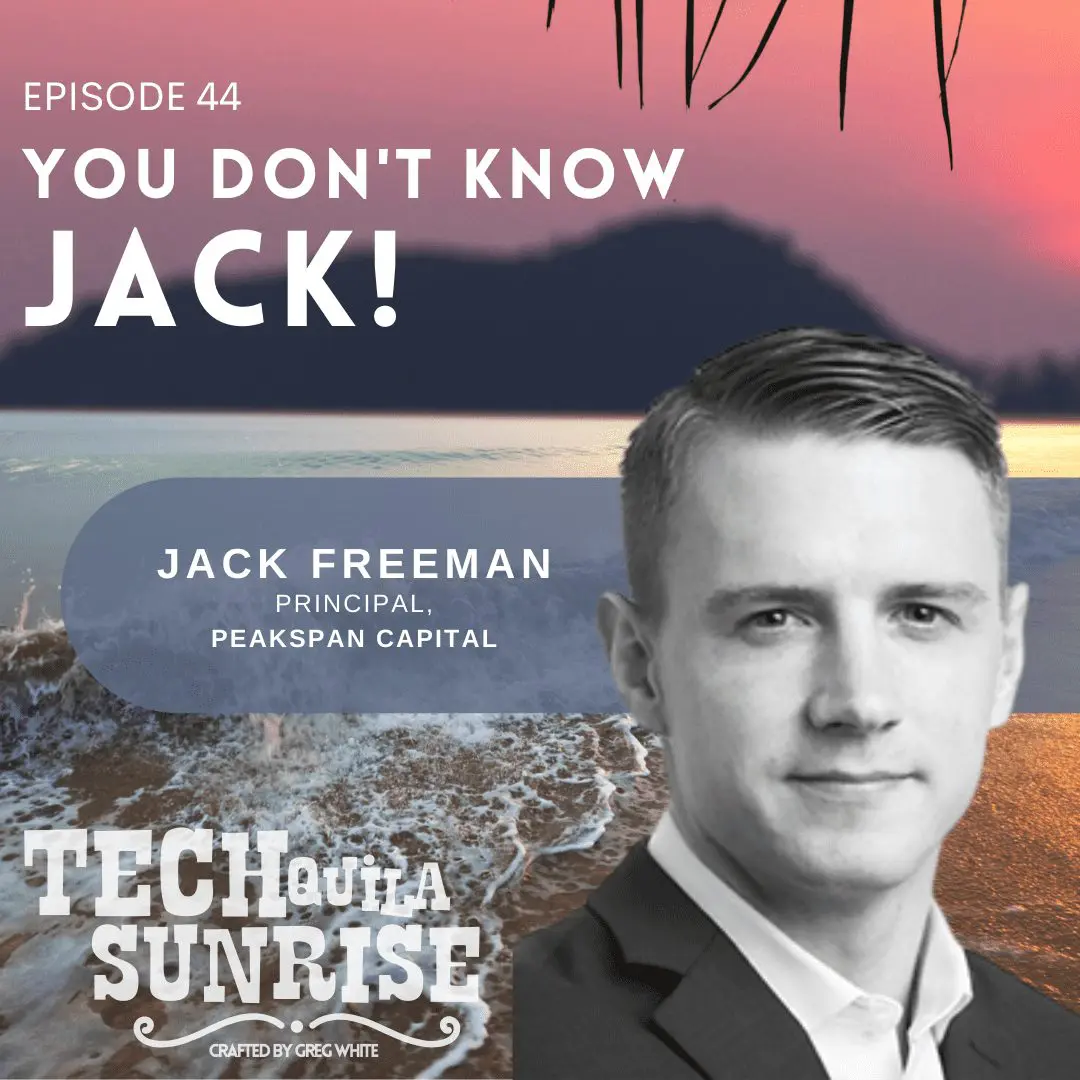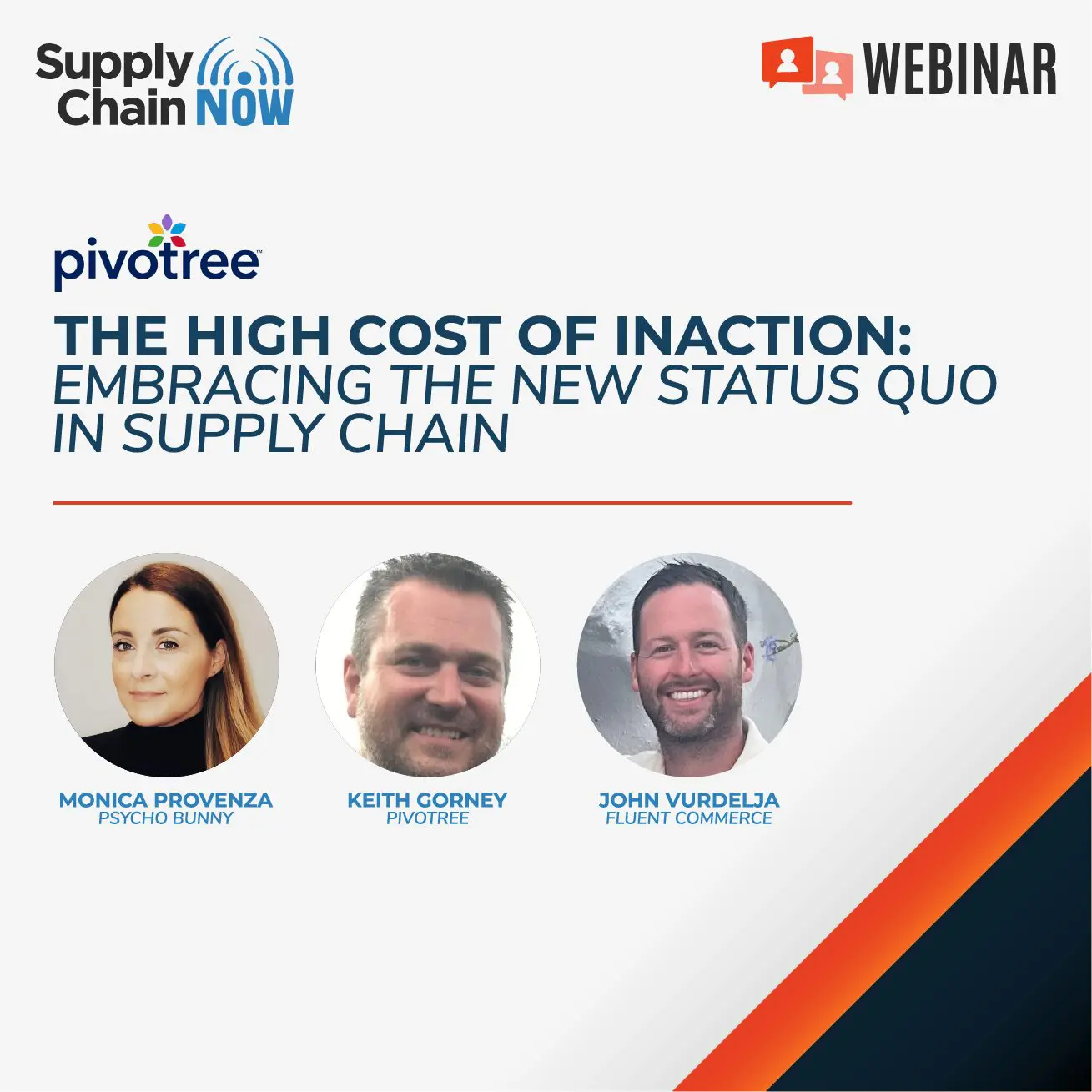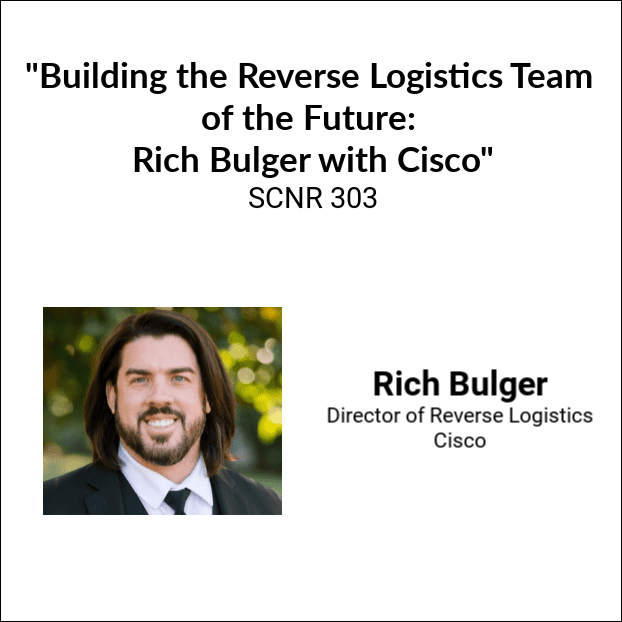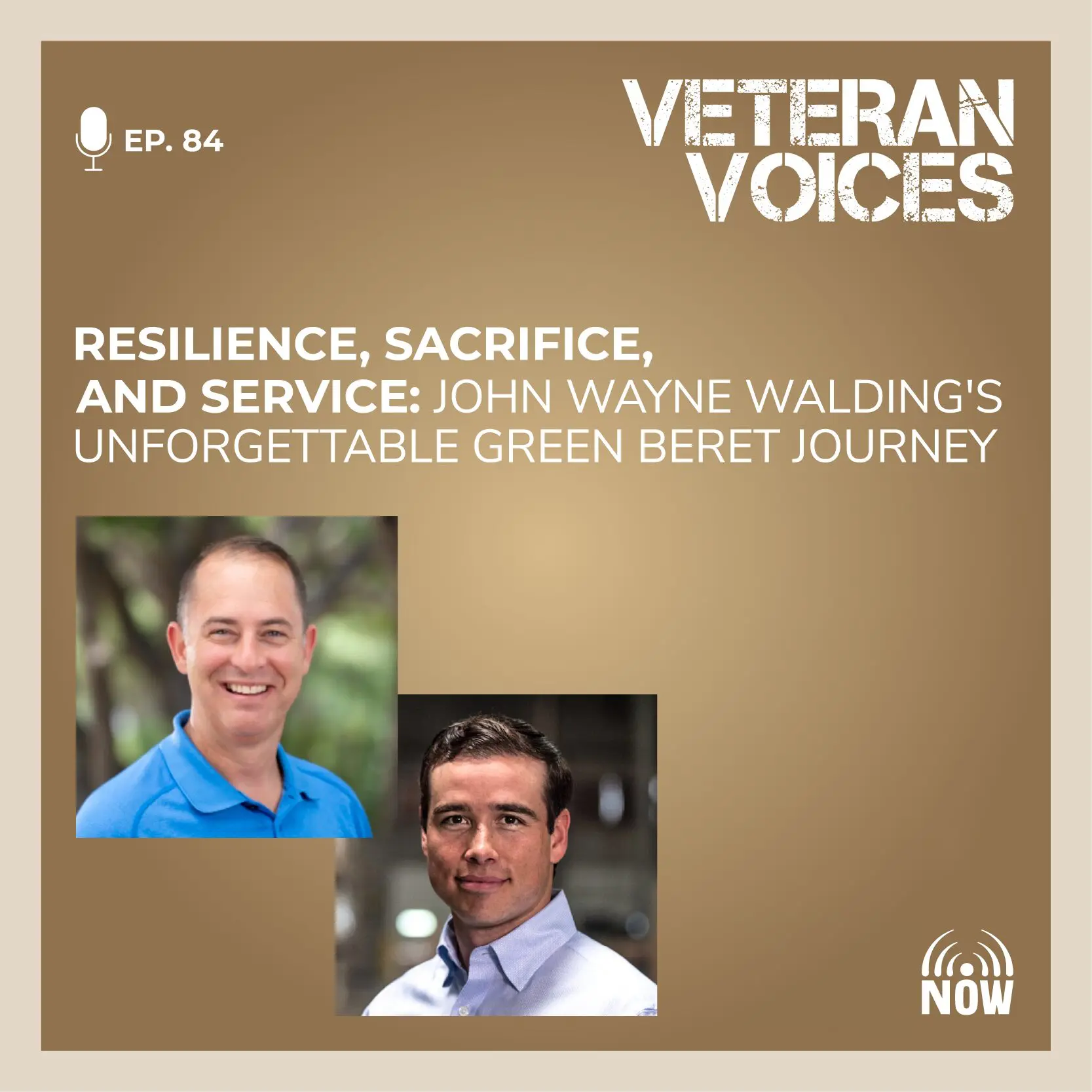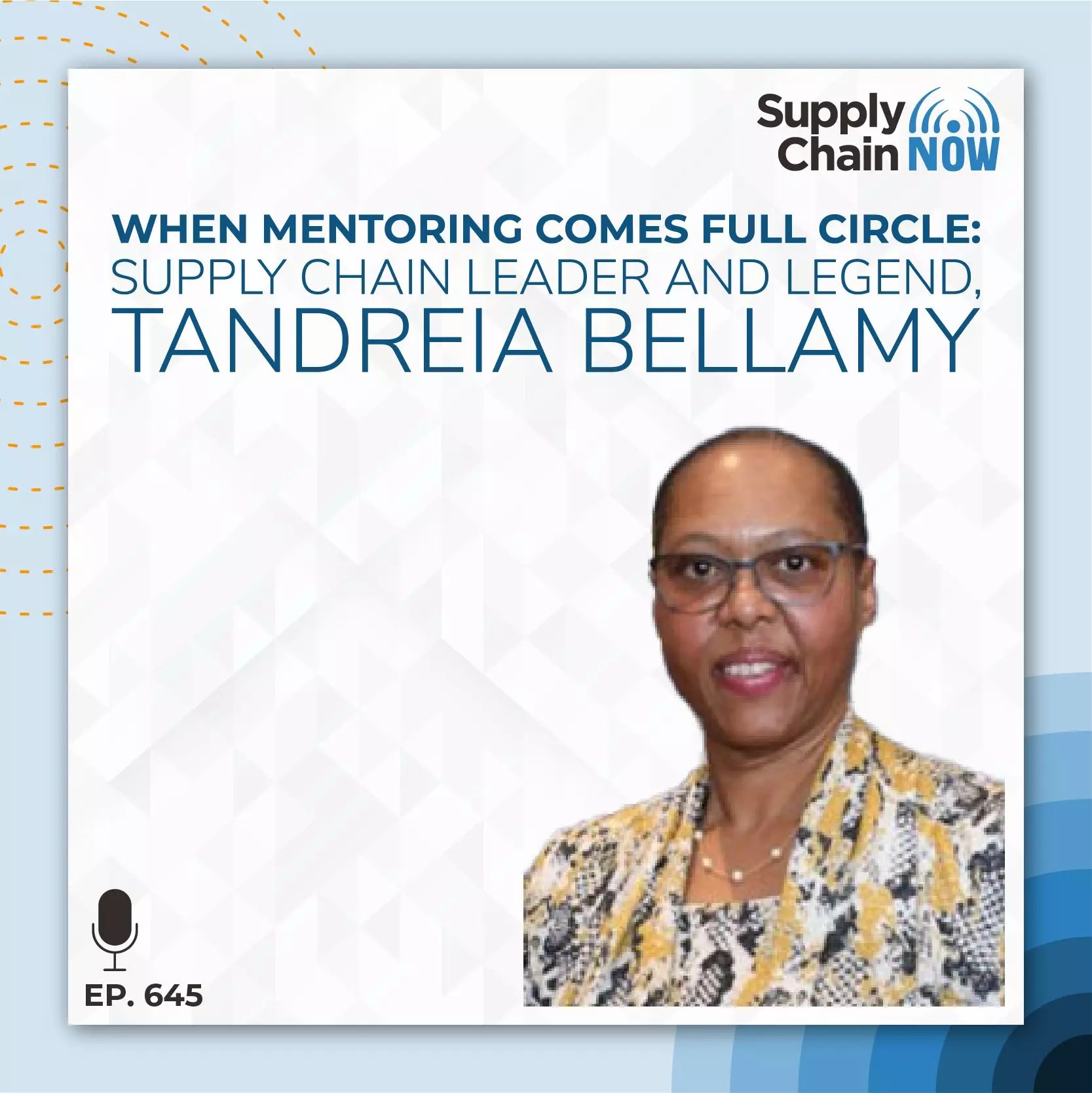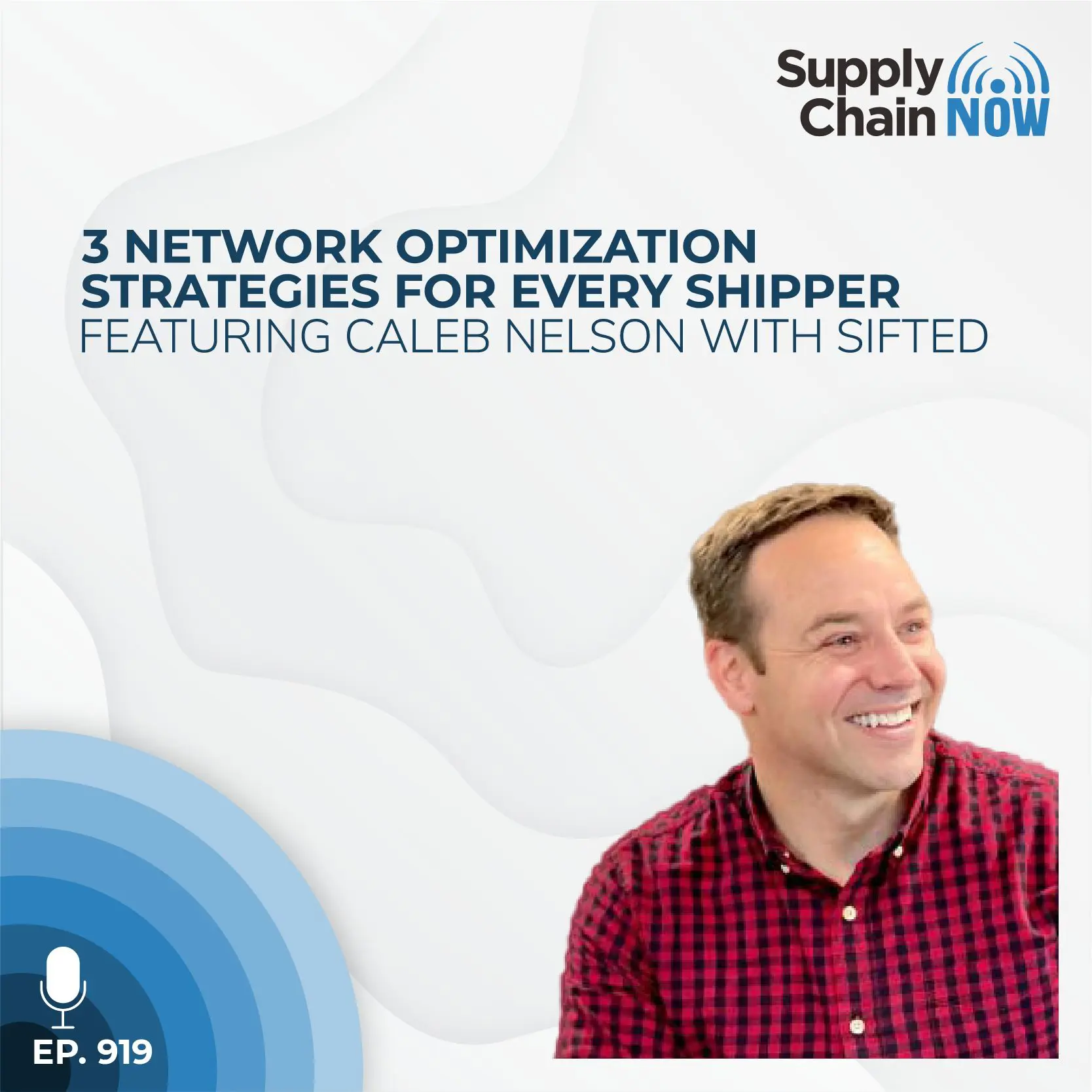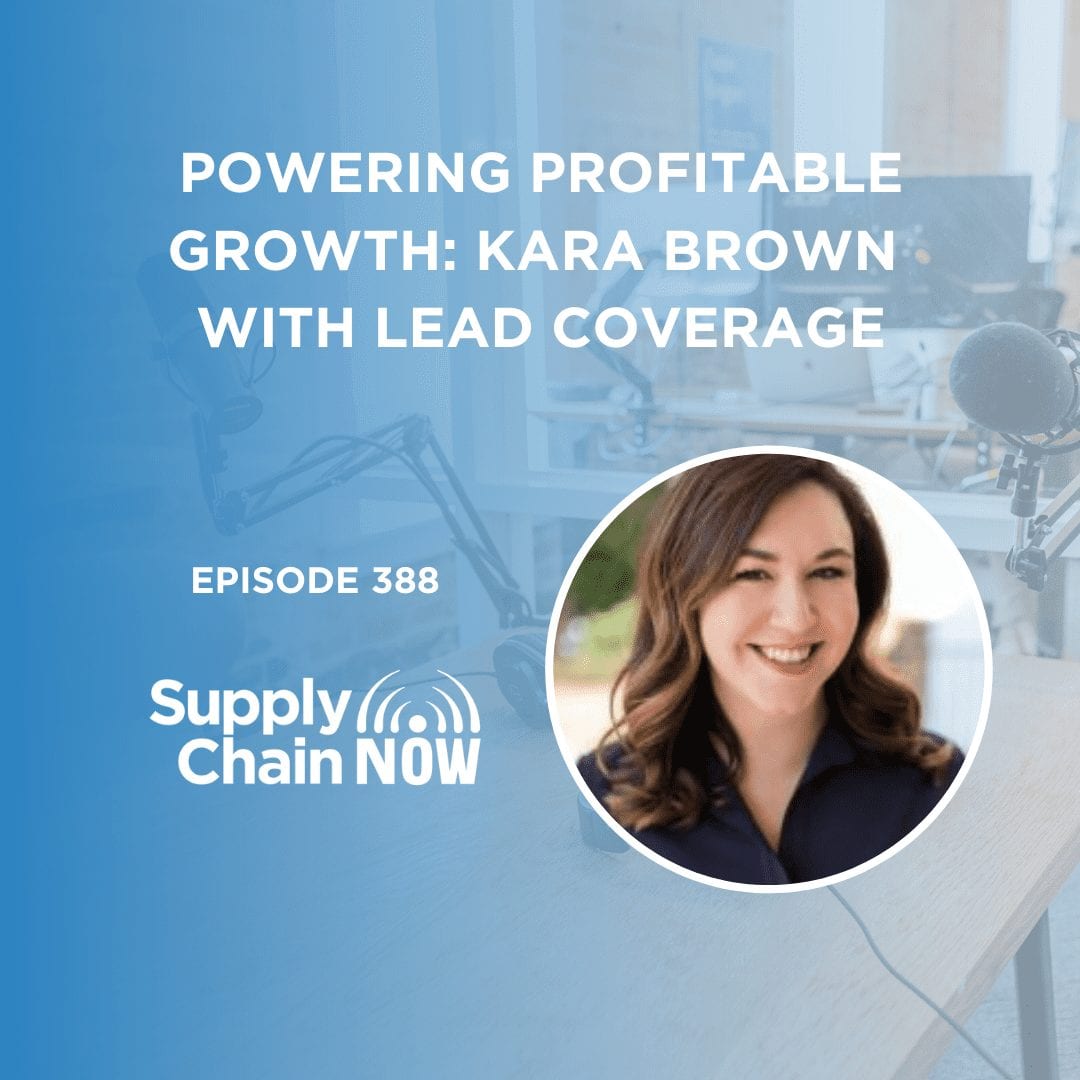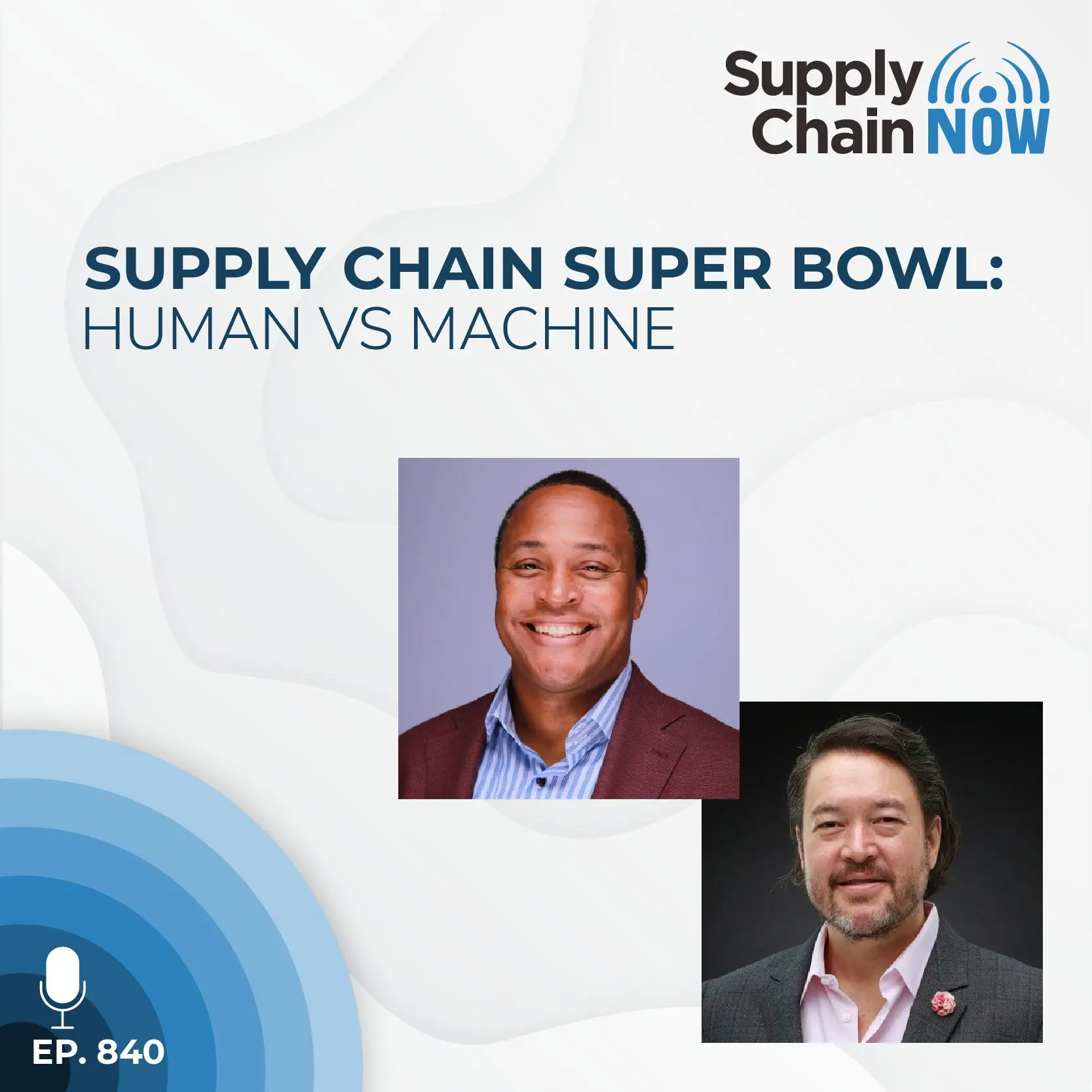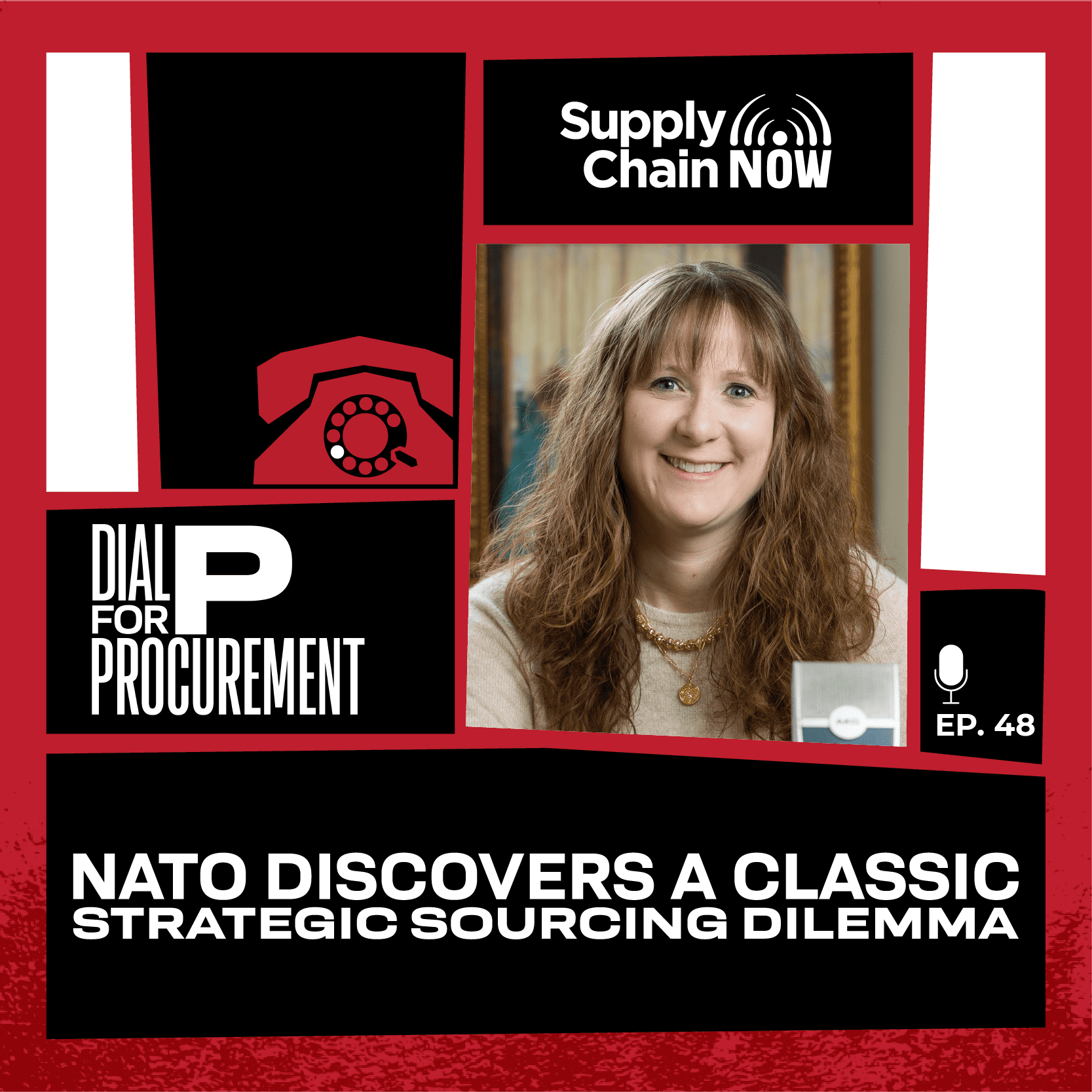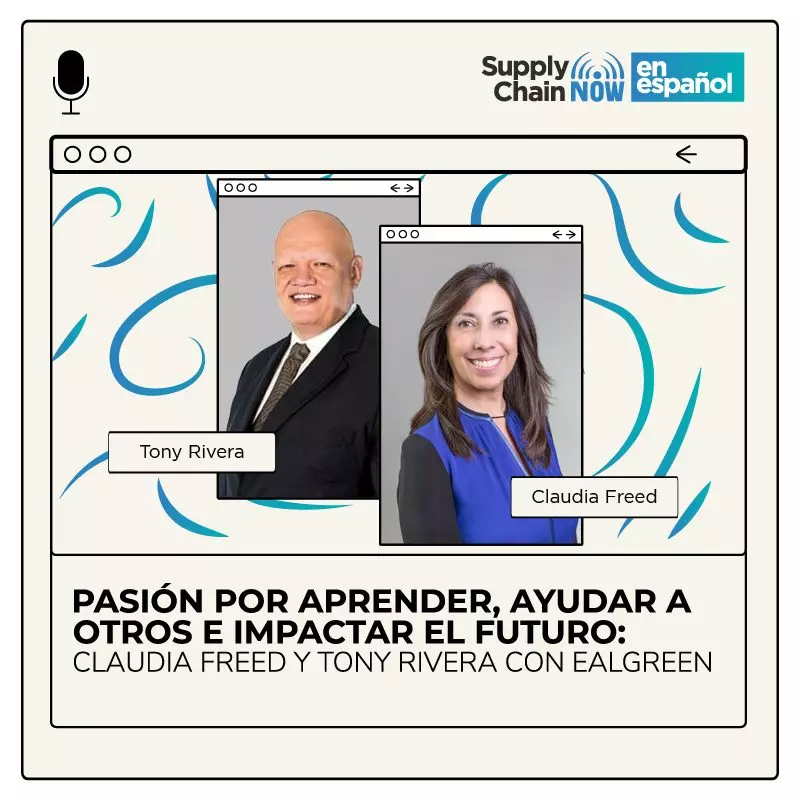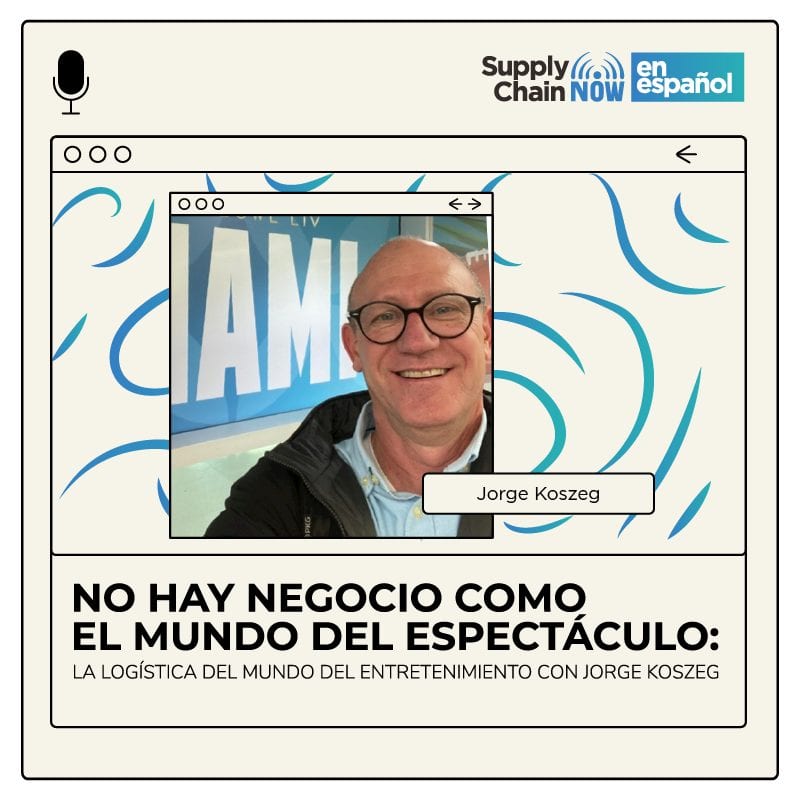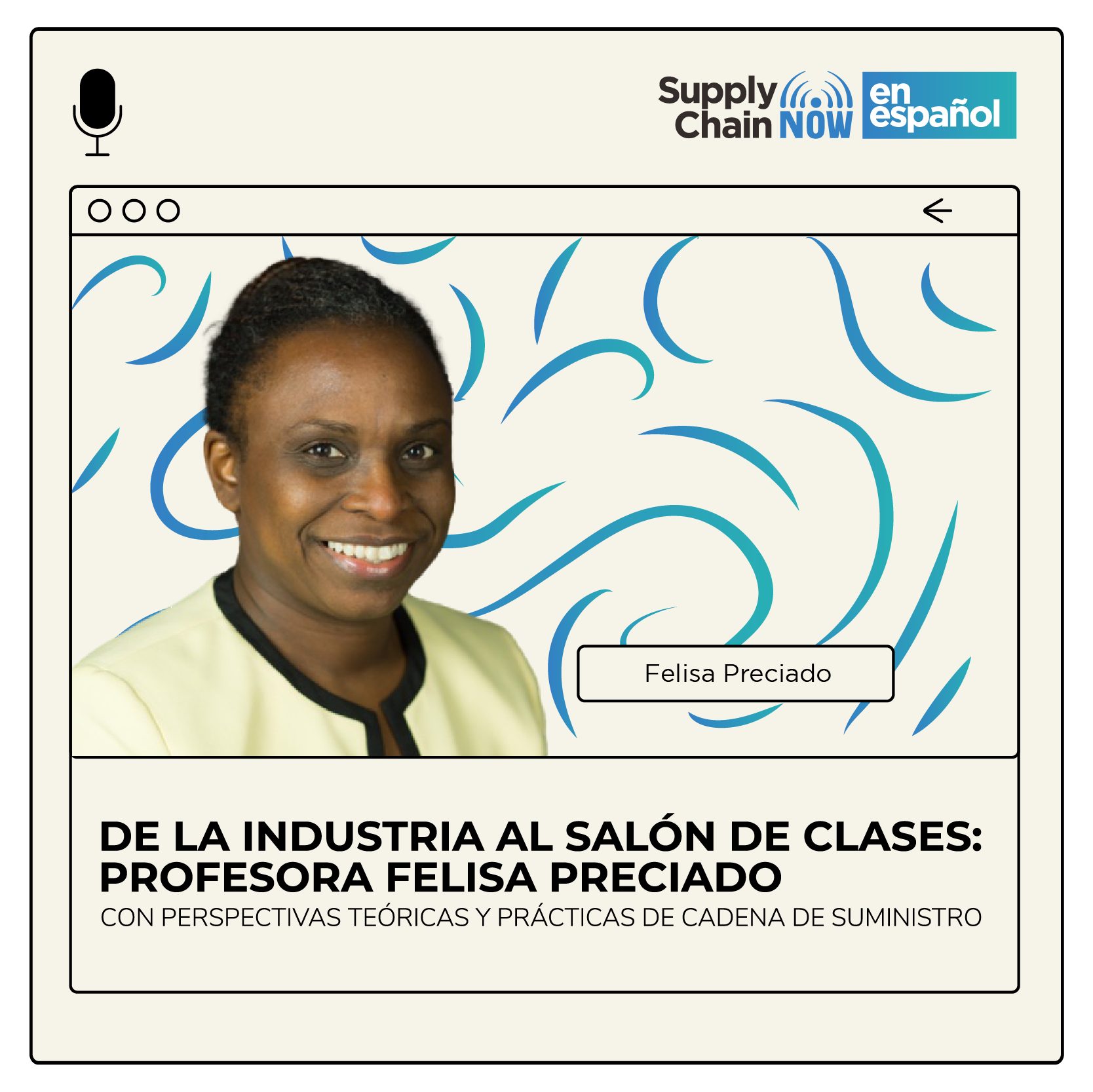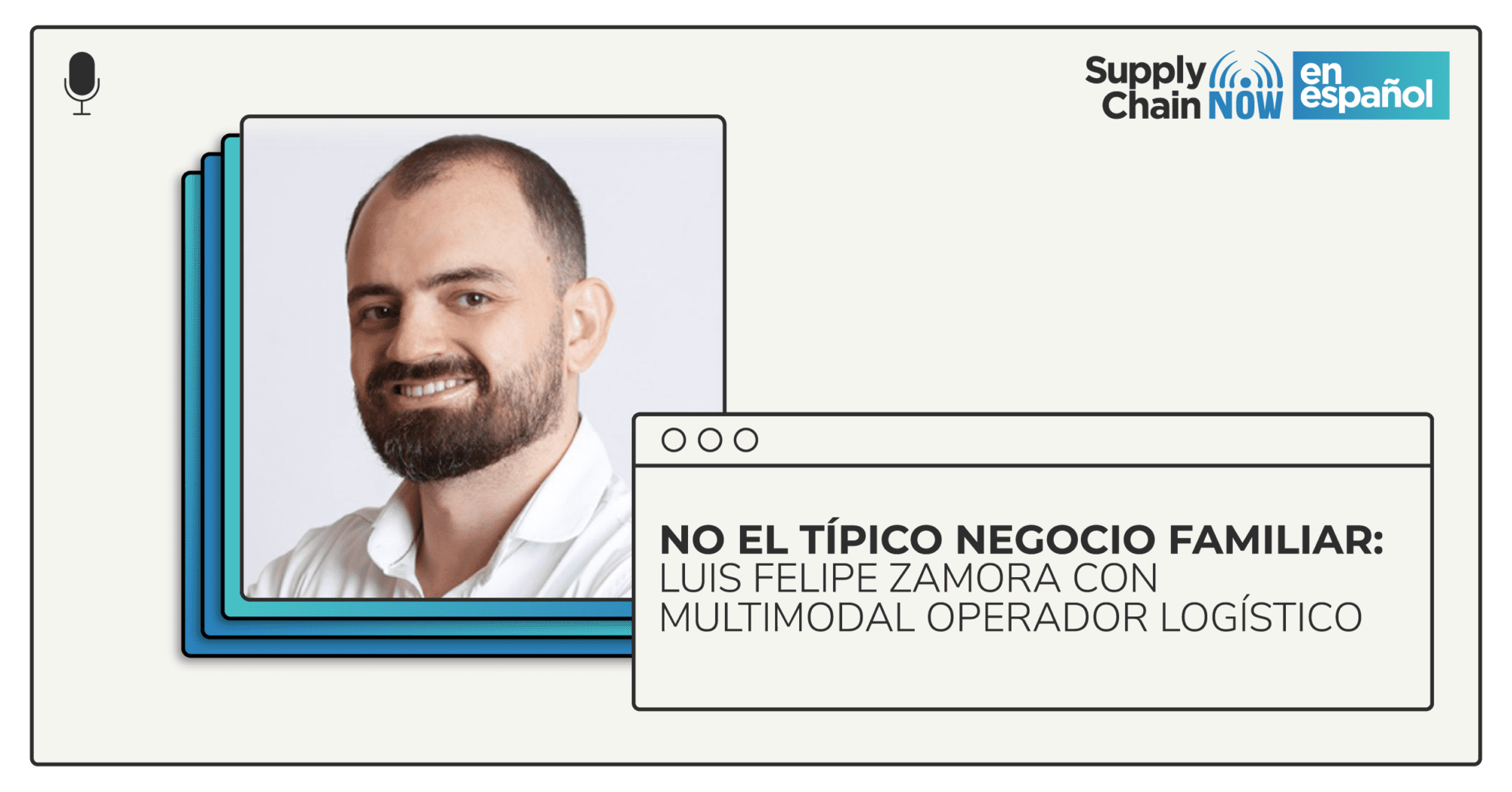
Lo que creo es que para que seas eficiente, debes tener pasión por el trabajo que haces.
-Luis Felipe Zamora, Multimodal Operador Logistico
Resumen del Episodio
En este episodio de Supply Chain Now en español, el presentador Enrique Alvarez nos presenta a Luis Felipe Zamora con Multimodal Operador Logístico. Escuche cómo Luis comparte los obstáculos que superó, sus comienzos como “asistente” no remunerado de su padre, oficial de aduanas, hasta convertirse él mismo en un agente de aduanas de exportación y luego construir una organización logística internacional en su país de origen, Costa Rica. ¡Únete a nosotros!
Transcripción en Español
[00:00:37] Muy buenos días. Bienvenidos nuevamente a otro episodio de Supply Chain Now en español. Mi nombre es Enrique Álvarez y el día de hoy tengo el gusto y el placer de platicar y el presentarles a Luis Felipe Zamora. Luis Felipe es un compañero de la logística en Costa Rica, director comercial de multimodal, operador logístico internacional y estoy seguro que tendremos una plática muy interesante y muy, muy relevante para lo que estamos viviendo en todo el mundo y en particular en Latinoamérica en cuestión de logística. Como siempre, si les gusta este tipo de entrevistas, este tipo de pláticas, no dejen de suscribirse a Supply Chain Now. Nuevamente Enrique Álvarez Supply Chain Out en español Luis Felipe que tal? Muy buenas tardes.
[00:01:25] Buenas tardes Enrique y muchísimas gracias por la invitación. Es un gran placer estar con vos en este hermoso día.
[00:01:33] El placer es todo nuestro y dinos desde donde nos acompañas para la gente que nos está escuchando.
[00:01:39] Bueno, estamos en este momento. Estamos en Heredia, en Costa Rica. Son las once y media de la mañana. Exactamente.
[00:01:45] Heredia donde? Donde está Heredia?
[00:01:47] Fijate que bueno, como vos sabes, Costa Rica es un país bastante pequeño y estamos las principales provincias de Costa Rica son Heredia, Alajuela, San José y Cartago, pero en general como somos tan pequeñitos la llamamos como el Gran Área Metropolitana. Entonces estamos tan solo como a cinco kilómetros de Heredia, a cinco kilómetros de Cartago. Estamos muy, muy cerquita.
[00:02:11] Perfecto, perfecto. Luis Felipe Empecemos entonces. Al principio nos encantaría hacer un poco más sobre sobre tu infancia, de dónde eres, dónde creciste. Algo, algo sobre lo que, como tú decías antes de empezar a grabar, lo que hace a la persona que después se da toda la parte profesional y empresarial. Pero cuéntanos de ti.
[00:02:34] Bueno, muy bien. Soy oriundo de Alajuela, precisamente acá en Costa Rica, hace 36 años. Es decir, son treinta y 36 años. De niño me encantaba andar corriendo detrás de un balón de fútbol. Soy fiel, apasionado de ese deporte que mueve pasiones en toda Latinoamérica también y montado en una bicicleta. Creo que eso es lo que podría resumir en mi infancia. Un niño bastante, bastante inquieto, como le decía yo, mi mamá siempre que pasaba rompiendo los zapatos del de la escuela y los pantalones
[00:03:12] Junto a la bicicleta.
[00:03:13] Claro, de tanto andar pateando las bolas y cajas de refresco, todo lo que tuviera formal servía de balón.
[00:03:21] Cuál es? Cuál es tu equipo favorito hablando de fútbol?
[00:03:24] Mi equipo favorito es el de mi región de Alajuela. El Alajuelense es un equipo bastante popular. Y es de los dos principales equipos en Costa Rica.
[00:03:41] Qué bien, qué bien! Y Costa Rica ha tenido una muy buena, una buena década, yo diría. En cuanto a fútbol.
[00:03:49] Sí, bueno, yo creo que los que nos gusta el fútbol recordamos de manera increíble el Mundial de 2014, que pudimos llegar hasta hasta cuartos de final en el partido contra contra Holanda, que finalmente se deciden en penales y hemos tenido buenas generaciones de futbolistas. Ahorita que Keylor Navas es nuestro principal referente, que estuvo jugando en el Real Madrid y ahora en el PSG y actualmente no nos está yendo muy bien en las eliminatorias hacia Qatar. Creo que si gastamos un poco esa generación dorada, pero. Pero el fútbol es el deporte rey en Costa Rica? Sin duda,
[00:04:25] Claro que sí, en muchas partes. En Latinoamérica yo creo que es algo bueno y en el mundo yo estoy en Estados Unidos, pero incluso aquí ya se vive la pasión, como en mucho tiempo no se vivía. Creo que el fútbol es un deporte que finalmente entró a Estados Unidos y es un deporte, obviamente, como todo mundo sabe, líder en el resto del mundo. Cuéntanos ahora, desde tu infancia, algo a lo mejor que recuerdes que te empezó a a empujar rumbo a las cadenas de suministro rumbo a la logística.
[00:05:00] Bueno, Enrique realmente eso tiene tiene una vena familiar, ciertamente mi papá es agente aduanero, entonces desde que tengo más o menos trece, catorce años de edad, yo le ayudaba a él realmente. Él hacía exportaciones en la noche, porque normalmente acá en Costa Rica la exportación de perecederos es bastante fuerte en las noches, principalmente viernes y sábado. Y no me tocaba a mí ponerme al lado de él. Ayudaba a hacer algunas digitación en un sistema que había. Lo acompañaba a las noches a la aduana y creo que por ahí fue donde se fue metiéndose en esa circunstancia. En mi vida también.
[00:05:45] Que buena oportunidad. Y aparte, a través de la agencia aduanal o aparte de las importaciones exportaciones, creo que te da unos fundamentos muy valiosos para la cadena de suministro en general. Algo que te acuerdes de tu papá, algo que me imagino que has de haber aprendido muchísimas cosas de él, pero algo que se quedó contigo.
[00:06:07] Yo siempre me he quedado con con realmente el esfuerzo de mi padre. No porque recordaba yo que en aquel entonces había que trabajar jornadas súper extensas porque se trabajaba en el día. Luego llegábamos en la noche o él llegaba en la noche, descansaba un poco, cenaba y había que volver a ir otra vez a a la aduana en la noche. Entonces ahí era donde él me pedía ayuda y me decía Felipe, bueno, ayúdame a pasar esto a la computadora mientras tanto. Y pues yo con bastante gusto siempre ha estado muy cerca de él. Y entonces pues le acompañaba. Y creo que eso es lo que siempre, siempre recordado, como ese entusiasmo y trabajo fuerte y también la responsabilidad, porque quizá en ese momento no era tan consciente, pero pero si se nos quedaba un embarque de flores o se nos quedaba algún embarque de algún producto perecedero, pues era un grave problema.
[00:06:57] Las alas nombrado un par de veces la parte de los perecederos en la parte de exportación. Qué es lo que se exporta de Costa Rica? Qué? De qué depende la economía de Costa Rica en cuanto a la exportación? Y también un poco la parte importación.
[00:07:12] Bueno, aquel entonces cuando estábamos te había dicho el producto perecedero si era el producto clave y estrella, sobre todo en las exportaciones aéreas, donde era donde nosotros estábamos inmersos. Obviamente, Costa Rica también ha dado un giro importante hacia las zonas francas y específicamente en dispositivos médicos, y hoy por hoy es el producto más exportado de toda la parte de dispositivos médicos y las compañías estadounidenses que invierten en Costa Rica. Pero los productos agrícolas siguen estando, sigue estando bastante fuertes en la parte marítima. Seguimos exportando muchísimas frutas como melón, como banano y la parte aérea seguimos exportando bastantes flores, bastante pescado también y productos congelados más o menos. Es como está dividido un poco actualmente los productos de exportación
[00:08:03] Y es la parte aérea. Me imagino que sigue siendo predominante para todos estos perecederos.
[00:08:10] Absolutamente. El Aeropuerto Internacional Juan Santamaría, que es el aeropuerto principal, es por donde sale absolutamente todo lo perecedero y también la parte de dispositivos médicos que, como te digo, es el auge que ha venido, pensaría yo de los últimos 10 años aproximadamente, que sea un giro importante hacia hacia ese sector.
[00:08:29] Hacia dónde va normalmente la. Hacia dónde es el movimiento de carga de de Costa Rica y hacia Costa Rica?
[00:08:41] Normalmente si hay gente que me escucha, si,
[00:08:45] Si te escuchan,
[00:08:47] Ok, perfecto. Te decía que los productos principalmente de exportación van hacia hacia Estados Unidos. Realmente la parte aérea viaja muchísimo a Estados Unidos. La parte de contenedores completos y refrigerados y River viajan a hacia la zona europea. Y hay algunos mercados asiáticos que son mercados emergentes que se han empezado a explorar como posibilidades importantes para productos también típicos en Costa Rica, como el café, principalmente hacia su destino. Digamos, un poquito más exótico. De verdad que son Arabia que son. Asia en general.
[00:09:31] Perfecto, Felipe. Bueno, cuéntanos, volviendo a tu trayectoria, disculpa que nos dimos una tribuna tan cultural, pero cuéntanos un poco entonces de ti y de ayudabas a tus papás. A los 14 años empezaste a ver un poco qué más como que estudiaste y cómo llegaste luego a donde estás ahora?
[00:09:52] Sí, yo siempre. Vamos a ver como te decía, estuve, estuve trabajando con mi padre de manera informal, era más como como ayudante sin paga.
[00:10:02] Claro, claro, sí, claro, pero bastante remunerado. A final de cuentas no nos damos cuenta cuando somos jóvenes, pero. Pero después ese tipo de aprendizajes y sobre todo ese tiempo convivido con la gente que los que nos dio la vida, en este caso nuestros papás. Creo que eso es muy, muy valioso también, no?
[00:10:23] No, no, absolutamente. Como te decía, yo era un niño bastante inquieto, pero. Pero también era bastante estudioso de decirlo, verdad? Entonces todo la parte escolar y la parte del colegio. Estuve en sistema público en Costa Rica, que es bastante fuerte también. Por dicha, es una de las facilidades que tenemos en Costa Rica que podamos estudiar en el sistema público. Dentro de la parte del colegio también hay un sistema de técnico de colegios técnicos que nos dan herramientas adicionales. Yo me fui por la parte contable, así que estuve estudiando tres años contabilidad y a partir de ahí siempre mi ambición fue ser administrador. Estudié administración de negocios en la Universidad Nacional, pasé a la Universidad Latina, donde tuve una especialización en comercio y finalmente fui a la Universidad de Costa Rica y obtuve una maestría en Administración de Negocios, con énfasis en gerencia. Es un poco mi formación profesional. He trabajado en la compañía de la familia desde los 19 20 años aproximadamente y aquí es como me he ido desarrollando y formándome a nivel profesional también.
[00:11:39] Cuéntanos un poco sobre la historia de la empresa, de la empresa familiar. Creo que también eso tiene su propia historia en paralelo a la tuya personal, y creo que eso sería muy interesante para que la gente conecte un poco tu personalidad y tu rol ahora en la empresa con lo que hace la familia, la empresa familiar.
[00:12:02] Sí, claro, como te decía, esta compañía va a cumplir 23 años ahorita en el en el 2002 y mi papá la inicia como dice el casi de manera casual, como te decía, empezando a ser exportaciones haciendo algunos despachos aduaneros como el agente aduanero. Y una cosa va llevando a la otra verdad de esta empresa, pues cuando yo ingreso una compañía pequeña que básicamente se dedica a la parte aduanera, poco a poco fuimos diversificando servicios, agregamos la parte de transporte local con nuestra propia flota. Después nos metimos en la parte del transporte internacional. Entonces bueno, listo, ya también podemos cumplir con con la parte del transporte, tanto en las modalidades aéreos y marítimos y terrestres y finalmente los últimos proyectos que la compañía, pues ahí se ha involucrado en la parte de almacenaje. Queremos darle a nuestros clientes una experiencia de logística tres, es decir, que con un solo proveedor puedan hacer todo su proceso de importación o exportación y empezar a agregar valor a través de que puedan tercerizar toda su operación en una compañía como nosotros.
[00:13:20] Excelente, cuál ha sido de? Te voy a preguntar un poco más del de la hora este en un momento más y todo lo que hemos vivido como. Empresarios y también como trabajadores en logística, pero algunos de los retos que la compañía haya pasado algo que te acuerdes, a lo mejor este no reciente no la pandemia, sino antes de eso, algún reto, alguna etapa en la cual fue crítico, algo que hizo la compañía y les dio el empuje que necesitaban para salir y estar donde están ahora como una de las mejores empresas de logística en Costa Rica.
[00:14:01] Si, mira, realmente yo pienso que si ha sido un camino verdad? Lleno de obstáculos, de espinas de hecho y nosotros siempre entre nosotros vacilamos como decimos en Costa Rica, que es que nosotros prácticamente siempre, siempre hemos estado en crisis. Es un sector altamente competitivo, es un sector que tenés que estar siempre en primera línea de ataque. Y yo creo que más bien esas circunstancias nos han forjado para poder afrontar situaciones complicadísimas como las que pasaron a raíz del COBIT. Pero si pudiese decirte alguna, vieras que no, o sea, realmente han sido muchísimas circunstancias que ha habido que superar. Donde la clave, Enrique, ha sido no rendirse y ser muy creativo también. Obviamente siempre de la mano del cliente, porque el cliente es el que te va dictando la pauta de cuáles son sus requerimientos y sus necesidades. Y por ahí es donde hemos logrado ir surgiendo, ir trabajando y finalizando nuestra cartera, que por dicha también es bastante fiel, porque creo que la clave siempre está en el servicio.
[00:15:20] Claro, claro. Oye, una no sólo te gradúas la administración de negocios, tienes buena experiencia en la parte de comercio exterior y obviamente con la enseñanza de tu papá en la parte aduanal también eres un fundador. Empezaste la empresa Don Antón. Cuéntanos, cuéntanos un poco más de don Antón y cómo encaja en tu en tu historia.
[00:15:47] Sí, mira, yo creo que yo soy un emprendedor por naturaleza. Realmente me encanta todo lo que tiene que ver con crear proyectos nuevos, proyectos innovadores, cómo poder mejorar la experiencia del cliente. Entonces, en un tema casual, realmente de verdad. Pero yo lo que hago es que que aproveche y catapulta las oportunidades que se presentan y queríamos de alguna manera también aprovechar nuestra experiencia en logística para poder comercializar algún producto que generar también valor, obviamente a las cadenas de suministro. Y en ese entonces estábamos en Panamá, había una una conferencia de empresas de distribuidoras y suplidores de llantas. Entonces nos dimos la vuelta para ver qué y qué se veía, qué se encontraba. Y bueno, pues no fue, no fue cuento. Encontramos un buen proveedor allá y empezamos a traer e importar llantas. Y este proyecto es un proyecto que ya tiene ocho años, va a cumplir y estamos más o menos importando al al año, el cierre el año pasado o este año. Más bien vamos a estar importando 35 o 40 contenedores de productos cuando empezamos con uno hace cinco años. Entonces es una compañía que como dicen los socios, nació con Estrella totalmente,
[00:17:11] No con mucho orgullo y felicidades. Creo que eso se dice más rápido de lo que es realmente empezar de 1 a 40 contenedores al año. Este se ve que hay mucho, mucho trabajo, esfuerzo y compromiso de por medio. Don Yankton entonces y cuál es tu rol? Luis Felipe Cuéntanos porque ahora tienes varias cosas. Cómo se ve el día a día en tu vida? Me imagino que está bastante bastante ocupado, pero. Cuál es tu rol ahora en todo esto?
[00:17:46] Fíjate que tengo diferentes sombreros durante el día. Verdad? Creo que he aprendido a ser bastante camaleónico, a estarme cambiando los sombreros porque vemos varios proyectos en conjunto. Como decías, este. Yo soy el que lidero esta compañía donde Antón. Obviamente tengo un equipo de trabajo que me que me apoya en las gestiones, pero obviamente soy el que el que la lidera. También soy responsable de la parte del desarrollo comercial de de algo, pero logístico. Y también debo de darle muchísimo seguimiento al otro proyecto, que era el que te he mencionado de la parte del almacén, que también es un proyecto bastante nuevo. Tiene dos años aproximadamente. Entonces mi día a día es. Yo digo que hay que. Cambiar y sobre todo, confiando muchísimo en el equipo de trabajo que trato de empoderarlos siempre y a cada instante, porque realmente uno solo es imposible. Enrique Yo creo que el éxito de esto es que la gente que está trabajando con uno sienta el proyecto, sienta la pasión, porque sin duda la clave del éxito son ellos, es nuestra gente.
[00:19:04] Totalmente de acuerdo, totalmente de acuerdo. Algo, algo en particular que hace a tu equipo tan. Eficiente. Algunas características que puedas compartir con. Con otras personas en esta industria.
[00:19:21] Yo lo que creo es que tienen que tener para ser eficientes, tenés que tener la pasión por el trabajo que haces realmente. La logística sabemos que es un trabajo realmente estresante, yo diría que está en el top de los trabajos estresantes. Sin duda todo es tiempo, todo es para, ya no se puede atrasar, siempre hay bastante dólares de promedio en cualquier circunstancia que pase. Así que yo creo que tiene que ser gente que esté comprometida y que tenga pasión ahora. La gente también dice Bueno, pero cómo hago para poder ver si alguien es apasionado o no? Realmente a mí lo que me gusta es probar a las personas confiar en ellos y de llegarles en el momento en que ellos se sientan que estamos confiando en ellos, que le estamos delegando el trabajo, que le estamos delegando la responsabilidad. Creo que la gente saca siempre su mejor versión. Absolutamente.
[00:20:18] Totalmente de acuerdo. Por otra parte, y como si no tuvieras otras cosas que hacer, eres también presidente del Consejo de Administración de Acacia, cierto? Cuéntanos qué es Acacia y cómo te metiste un poco también a esa parte de ese consejo.
[00:20:35] Acacia es la Asociación Costarricense de Empresas de Logística y Controladores de Carga. Es una asociación que tiene casi 40 años de existencia. Nosotros participamos en Acacia hace 15 años quizás, pero en algún momento decidí postularme porque consideraba que la asociación había perdido un poquito el rumbo que se ocupaban. Ideas frescas también, porque me parece que también el sector, más allá de que somos competencia, porque al final de cuentas es un gremio, es decir, todos somos competencia, pero también debemos defender y catapultar en nuestro sector. Es decir, buscamos que la gente sea competitiva, que se puedan desarrollar las personas dentro de las organizaciones y obviamente es también ser propulsor de negociaciones con el sector público sobre regulaciones y legislaciones que pudiesen afectar o que pudiesen mejorar también el sector. Entonces, como tal, Acacia es es un grupo de empresas consolidadas de carga y agencias de logística que nos unimos en pos del sector.
[00:21:48] Vamos a poner obviamente en las notas de nuestra plática todas las ligas para que la gente que nos escucha y le interese saber un poco más de no solo de ti y de tu negocio, sino de acacia, por ejemplo, pueda accesar la información. Cuántos miembros tiene casi ahora? Y qué le recomendarías a las personas que nos están escuchando, que quieren saber un poco más sobre esta asociación para para que conozcan un poco más de ella?
[00:22:17] Si vamos a ver si aquellos países o gente que nos está escuchando, que tiene sus propias asociaciones, dejamos muchas veces los gremios, los gremios de lado y son muy, muy importantes. Para mí hay tres focos esenciales, que es la parte, como te decía la parte gubernamental. Es decir, ocupamos unir fuerzas porque vos sabes que en Latinoamérica a veces hay circunstancias jurídicas que pueden afectar el buen desarrollo de nuestra actividad, en este caso de las agencias de carga y logística. Así que nos funciona muy bien para esto, pero también desde nuestra junta directiva quisimos darle otros enfoques que tiene que ver con el enfoque, la competitividad y cómo logramos competitividad? Pues compartiendo con otras asociaciones a través de Latinoamérica que nos puedan compartir sus experiencias, dar capacitación a las personas dentro de las mismas empresas para poder desarrollar competencias y que ellos mismos sean más competitivos y así que el sector pueda mejorar. Porque como te decía anteriormente, estamos en algún momento donde viene muchísima inversión extranjera. Obviamente tenemos que competir contra grandes transnacionales. Pero las compañías medianas y pequeñas. Pueden ser otras asociaciones y la última parte, que también para nosotros es importantísima hacer networking. Estar en contacto con con gente del mismo sector nos permite compartir ideas, saber que está pasando la otra compañía y como te digo, en ese lado dejamos la competencia de lado, porque a veces nos topamos vendiendo y buscando clientes, pero dejamos ese terreno de lado y empezamos a compartir ideas de manera franca y transparente y eso nos ayuda muchísimo y nos mejora la visión empresarial, sin duda.
[00:24:10] Luis Felipe, muchas gracias por compartir esto, ya saben. Si alguien está interesado en entender y aprender un poco más de acacia, por favor no dejen de contactar a Luis Felipe y obviamente vamos a poner ahí todas las ligación en la entrevista cuando salga a todos a las redes sociales. Otra de las eres miembro me parece de la FAC. También quería ver si nos platicas también un poco de la FARC que es, que significa y bueno, también qué ventajas podría tener para gente que nos escucha?
[00:24:47] Bueno, creo que es el Consejo Nacional de Facilitación del Comercio, probablemente esto se hace porque Costa Rica tiene un convenio con o tiene un acuerdo de facilitación del comercio con la Organización Mundial del Comercio y la OMC y a partir de ahí lo que busca es la interacción entre la parte. Pública y la parte privada, es decir, nos reunimos los diferentes actores que están inmersos en el proceso del comercio internacional, buscando proyectos en común, proyectos en conjunto para mejorar y para facilitar el comercio. Actualmente Costa Rica tiene bastantes cosas que mejorar con respecto a la infraestructura. Tenemos problemas en puertos, tenemos problemas en frontera y nosotros como como la parte privada de lo que hemos estado atacándonos e intentar de alguna manera que estas circunstancias pues mejoren. Te voy a decir no, no es una tarea fácil, que no son, son. Vamos a ver, en la parte gubernamental es muy burocrática, pero me parece que es una oportunidad enorme de poder hacerle ver al sector público cuáles son las necesidades y los requerimientos y las exigencias para mejorar el comercio internacional en la región y en Costa Rica también,
[00:26:11] Que de hecho es un buen es un buen tema y es un tema de actualidad. Ahora vemos que los puertos y la infraestructura en varias partes del mundo no han sido suficientes para cubrir la demanda que estamos viviendo. Por ejemplo, aquí en Estados Unidos sabemos que hay varias demoras en todos los puertos, desde California hasta Sabana, en la costa este de la costa oeste, en la parte de infraestructura, en la parte de eficiencia. Cómo se ve? Costa Rica nos decía que todavía le falta, como a todos los países del mundo, incluyendo Estados Unidos. Pero dónde están las áreas de oportunidad más importantes? En Costa Rica? Y luego va a pasar la pregunta para que nos expanda su visión en cuanto al mundo y lo que está pasando ahorita en logística.
[00:26:57] Ok, yo te puedo decir que en Costa Rica nos falta muchísimo. Realmente a nivel portuario tenemos muchísimo que mejorar. Tenemos un puerto del Pacífico que que no puede recibir naves de gran calado, por ejemplo en el lado de Limón si hubo una inversión recientemente con con Ape Moller de Merckx que hizo una inversión en hacer una una terminal privada, sin embargo, no hay competencia, entonces los costos se elevan para los importadores y exportadores, que es también algo que están sufriendo actualmente a nivel de infraestructura, carreteras también estamos prácticamente en el último lugar en en Centroamérica. Entonces, como te podrás ver, estamos en una posición de bastante desventaja por ahí y en los pasos fronterizos. Es que realmente es bastante triste la infraestructura que que Costa Rica tiene por allá, tomando en consideración la cantidad de camiones de intercambio comercial que nosotros tenemos con la región centroamericana, porque por ahí salen muchísimos, muchísimos camiones de importación y exportación diarios y hoy por hoy la infraestructura no nos da y es lo que hemos estado peleando a través del Conaf, que se necesitan hacer inversiones de manera urgente, pero inversiones no, no como poner una curita, una bendita, claro, sino que realmente hay que trabajar de manera seria y organizada para dedicar recursos hacia esos sectores, específicamente en orden de prioridad donde deberíamos. Tener gente en la frontera norte con Nicaragua, que es la que tiene mayor flujo porque va hacia el norte con todos los países de la región, desde México hacia hacia Nicaragua y obviamente en Panamá.
[00:28:50] En cuanto ahora, extrapolando la pregunta un poco a tu perspectiva global o mundial, este cómo vives lo que está pasando, cómo se vivió un poco la pandemia? Como ves, no sólo el cierre de este año que básicamente está ya se acabó, sino como ves el 2022 para la logística mundial.
[00:29:14] Obviamente hay muchísimos retos, creo que que nadie tenía o a nadie le pasaba por la cabeza la situación que nos está sucediendo actualmente. Es decir, estamos hablando de fletes desde Asia hacia nuestra región en quince mil dieciocho mil dólares. Hemos visto montos que son una locura, que han puesto pues a los importadores de totalmente de cabeza. Y lo peor es que finalmente esa experiencia de costo se traslada al cliente final. Entonces somos los los consumidores los que vamos a pagar, pues con nuestro bolsillo esos costos. Realmente yo creo que era algo que se podía predecir, pero que nadie lo había visto. Yo creo que obviamente nadie tiene una bolita de cristal, pero pero sabemos que a nivel del transporte marítimo son muy pocos los actores realmente y se han ido reduciendo cada vez más y eso no le conviene a nadie. Yo creo que las autoridades deberían promover de alguna forma mayor competitividad y mayor inversión en la parte de transporte marítimo para evitar que algo como esto suceda. Porque vamos a ver dónde hay cinco, cuatro actores. Realmente no hay una competitividad como debería para el volumen de carga marítima a nivel mundial. Ahora, entonces, creo que es algo que ya no depende tanto de nosotros, de las compañías de carga ni los Faithful, sino yo creo que tiene que ver más a nivel gubernamental. De alguna manera se debe de promover o incentivar las inversiones para que más actores estén en ese, en ese sector.
[00:30:54] Totalmente de acuerdo y bueno, ha sido un problema muy puntual y se refleja en varias partes del mundo y por igual. Creo que muchos estamos pasando por lo mismo, no solo en Latinoamérica sino en el resto del mundo, y es algo que evidentemente nos está afectando. Tú como ves el pronóstico de este, cuál? Cuál sería? Y sé que es una pregunta sumamente difícil de contestar, porque realmente hay tanta volatilidad en el mercado que cualquier cosa cambia el curso de lo que pudiera pasar. Pero cuando crees que se pudiera mejorar, como crees que va a reaccionar los precios? Cuál es tu pronóstico como líder de las empresas y tanto tu participación en las Cámaras de Comercio? Qué es lo que piensas para el 2022 y a lo mejor para los próximos cinco años?
[00:31:44] Claro, yo lo que creo es que obviamente lo que sucedió es un antes y un después. El primero te va a responder hacia qué pienso que va a suceder hacia los próximos cinco años. Yo creo que las cadenas de suministro van a tender más bien de acercarse en vez de alejarse. Creo que la gente, las grandes compañías, no van a querer arriesgarse a tener toda su producción en Asia, por ejemplo. Podría pasar entonces más bien las cadenas de suministro van a atender a achicarse, por ejemplo, en Estados Unidos lo que se producía en China tal vez pase su producción hacia hacia la región de Centroamérica, por ejemplo, como ha estado pasando, o se busca en países o sectores más cercanos, porque finalmente lo que se buscaba en ese entonces era una mano de obra más barata. Y esos sectores, pero nada logramos con eso. Si los precios del transporte son elevadísimos, entonces creo que convenientemente se va a empezar a hacer más corta hacia el 2022. Yo no creo que la situación se regule de manera tan sencilla. Creo que vamos a pasar todo un 22 en en transición, donde poco a poco se va a ir ajustando un poquito los precios, sobre todo de la crisis de los contenedores, o sea, la parte marítima. Y no creo. Mientras no haya una política clara, los gobiernos que tengamos los mismos costos que tuvimos en en el pasado. Enrique Es decir, yo digo que no va a
[00:33:17] Volver eso, entonces
[00:33:18] Ya no vamos a volver a esos tiempos, si se va a acomodar un poco, pero ya no vamos a volver a fletes de 2000, de 3000 mil dólares. La navieras se dieron cuenta que podían hacer, que podían hacer dinero con esto. Ni un poquito vamos, pero vamos a andar enfrente de 8000 y 7000 9000. O sea eso. Esa es mi visión en el corto plazo.
[00:33:47] De acuerdo, y me imagino que con esta visión y con lo que hemos estado viviendo, también conlleva una inflación, una inflación a nivel mundial, que es lo que estamos viendo. Cómo está ahora en Costa Rica? Que en Estados Unidos estamos bastante mal y yo siento que apenas está empezando.
[00:34:05] Absolutamente. Creo que hay estados parecidos porque realmente estamos en una situación económica bastante complicada, porque obviamente venimos de la pandemia, estamos tratando de reactivar economía, tenemos un desempleo altísimo. Creo que está en el top 5 de la región, estamos alrededor del 15 o 16 por ciento de desempleo. Actualmente también tenemos una depreciación del Colón, es decir, los dólares hoy valen más. Entonces, obviamente los productos de importación van a salir más caros. Si le sumamos los fletes aún más caros, entonces creo que la gente va a sufrir bastante en la parte económica. Eso va a ser que piensen dos, tres veces en en el tipo de producto y en el tipo de consumo que van a realizar. Es decir, no va a ser usual, digamos, ir a comprar los volúmenes de que se hacía antes y no, la gente va a ir a buscar obviamente lo de primera necesidad y de segunda. Y aquellos productos que se podrían considerar de lujo, pues estarían en el último lugar. Y también son retos que tienen que que superar compañías que se dediquen específicamente a estos sectores para ver cómo promueven un poco más su demanda, porque definitivamente eso va a tender hacia la baja.
[00:35:19] De acuerdo y gracias nuevamente por compartir tu visión y tu experiencia con nosotros y sobre todo con la audiencia. Una de las cosas que normalmente me gusta preguntar a la gente exitosa como tú es Hay muchas personas en logística, tanta gente joven que está queriendo ingresar a la logística, que son cada vez más por suerte, como gente que a lo mejor quiere cambiar de carrera y buscar en logística, a lo mejor algo que les apasione para seguir creciendo profesionalmente. En tu experiencia y con lo que has hecho este, cuál serían las tres características principales que alguien exitoso no está en esta industria debería tener?
[00:36:01] Mira, yo siempre he pensado que que la clave del éxito radica mucho en la capacidad de servir. Enrique. Muchas veces consideramos que el éxito se trata de que llegar a una posición alta para que la gente te sirva y tener un montón de empleados a quien mandar o colaboradores a quien mandar. Y realmente no se trata de eso. Yo creo que que si descubrimos que nuestra pasión es es la logística, por ejemplo, en este caso o cualquiera de sus ramas asociadas, debemos de entender que la capacidad de servir a los demás es realmente importante. Porque la parte de servir Enrique, porque el servir me ayuda a ser una persona confiable. El servir me va a permitir dar mi mejor y la milla extra en cada cosa que hago. Entonces, en la parte del servicio y si vos ves, hablamos un montón de servicio al cliente y la capacidad de servicio, etc. Pero yo debo vivir eso como. Como persona debo de entender y saber que debo de servir a los demás. Y a partir de ahí las puertas se van a abrir porque se va a ver en mi ejemplo de esfuerzo. Ejemplo de pasión. Tenacidad que son los requisitos indispensables para para el éxito, no solamente en eso, sino en cualquier gestión que quiere realizar.
[00:37:23] Totalmente de acuerdo, y bueno, me imagino que eso habla claramente del tipo de empresa y de cultura que tienes y me siento orgulloso. El poder compartir eso con todas las otras personas en Latinoamérica, porque es un tipo de cultura muy importante para el futuro. Creo que creo que más ahora la gente está pensando más en en tener una empresa con una cultura de propósito. Creo que eso atrae el valor entonces y el talento entonces. Gracias.
[00:37:57] No, totalmente. Y yo creo que, como te decía, uno debe predicar con el ejemplo desde posiciones de liderazgo y la gente debe ver, debe ver que vos servís, que tenés esfuerzo, que trabajas con pasión y a partir de ahí obviamente vas a aprender y van a poner ese mismo, ese mismo ejemplo en acción. Esa para mí es la clave. No tendría otra más que es.
[00:38:23] Algún ejemplo de esto o una lección de vida que quisieras o pudieras compartir con. ya sea profesional o personal, que hable un poco de esto para todos los emprendedores que nos están escuchando y que les gustaría a lo mejor tomar tu camino de emprendedor y empezar algo, algo, alguna empresa ellos mismos.
[00:38:44] Si, mira, como te decía, yo creo que los que tienen vena de emprendedor tienen que saber que se van a enfrentar a miles y miles de obstáculos. Como te decía, hay muchísimos. El camino es totalmente pedregoso, absolutamente. Y yo pienso que uno tiene que estar dispuesto a hacer de todo. Enrique. De todo me refiero en en el sentido del tipo de trabajo que uno tiene que hacer. Es decir, nosotros venimos al menos nuestra cultura familiar es una cultura de desarrollarse las mangas, es decir, yo no estoy sentado aquí simplemente con con el aire acondicionado y mi computador. Yo debo demostrarle a la gente y así siempre se ha hecho de que se quiera entregar al cliente una carga. Yo personalmente he agarrado un carro y he ido un camioncito, he ido a entregarlo personalmente, no debería haber ningún problema con eso. Es decir, el trabajo es es dignidad y ningún trabajo es inferior al otro. Cada trabajo y cada posición que nosotros hacemos dentro de la empresa es muy importante. Y lo otro es que como somos emprendedores, entonces tenemos que aprender a hacer de todo, tenemos que aprender a vender, tenemos que aprender de contabilidad, tenemos que aprender de logística, tenemos que aprender de servicio al cliente y entonces nada mejor que tener la apertura mental de decir listo, yo hago lo que tengo que hacer, es decir, y si mañana hay que abrir portones y hay que ensuciarse y hay que descargar un camión, se hace. Y si el otro día tengo que ir a una reunión y tengo que tener una camisa blanca guindando en el baño, no la ponemos y vamos a una reunión donde donde un cliente. Yo creo que eso no lo cambia nada realmente, porque la pasión y la energía es indispensable para para tener un buen proyecto.
[00:40:27] De acuerdo, totalmente de acuerdo contigo. La última pregunta es si pudieras regresar en el tiempo y darte a ti mismo un consejo desde cuando eras más joven, cuál, cuál sería? Qué es lo que a lo mejor te hubiera gustado o hacer o ser diferente?
[00:40:45] Yo creo que vamos a ver, lo primero que me diría a mí mismo hace 15 años atrás es que no hay tiempo perfecto para hacer las cosas. Es decir, siempre estamos buscando el momento oportuno. Siempre estamos buscando. Cuando se dé X o Y condición puede ser una condición personal. Puede ser una condición económica, puede ser una condición académica. Yo digo que que la vida que Enrique tenemos que saber que es un suspiro realmente, a pesar de que seamos personas jóvenes, el tiempo pasa sumamente rápido. Y entonces, cuando vos tenés un anhelo en la mente o en el corazón, lo que queda es hacerlo. O sea, no espere el momento oportuno, porque yo te puedo decir que en casi 20 años de carrera nunca ha sido el momento oportuno para para iniciar nada. Entonces siempre ha habido algo, hay una crisis y hay un tema coyuntural. Estás pasando por un tema personal. Siempre, siempre, siempre hay algo entonces y nunca estamos preparados para para lo que venga, que era el otro tema que quería abordar, que es el tema del miedo, es decir, el rencor. Mi recomendación sería hacerlo, ya verá, no hay un tiempo perfecto y la otra es a pesar de que obviamente el miedo es un tema que es inherente al ser humano, tenemos que pasarlo.
[00:42:09] Es decir, siempre, siempre va a existir incertidumbre, siempre va a existir ansiedad de qué va a pasar. Pero el éxito está lleno de miles y miles y miles de fracasos. Es decir, hay que coleccionar fracaso tras fracaso para tener aprendizaje. Y a partir de ahí, obviamente sí ser bastante astuto para para capitalizar esos fracasos en aprendizaje, porque nada vale estar llevando un palo si no aprendemos de eso, entonces creo que por ahí serían mis principales lecciones de vida que trae. Trataría de decírselo a mi otro yo de 20 años o o cualquier joven o persona que que desee emprender un proyecto. El momento es ahora. Obviamente hay que tener un plan claro y estructurado. Tampoco es hacer riesgos innecesarios, pero no hay que esperar el momento perfecto porque? Porque nunca va a llegar y el miedo siempre te va a acompañar, pero cuando lo superas se disipa absolutamente. Entonces por ahí serían las ideas finales de de qué le diría yo al Felipillo de 20 años?
[00:43:14] Luis Luis Felipe Pues muchísimas gracias. Este ha sido una plática sumamente interesante. Creo que es muy relevante no solo lo que estás haciendo, sino la labor que que realizas con las diferentes asociaciones en Costa Rica. Como tú dices, creo que todos estamos en lo mismo. Tenemos que seguir trabajando fuerte, no solo para cambiar ciertas regulaciones, sino para seguir impulsando nuestra industria y seguir ayudando a nuestros clientes y sobre todo las enseñanzas de vida. Muchísimas gracias por compartirlo un poco de de ti y de tu personalidad con nosotros. Donde te la gente que se quiera conectar contigo, cuál sería la manera más fácil de aprender sobre ti y también obviamente sobre multimodal.
[00:44:00] Si la forma más fácil es buscarnos en la web como un operador logístico, ahí está nuestra página de Internet. También estamos en todas las redes sociales que actualmente tenemos que hacerlo. Estamos en Facebook, estamos en Instagram, estamos en el Index, así que nos puede encontrar en cualquier red social y a partir de ahí pueden entrar en contacto conmigo o con nuestro equipo de ventas o cualquier tipo de situación. Igual mencionaba lo de Akasha, que por ahí ibas a dejarla la liga. Si alguien quiere saber más del proyecto o entender cómo nosotros nos nos reunimos y cómo entre tejemos toda esa parte de gremio en Costa Rica con todo gusto para servirles.
[00:44:36] Hay muchísimas, muchísimas sinergias en toda Latinoamérica. Creo que y espero es uno de los objetivos de tener este show. Espero que a través de estas pláticas que tenemos con diferentes empresarios en diferentes países latinoamericanos, podamos seguir creciendo como comunidad, seguir creciendo como región y seguir creciendo como profesionistas en una industria en la que cada vez se complica un poco más. Y bueno, necesitamos el trabajar en equipo. Así que Luis Felipe, muchísimas gracias nuevamente ha sido un placer platicar contigo y estaremos este y estaremos platicando en un futuro a ver cómo van todos tus proyectos y nuevamente a todos los que nos escuchan. Mi nombre es Enrique Álvarez, esto es un episodio más de su Chain Now en español y que tengan una excelente semana.
Episode Summary
In this episode of Supply Chain Now in Spanish, host Enrique Alvarez introduces us to Luis Felipe Zamora with Multimodal Operador Logístico. Listen as Luis shares the obstacles he overcame, his beginnings as an unpaid “assistant” to his customs officer father, to becoming an export customs broker himself, and then building an international logistics organization in his home country of Costa Rica. Join us!
Episode Transcript
[00:00:37] Good morning. Welcome back to another episode of Supply Chain Now in Spanish. My name is Enrique Álvarez and today I have the pleasure and pleasure of talking with and introducing Luis Felipe Zamora. Luis Felipe is a partner in logistics in Costa Rica, commercial director of multimodal, international logistics operator and I am sure we will have a very interesting and very, very relevant talk for what we are experiencing around the world and particularly in Latin America in terms of logistics. As always, if you enjoy these types of interviews, these types of talks, be sure to subscribe to Supply Chain Now. Again Enrique Alvarez Supply Chain Out in Spanish Luis Felipe how are you? Good afternoon.
[00:01:25] Good afternoon Enrique and thank you very much for the invitation. It is a great pleasure to be with you on this beautiful day.
[00:01:33] The pleasure is all ours and tell us from where you are joining us for the people who are listening to us.
[00:01:39] Well, we are at this point. We are located in Heredia, Costa Rica. It is half past eleven in the morning. Exactly.
[00:01:45] Heredia where? Where is Heredia?
[00:01:47] Well, as you know, Costa Rica is a very small country and the main provinces of Costa Rica are Heredia, Alajuela, San José and Cartago, but in general as we are so small we call it the Greater Metropolitan Area. So we are only about five kilometers from Heredia, five kilometers from Cartago. We are very, very close.
[00:02:11] Perfect, perfect. Luis Felipe Let’s start then. At first we would love to do a little bit more about your childhood, where you are from, where you grew up. Something, something about what, as you were saying before you started recording, what makes the person who then gives the whole professional and business side. But tell us about yourself.
[00:02:34] Well, very good. I am a native of Alajuela, precisely here in Costa Rica, 36 years ago. That is, it is thirty-thirty-six years. As a kid I loved running after a soccer ball. I am faithful, passionate about this sport that moves passions throughout Latin America and also riding a bicycle. I think that’s what I could sum up my childhood. A very, very restless child, as I used to call him, my mother always passed by breaking the school’s shoes and pants.
[00:03:12] Next to the bicycle.
[00:03:13] Of course, from kicking balls and soda boxes around so much, anything that had a formal shape served as a ball.
[00:03:21] What is it? What is your favorite team when it comes to soccer?
[00:03:24] My favorite team is from my region of Alajuela. Alajuelense is a very popular team. And it is one of the top two teams in Costa Rica.
[00:03:41] How nice, how nice! And Costa Rica has had a very good, a good decade, I would say. As for soccer.
[00:03:49] Yes, well, I think that those of us who like soccer remember the 2014 World Cup in an incredible way, that we were able to reach the quarterfinals in the match against Holland, which was finally decided on penalties, and we have had good generations of soccer players. Now that Keylor Navas is our main reference, he was playing for Real Madrid and now PSG and we are not doing very well in the qualifiers for Qatar. I think if we spend a little bit of that golden generation, but. But soccer is the king sport in Costa Rica? No doubt about it,
[00:04:25] Of course, in many parts. In Latin America I think it is a good thing and in the world I am in the United States, but even here the passion is already alive, as it has not been for a long time. I think soccer is a sport that finally entered the United States and is a sport, obviously, as everyone knows, a leader in the rest of the world. Tell us now, from your childhood, something at best that you remember that started to push you towards supply chains and into logistics.
[00:05:00] Well, Enrique really has a family background, certainly my father is a customs agent, so since I was about thirteen, fourteen years old, I really helped him. He exported at night, because normally here in Costa Rica the export of perishables is quite strong at night, mainly on Fridays and Saturdays. And it wasn’t my turn to stand next to him. I was helping to do some typing in a system that was in place. I used to accompany him to the customs office at night and I think that’s where he started to get into that circumstance. In my life too.
[00:05:45] What a great opportunity. And apart from that, through the customs brokerage or apart from imports and exports, I think it gives you a very valuable foundation for the supply chain in general. Something that you remember about your dad, something that I imagine you must have learned a lot of things from him, but something that stayed with you.
[00:06:07] I have always stayed with my father’s efforts. No, because I remembered that at that time we had to work very long hours because we worked during the day. Then we would arrive in the evening or he would arrive in the evening, rest a little, have dinner and then we would have to go to customs again in the evening. So that’s where he would ask me for help and he would say Felipe, well, help me transfer this to the computer in the meantime. And so I quite gladly have always been very close to him. And so I accompanied him. And I think that is what I always, always remember, as that enthusiasm and hard work and also the responsibility, because maybe at that time I was not so conscious, but if we had a shipment of flowers or a shipment of a perishable product, it was a serious problem.
[00:06:57] The wings named a couple of times the perishable part on the export side. What is exported from Costa Rica? What? What does Costa Rica’s economy depend on in terms of exports? And also a little bit of the import part.
[00:07:12] Well, back then, when we were there, I had told you that perishable products were the key and star product, especially in air exports, where we were involved. Obviously, Costa Rica has also made an important shift towards free trade zones and specifically in medical devices, and today it is the most exported product of all the medical devices and U.S. companies that invest in Costa Rica. But agricultural products are still, are still quite strong on the maritime side. We continue exporting a lot of fruits such as melons, bananas and the air part, we continue exporting a lot of flowers, a lot of fish and more or less frozen products. This is how the export products are currently divided up
[00:08:03] And it is the aerial part. I imagine it is still predominant for all these perishables.
[00:08:10] Absolutely. The Juan Santamaría International Airport, which is the main airport, is where absolutely everything perishable goods leave and also the medical devices sector, which, as I said, is the boom that has been taking place, I would think that in the last 10 years or so, there has been an important shift towards this sector.
[00:08:29] Where it normally goes. Where is the cargo movement to and from Costa Rica?
[00:08:41] Normally if there are people who listen to me, yes,
[00:08:45] If they listen to you,
[00:08:47] Ok, perfect. I was telling you that the main export products go to the United States. The airline industry really travels a lot to the United States. The part of full and refrigerated containers and River travels to the European area. And there are some Asian markets that are emerging markets that have begun to be explored as important possibilities for products that are also typical in Costa Rica, such as coffee, mainly to their destination. Let’s say, a little more exotic. They really are the Arabia that they are. Asia in general.
[00:09:31] Perfect, Felipe. Well, tell us, going back to your trajectory, sorry for giving us such a cultural platform, but tell us a little bit about yourself and how you helped your parents. At the age of 14 you started to see a little bit what else you kind of studied and how did you then get to where you are now?
[00:09:52] Yes, I always do. Let’s see, as I was telling you, I was, I was working with my father in an informal way, it was more like an unpaid assistant.
[00:10:02] Sure, sure, yes, sure, but quite remunerative. At the end of the day we don’t realize it when we are young, but. But then that kind of learning and above all that time spent with the people who gave us life, in this case our parents. I think that’s very, very valuable too, no?
[00:10:23] No, no, absolutely not. As I was telling you, I was a pretty restless child, but. But he was also quite studious about saying it, wasn’t he? So the whole school part and the school part. I was in the public system in Costa Rica, which is also quite strong. For this reason, it is one of the facilities we have in Costa Rica that we can study in the public system. Within the college part there is also a technical college technician system that gives us additional tools. I went for the accounting side, so I spent three years studying accounting and from there my ambition was always to be an administrator. I studied business administration at the Universidad Nacional, went on to the Universidad Latina, where I majored in commerce and finally went to the Universidad de Costa Rica and obtained a master’s degree in Business Administration, with an emphasis in management. It’s a bit of my professional background. I have worked in the family company since I was about 19-20 years old and this is how I have been developing and training myself professionally as well.
[00:11:39] Tell us a little bit about the history of the company, of the family business. I think that also that has its own story in parallel to your personal story, and I think that would be very interesting for people to connect a little bit your personality and your role now in the company with what the family does, the family business.
[00:12:02] Yes, of course, as I was saying, this company will be 23 years old right now in 2002 and my father started it, as he says, almost by chance, as I was saying, starting to export, doing some customs clearance as a customs broker. And one thing leads to the other truth of this company, because when I entered a small company basically dedicated to the customs part, little by little we diversified our services, we added the local transportation part with our own fleet. Then we got into the international transportation part. Then, well, ready, we can also comply with the transportation part, both in the air, sea and land modalities, and finally the last projects that the company has been involved in the warehousing part. We want to give our customers a three-way logistics experience, that is, with one supplier they can do their entire import or export process and start adding value by outsourcing their entire operation to a company like us.
[00:13:20] Excellent, what has it been from? I’m going to ask you a little bit more about this time in a moment and everything that we have lived like. Entrepreneurs and also as logistics workers, but some of the challenges that the company has gone through, something that you remember, maybe not recently, not the pandemic, but before that, some challenge, some stage in which it was critical, something that the company did and gave them the push they needed to get out and be where they are now as one of the best logistics companies in Costa Rica.
[00:14:01] Yeah, look, I really think it’s been a journey, hasn’t it? Full of obstacles, of thorns in fact, and we always hesitate among ourselves as we say in Costa Rica, which is that we have practically always, always been in crisis. It is a highly competitive sector; it is a sector where you have to be always in the front line of attack. And I believe that these circumstances have forged us to be able to face very complicated situations such as those that occurred as a result of COBIT. But if I could tell you any of them, you would see that no, I mean, there have really been many circumstances that have had to be overcome. Where the key, Enrique, has been not to give up and to be very creative as well. Obviously always hand in hand with the client, because the client is the one who dictates the guideline of what their requirements and needs are. And that is where we have been able to emerge, work and finalize our portfolio, which fortunately is also quite loyal, because I believe that the key is always in the service.
[00:15:20] Of course, of course. Hey, not only did you graduate in business administration, you have good experience in foreign trade and obviously with your father’s teaching in customs you are also a founder. You started the company Don Antón. Tell us, tell us a little more about don Anton and how he fits into your story.
[00:15:47] Yes, look, I think I am an entrepreneur by nature. I really love everything that has to do with creating new projects, innovative projects, how to improve the customer experience. So, on a casual topic, really really. But what I do is that I take advantage and catapult the opportunities that arise and we wanted to somehow also take advantage of our experience in logistics to be able to commercialize a product that also generates value, obviously to the supply chains. And at that time we were in Panama, there was a conference of tire distributors and suppliers. So we turned around to see what and what was to be seen, what was to be found. And well, it wasn’t, it wasn’t a story. We found a good supplier there and started bringing in and importing tires. And this project is a project that is already eight years old, it is going to be completed and we are more or less importing a year, the closing last year or this year. Rather, we are going to be importing 35 to 40 containers of products when we started with one five years ago. So it is a company that, as the partners say, was totally born with Estrella,
[00:17:11] Not with much pride and congratulations. I think that’s said faster than it is to actually start from 1 to 40 containers a year. This one shows that there is a lot of hard work, effort and commitment involved. Don Yankton then and what is your role? Luis Felipe Tell us about it because now you have several things. What does the day to day look like in your life? I imagine he’s pretty busy, but. What is your role in all this now?
[00:17:46] Notice that I have different hats during the day. Right? I think I’ve learned to be quite chameleon-like, to be changing hats because we see several projects together. As you were saying, this one. I am the one who leads this company at Anton’s place. Obviously I have a work team that supports me in my efforts, but obviously I am the one who leads it. I am also responsible for the business development part of something, but logistically. And I must also give a lot of follow-up to the other project, which was the one I mentioned to you about the warehouse, which is also a fairly new project. It is approximately two years old. So my day to day is. I say we have to. Change and above all, trusting a lot in the work team that I try to empower them always and at every moment, because it is really impossible to do it alone. Enrique I believe that the success of this is that the people who are working with you feel the project, feel the passion, because undoubtedly the key to success is them, it is our people.
[00:19:04] Totally agree, totally agree. Something, something in particular that makes your team so. Efficient. Some characteristics you can share with. With other people in this industry.
[00:19:21] What I believe is that in order to be efficient, you have to have a passion for the work you do. Logistics we know is a really stressful job, I would say it is in the top of stressful jobs. No doubt everything is time, everything is for, you can no longer delay, there is always enough dollars to average in any circumstance that happens. So I think it has to be people who are committed and have passion now. People also say Well, but how do I know if someone is passionate or not? What I really like is to prove to people that I trust them and to reach them at the moment when they feel that we are trusting them, that we are delegating the work to them, that we are delegating the responsibility to them. I think people always bring out their best version. Absolutely.
[00:20:18] Totally agree. On the other hand, and as if you don’t have other things to do, you are also Chairman of the Board of Directors of Acacia, right? Tell us what Acacia is and how you got into that part of that advice as well.
[00:20:35] Acacia is the Costa Rican Association of Logistics Companies and Freight Forwarders. It is an association that has been in existence for almost 40 years. We participated in Acacia maybe 15 years ago, but at some point I decided to run for office because I felt that the association had lost a little bit of the direction they were going in. Fresh ideas also, because it seems to me that also the sector, beyond the fact that we are competition, because at the end of the day it is a guild, that is, we are all competition, but we must also defend and catapult in our sector. In other words, we want people to be competitive, we want people to be able to develop within the organizations and obviously it is also to be a promoter of negotiations with the public sector on regulations and legislation that could affect or improve the sector. So, as such, Acacia is a group of consolidated freight forwarders and logistics agencies that have come together in pursuit of the sector.
[00:21:48] We will obviously put in the notes of our talk all the links so that people who listen to us and are interested in knowing a little more about not only you and your business, but also about acacia, for example, can access the information. How many members do you have almost now? And what would you recommend to the people who are listening to us, who want to know a little more about this association so that they can learn a little more about it?
[00:22:17] If we are going to see if those countries or people who are listening to us, who have their own associations, we often leave the guilds, the guilds aside and they are very, very important. For me there are three essential focuses, which is the governmental part, as I was telling you. That is to say, we need to join forces because you know that in Latin America sometimes there are legal circumstances that can affect the good development of our activity, in this case of cargo and logistics agencies. So it works very well for us for this, but also from our board of directors we wanted to give it other approaches that have to do with focus, competitiveness and how do we achieve competitiveness? By sharing with other associations throughout Latin America that can share their experiences with us, providing training to people within the companies themselves in order to develop competencies so that they themselves can be more competitive and the sector can improve. Because as I said before, we are at a point in time when a lot of foreign investment is coming in. Obviously we have to compete against large transnationals. But small and medium-sized companies. It can be other associations and the last part, which is also very important for us, is networking. Being in contact with people in the same sector allows us to share ideas, to know what the other company is going through and as I say, on that side we leave competition aside, because sometimes we run into each other selling and looking for clients, but we leave that terrain aside and start sharing ideas in a frank and transparent way and that helps us a lot and improves our business vision, without a doubt.
[00:24:10] Luis Felipe, thank you very much for sharing this, you know. If anyone is interested in understanding and learning a little more about acacia, please do not hesitate to contact Luis Felipe and obviously we will put there all the links in the interview when it comes out to all the social networks. Another member of the FAC, it seems to me. I also wanted to see if you could also tell us a little bit about FARC, what it is, what it means and also what advantages it could have for people who listen to us?
[00:24:47] Well, I think it is the National Trade Facilitation Council, probably this is done because Costa Rica has an agreement with or has a trade facilitation agreement with the World Trade Organization and the WTO and from there what it seeks is the interaction between the party. In other words, we bring together the different actors involved in the international trade process, seeking common projects, joint projects to improve and facilitate trade. Costa Rica currently has a lot of room for improvement with respect to infrastructure. We have problems in ports, we have problems at the border and we as the private part of what we have been attacking ourselves and trying to somehow improve these circumstances. I will tell you no, it is not an easy task, they are not, they are. Let’s see, on the governmental side it is very bureaucratic, but I think it is an enormous opportunity to show the public sector what the needs, requirements and demands are to improve international trade in the region and in Costa Rica as well,
[00:26:11] Which in fact is a good is a good topic and is a topical issue. We now see that ports and infrastructure in various parts of the world have not been sufficient to meet the demand we are experiencing. For example, here in the United States we know that there are several delays in all the ports, from California to Savannah, on the east coast of the west coast, in the infrastructure part, in the efficiency part. How does it look? Costa Rica told us that it still has some way to go, as do all the countries in the world, including the United States. But where are the most important areas of opportunity? In Costa Rica? And then he will pass on the question to expand on his vision of the world and what is happening right now in logistics.
[00:26:57] Ok, I can tell you that in Costa Rica we lack a lot. We really have a lot of room for improvement at the port level. We have a Pacific port that cannot receive deep draft ships, for example on the Limon side there was a recent investment with Ape Moller of Merckx that made an investment in building a private terminal, however, there is no competition, so costs are rising for importers and exporters, which is also something that is currently suffering at the infrastructure level, roads are also practically in the last place in Central America. So, as you can see, we are at quite a disadvantage there and at the border crossings. It is really quite sad the infrastructure that Costa Rica has over there, taking into consideration the amount of commercial exchange trucks that we have with the Central American region, because many, many, many import and export trucks leave there daily and today the infrastructure does not give us enough and that is what we have been fighting through Conaf, that investments are urgently needed, but not investments, not like putting a band-aid, a blessing, of course, but we really have to work in a serious and organized way to dedicate resources to these sectors, specifically in order of priority where we should. Having people on the northern border with Nicaragua, which is the one that has the greatest flow because it goes north with all the countries in the region, from Mexico to Nicaragua and obviously in Panama.
[00:28:50] As for now, extrapolating the question a little bit to your global or worldwide perspective, how do you experience what is happening, how did you experience the pandemic a little bit? As you see, not only this year’s closing which is basically already over, but as you see 2022 for global logistics.
[00:29:14] Obviously there are a lot of challenges, I don’t think anyone had or had ever thought about the situation that is happening to us today. In other words, we are talking about freight from Asia to our region in fifteen thousand eighteen thousand dollars. We have seen insane amounts, which have turned importers completely upside down. And the worst part is that ultimately that cost experience is passed on to the end customer. So we, the consumers, are the ones who are going to pay for these costs out of our own pockets. I really believe that it was something that could be predicted, but that no one had seen it. I believe that obviously no one has a crystal ball, but we know that at the maritime transport level there are very few players and they have been getting smaller and smaller, and that does not suit anyone. I believe that the authorities should somehow promote greater competitiveness and investment in the maritime transportation sector to prevent something like this from happening. Because let’s see where there are five, four actors. There really is no competitiveness as there should be for the volume of maritime cargo worldwide. Now, then, I think it is something that no longer depends so much on us, on the cargo companies or the Faithful, but I think it has to do more at the governmental level. Somehow, investments should be promoted or incentivized so that more players are in this, in this sector.
[00:30:54] Totally agree and well, it has been a very punctual problem and it is reflected in several parts of the world and equally. I think many of us are going through the same thing, not only in Latin America but in the rest of the world, and it is something that is obviously affecting us. How do you see the forecast for this one, which one? What would it be? And I know that’s an extremely difficult question to answer, because there really is so much volatility in the market that anything changes the course of what could happen. But when you think it could be improved, how do you think prices will react? What is your prognosis as a business leader and your involvement in the Chambers of Commerce? What do you think for 2022 and maybe for the next five years?
[00:31:44] Of course, what I think is that obviously what happened is a before and an after. The first one is going to answer what I think is going to happen in the next five years. I believe that supply chains will tend to move closer together rather than further apart. I think people, the big companies, are not going to want to risk having all their production in Asia, for example. For example, in the United States, what was produced in China may be moved to the Central American region, for example, as has been happening, or countries or sectors closer to home may be sought, because in the end what was sought at that time was cheaper labor. And those sectors, but we achieved nothing with that. If transport prices are sky-high, then I think it will conveniently start getting shorter around 2022. I do not believe that the situation is regulated in such a simple way. I think we are going to spend a whole 22 years in transition, where little by little the prices will be adjusted a little bit, especially the container crisis, that is, the maritime part. And I don’t think so. As long as there is no clear policy, governments will have the same costs as we have had in the past. Enrique I mean, I’m saying that he’s not going to
[00:33:17] Back to that, then
[00:33:18] We are not going to go back to those times, if it is going to get a little more comfortable, but we are not going to go back to freight rates of 2,000, 3,000,000 dollars. The shipping companies realized that they could do, that they could make money with this. Not even a little bit, but we are going to walk in front of 8000 and 7000 and 9000. That is. That is my vision in the short term.
[00:33:47] Okay, and I imagine that with this vision and with what we have been experiencing, it also leads to inflation, worldwide inflation, which is what we are seeing. How are you now in Costa Rica? That in the United States we are in pretty bad shape and I feel it’s just getting started.
[00:34:05] Absolutely. I think there are similar states because we are really in a very complicated economic situation, because obviously we are coming from the pandemic, we are trying to reactivate the economy, we have very high unemployment. I think it is in the top 5 in the region, we are around 15 or 16 percent unemployment. Currently we also have a depreciation of the Colon, that is, dollars are worth more today. So, obviously, imported products are going to be more expensive. If we add even more expensive freight, then I think people are going to suffer a lot financially. This will make them think twice, three times about the type of product and the type of consumption they are going to make. That is to say, it will not be usual, let’s say, to go to buy the volumes that were done before and no, people will obviously go to look for the first and second necessities. And those products that could be considered luxury, would be in the last place. And these are also challenges that companies specifically dedicated to these sectors have to overcome in order to see how to promote their demand a little more, because this will definitely tend to decrease.
[00:35:19] Okay and thanks again for sharing your vision and experience with us and especially with the audience. One of the things I usually like to ask successful people like you is, “There are a lot of people in logistics, so many young people who are wanting to go into logistics, which there are more and more of them fortunately, as well as people who maybe want to change careers and look into logistics, maybe something they are passionate about to continue to grow professionally. In your experience and with what you have done this one, what would be the top three characteristics that someone successful not in this industry should have?
[00:36:01] Look, I have always thought that the key to success lies very much in the ability to serve. Enrique. We often think that success is about getting to a high position so that people serve you and having a lot of employees to boss around or collaborators to boss around. And it’s really not about that. I believe that if we discover that our passion is logistics, for example, in this case or any of its associated branches, we must understand that the ability to serve others is really important. Because the serving part Enrique, because serving helps me to be a reliable person. Serving will allow me to give my best and go the extra mile in everything I do. So, on the service side and if you see, we talk a lot about customer service and the service capability, etc. But I must live that as. As a person I must understand and know that I must serve others. And from there the doors will open because you will see my example of effort. Example of passion. Tenacity which are the indispensable requirements for success, not only in that, but in any management that you want to perform.
[00:37:23] Totally agree, and well, I guess that speaks clearly of the kind of company and culture you have and I am proud of it. To be able to share that with all the other people in Latin America, because it is a very important type of culture for the future. I think more now people are thinking more about having a company with a culture of purpose. I think that attracts value then and talent then. Thank you.
[00:37:57] No, not at all. And I believe that, as I was saying, one must lead by example from leadership positions and people must see, must see that you serve, that you make an effort, that you work with passion and from there you will obviously learn and they will put that same, that same example into action. That to me is the key. I would have no other than that.
[00:38:23] Any examples of this or a life lesson you would like to or could share with. whether professional or personal, to talk a little bit about this for all the entrepreneurs who are listening to us and who would like to maybe take your entrepreneurial path and start something, something, some company themselves.
[00:38:44] Yes, look, as I was saying, I believe that those who have an entrepreneurial streak have to know that they are going to face thousands and thousands of obstacles. As I said, there are a lot of them. The road is totally rocky, absolutely. And I think you have to be willing to do everything. Enrique. I mean everything in the sense of the kind of work one has to do. I mean, we come from at least our family culture is a culture of rolling up our sleeves, I mean, I’m not just sitting here with the air conditioner and my computer. I have to show people and this has always been the case that you want to give the customer a load. I have personally taken a car and gone to a small truck, I have gone to deliver it personally, there should be no problem with that. In other words, work is dignity and no work is inferior to any other. Every job and every position we do within the company is very important. And the other thing is that since we are entrepreneurs, we have to learn to do everything, we have to learn how to sell, we have to learn about accounting, we have to learn about logistics, we have to learn about customer service and then nothing better than having the open mind to say ready, I do what I have to do, that is, and if tomorrow we have to open gates and we have to get dirty and we have to unload a truck, we do it. And if the other day I have to go to a meeting and I have to have a white shirt hanging in the bathroom, we don’t wear it and we go to a client meeting. I don’t think that really changes anything, because passion and energy are indispensable to have a good project.
[00:40:27] I agree, I totally agree with you. The last question is if you could go back in time and give yourself one piece of advice from when you were younger, what, what would it be? What would you have liked to do or do or be different?
[00:40:45] I think let’s see, the first thing I would tell myself 15 years ago is that there is no perfect time to do things. In other words, we are always looking for the right moment. We are always looking for. When X or Y condition is given it may be a personal condition. It may be an economic condition, it may be an academic condition. I say that the life Enrique has we have to know that it is really a sigh, even though we are young people, time goes by very fast. And then, when you have a desire in your mind or in your heart, what remains is to do it. I mean, I didn’t wait for the right moment, because I can tell you that in almost 20 years of career, it has never been the right moment to start anything. So there has always been something, there is a crisis and there is a conjunctural issue. You are going through a personal issue. There is always, always, always something then and we are never prepared for what is to come, which was the other issue I wanted to address, which is the issue of fear, that is, rancor. My recommendation would be to do it, you will see, there is no perfect time and the other is even though obviously fear is an issue that is inherent to human beings, we have to go through it.
[00:42:09] In other words, there will always, always be uncertainty, there will always be anxiety about what is going to happen. But success is full of thousands and thousands and thousands of failures. In other words, one must collect failure after failure in order to learn. And from there, obviously being smart enough to capitalize on those failures to learn, because it’s worthless to be carrying a stick if we don’t learn from it, so I think that would be my main life lessons that it brings. I would try to tell my other 20-year-old self or any young person or person who wants to undertake a project. The time is now. Obviously you have to have a clear and structured plan. It is not to take unnecessary risks, but do not wait for the perfect moment because? Because it will never arrive and the fear will always accompany you, but when you overcome it, it dissipates absolutely. So that would be the final thoughts on what I would say to the 20 year old Felipillo?
[00:43:14] Luis Luis Felipe Thank you very much. This has been an extremely interesting talk. I think it is very relevant not only what you are doing, but the work you are doing with the different associations in Costa Rica. As you say, I think we are all in the same boat. We have to keep working hard, not only to change certain regulations, but to keep pushing our industry forward and keep helping our customers and above all life lessons. Thank you so much for sharing a little bit of yourself and your personality with us. Where you people who want to connect with you, what would be the easiest way to learn about you and also obviously about multimodal.
[00:44:00] If the easiest way is to search for us on the web as a logistics operator, there is our website. We are also on all the social networks that we currently have to do so. We’re on Facebook, we’re on Instagram, we’re on Index, so you can find us on any social network and from there you can get in touch with me or our sales team or any kind of situation. I was just mentioning Akasha, that’s where you were going to leave the league. If anyone wants to know more about the project or understand how we get together and how we weave all that part of the guild in Costa Rica, we will be glad to serve you.
[00:44:36] There are many, many synergies throughout Latin America. I think that and I hope that is one of the objectives of having this show. I hope that through these talks that we have with different businessmen in different Latin American countries, we can continue to grow as a community, continue to grow as a region and continue to grow as professionals in an industry that is becoming more and more complicated. And well, we need to work as a team. So Luis Felipe, thank you very much again it has been a pleasure to talk to you and we will be this and we will be talking in the future to see how all your projects are going and again to all those who listen to us. My name is Enrique Alvarez, this is one more episode of your Chain Now in Spanish and have a great week.
Featured Guests
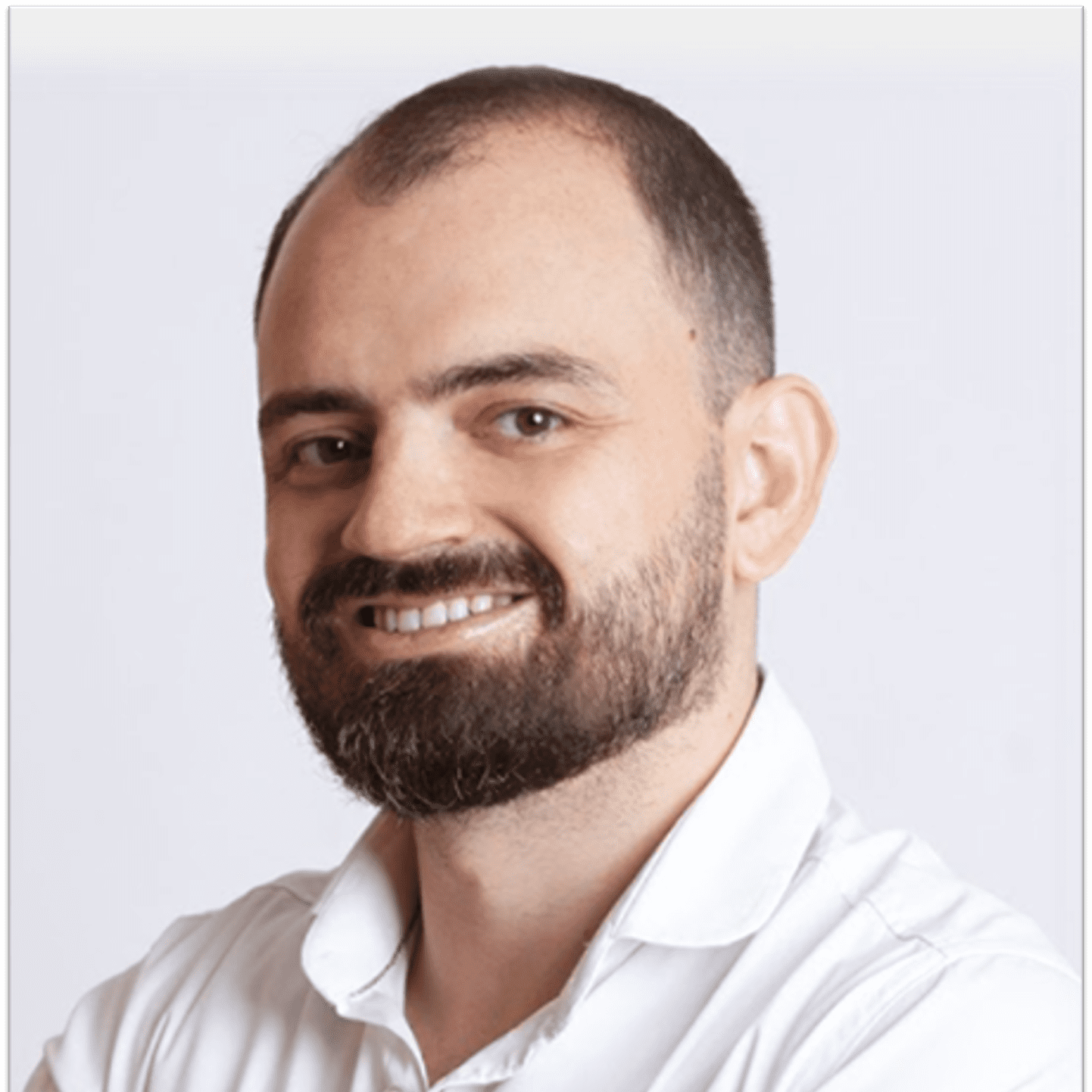
Luis Felipe Zamora es el director comercial de Multimodal Operador Logístico empresa dedicada a dar soluciones y mejoras al proceso logístico de compañías nacionales e internacionales y socio fundador del Almacén Fiscal Tecnodepósitos. Además, es el presidente de la junta directiva de la Asociación costarricense de agencias de carga, consolidadores y logística internacional (ACACIA) y miembro del Consejo Nacional de Facilitación del Comercio (CONAFAC).Con tan solo 36 años, Luis Felipe cuenta con más de 17 años de experiencia en varios roles de la Cadena de Suministro, Ventas y Gestión en diversas organizaciones privadas y sin fines de lucro y es una de las grandes promesas jóvenes de la industria de la logística en Costa Rica. Conéctate con Luis en LinkedIn.
